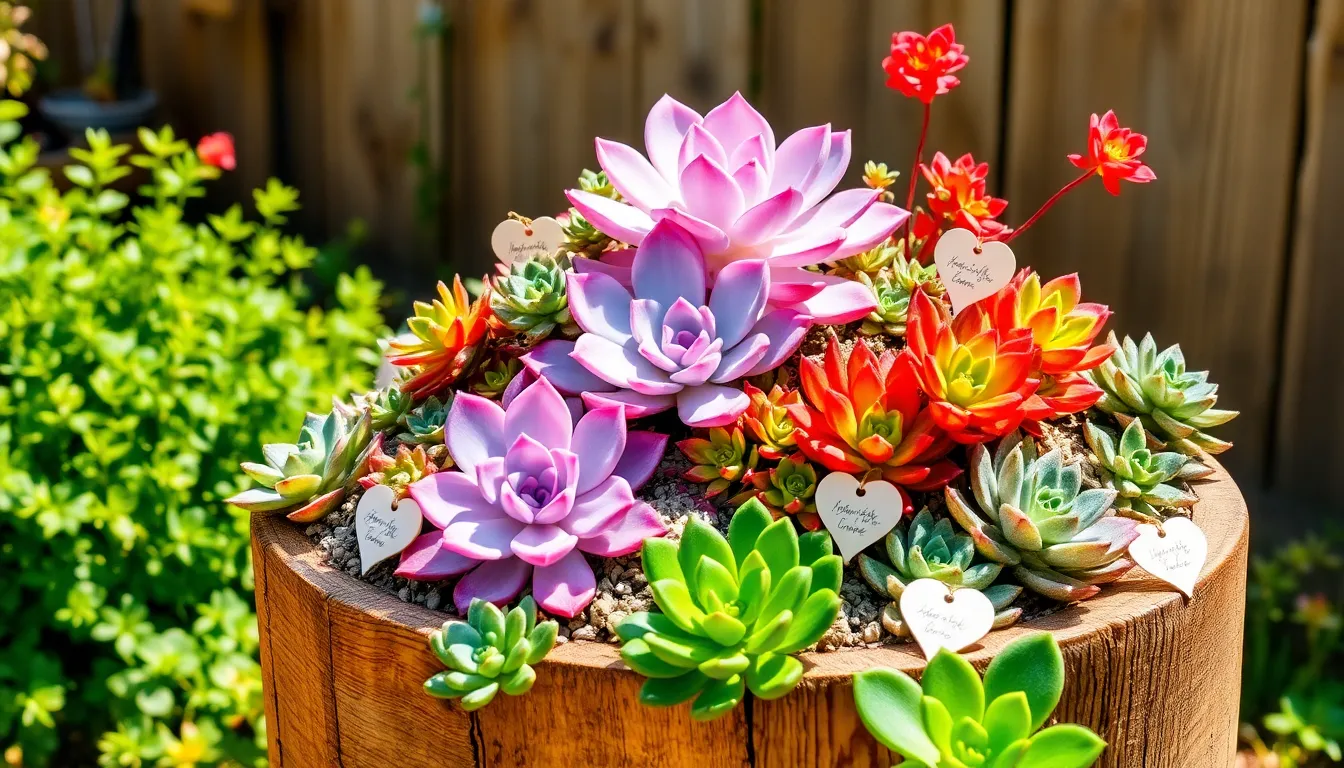In the world of gardening, where each plant tells a story and every garden is a living tapestry, there lies an unexpected touch of romance. Whether you’re a novice just beginning to plant seeds or a seasoned gardener with soil-stained hands, the enchanting world of gardening can be infused with a delightful twist of humor and affection through the art of cheesy love quotes. These whimsical words not only add a playful touch to your gardening journey but also create charming moments that you can share with loved ones in your green oasis.
Exploring the intersection of gardening and love, this article will invite you to discover 90 cheesy love quotes that are perfect for those cute, spontaneous moments in your garden. You’ll find quotes that can bring a smile as you plant your first tomato of the season or offer a laugh while you prune your roses. Each quote is handpicked to warm your heart and encourage a deeper connection with both your garden and the people you cherish. So, prepare to be inspired as you delve into this delightful compilation that celebrates love, growth, and the beauty of nature.
Understanding Cheesy Love Quotes
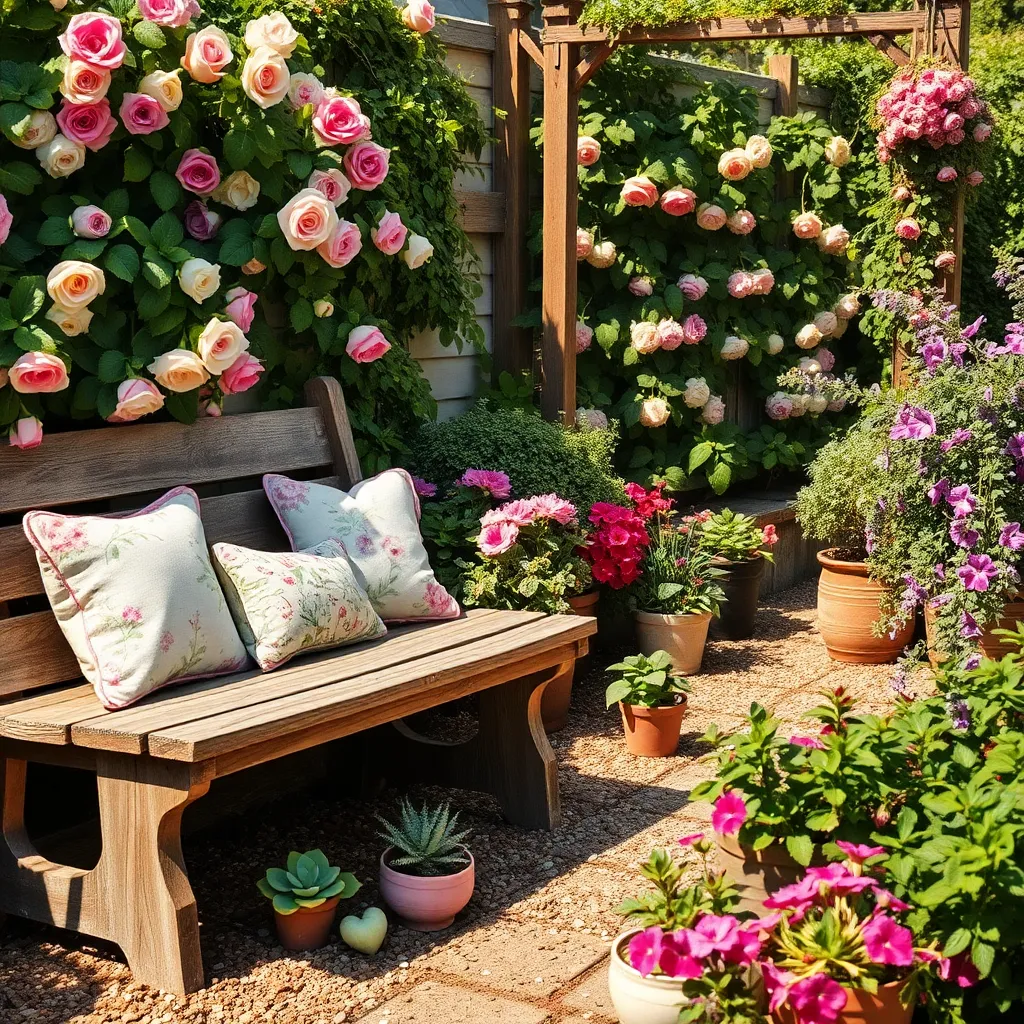
Cheesy love quotes, like plants, thrive when given the right conditions. To cultivate a beautiful garden, ensure your soil is rich and well-draining, which can be achieved by mixing organic compost into your garden beds.
Just as cheesy quotes can brighten someone’s day, vibrant flowers can transform your garden. For beginners, consider planting marigolds or zinnias, which are hardy and bloom abundantly with minimal care.
Advanced gardeners can experiment with more challenging plants to add variety and interest. Try growing roses, which require careful pruning and specific feeding schedules, or orchids, which need indirect light and well-aerated potting mix.
Consistency in care is key, whether nurturing a garden or a relationship. Water your plants deeply but infrequently, typically once a week, to encourage deep root growth and overall plant health.
Why Cheesy Quotes Matter
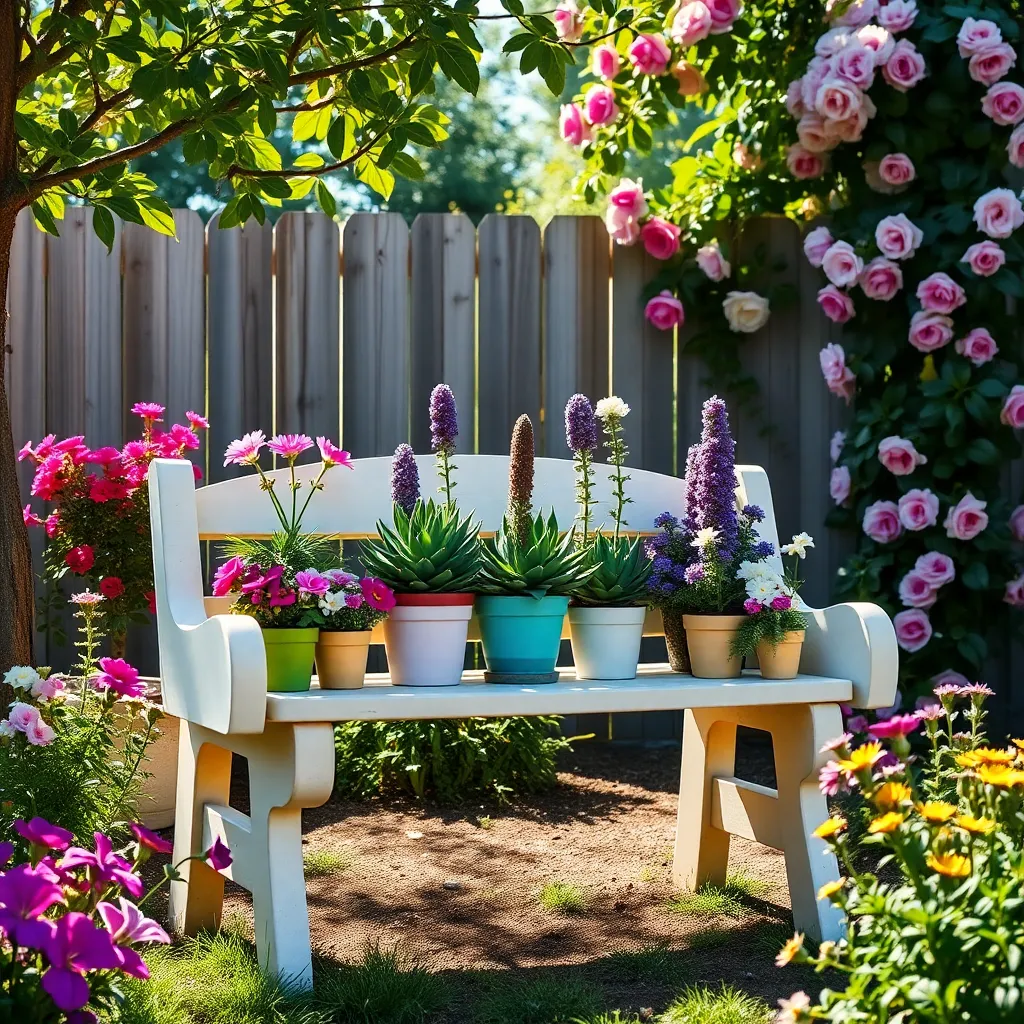
Cheesy quotes might seem trivial, yet they have a surprising power to connect us with our gardening practices. Just as a cheesy quote can bring a smile, growing plants like marigolds can brighten your garden with minimal effort.
For beginners, marigolds are a fantastic choice because they thrive in a variety of soil types. Plant them in well-draining soil and ensure they receive full sun for at least six hours a day to keep them thriving.
Watering is key for marigolds, especially during dry spells. Ensure the soil is moist but not waterlogged, and consider using mulch to retain moisture and suppress weeds.
Advanced gardeners might experiment with companion planting, as marigolds can help deter pests from nearby vegetables. This practice can enhance the health of your garden, creating a symbiotic and flourishing environment.
Crafting Cute Moments
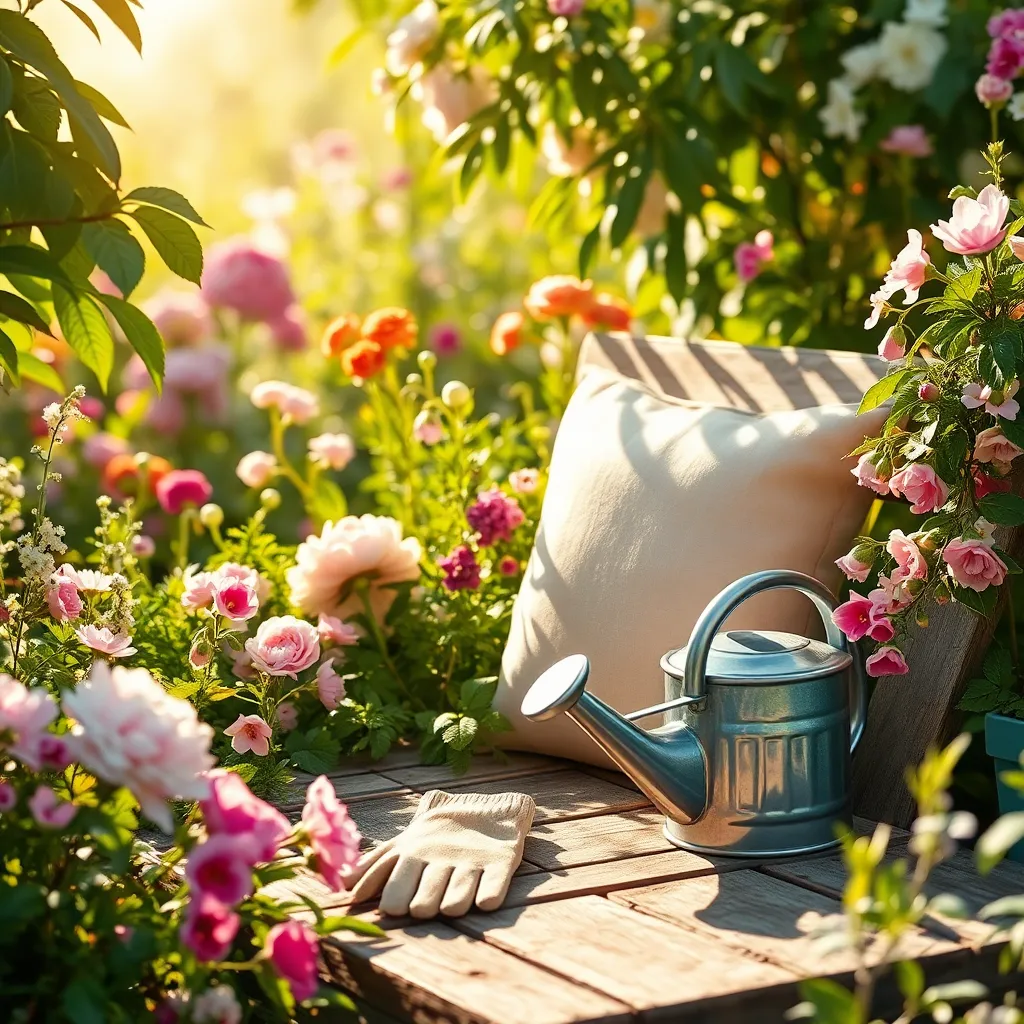
Creating cute moments in your garden involves cultivating plants that not only thrive but also bring joy to your space. Start by choosing plants that offer a burst of color, such as marigolds or zinnias, which are easy to grow and maintain for beginners.
Proper soil preparation is key to a thriving garden, so ensure your soil is well-draining and rich in organic matter. You can enhance your soil by mixing in compost or aged manure, which will provide the necessary nutrients for healthy plant growth.
For those looking to add a romantic touch, consider climbing roses or clematis, which can create stunning vertical displays. These plants require support structures like trellises or arbors and benefit from regular pruning to encourage vigorous flowering.
Watering is critical for plant health, especially during the growing season. It’s best to water deeply and infrequently, allowing the soil to dry out slightly between watering sessions to prevent root rot.
Advanced gardeners might enjoy experimenting with companion planting, which involves pairing plants that benefit each other. For example, planting basil near tomatoes can enhance flavor and repel pests, creating a more harmonious and productive garden environment.
The Power of Words
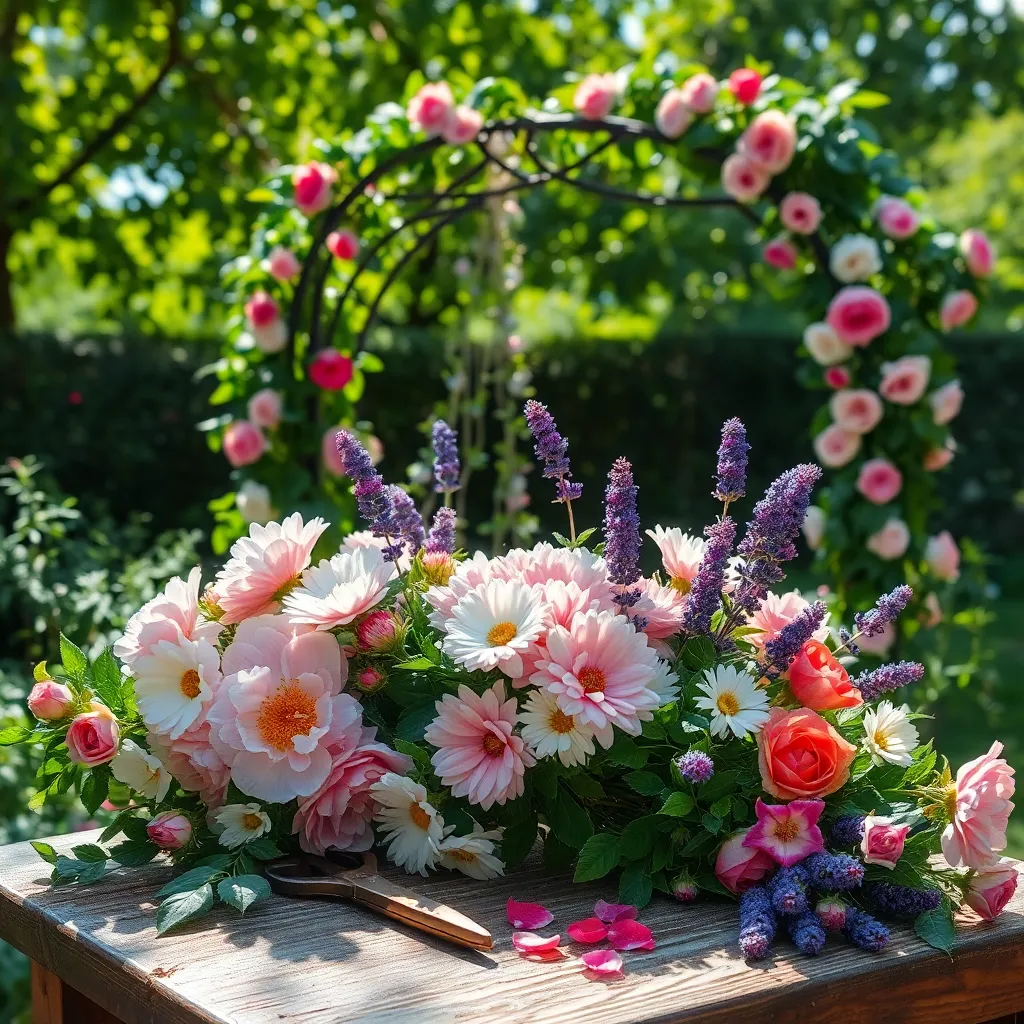
There’s an undeniable magic in the way that plants respond to thoughtful care and attention. By simply speaking to your plants, you can encourage growth and vitality, as studies suggest that sound vibrations can stimulate plant growth.
Begin by creating an environment where your plants can thrive. Ensure that your soil is rich and well-draining; a mix of equal parts peat moss, vermiculite, and compost will provide an excellent base for most plants.
Regular watering is crucial, but it’s essential to understand the specific needs of each plant. Most plants prefer the soil to dry slightly between waterings, so check the top inch of soil with your finger before adding more water.
For those looking to take their gardening to the next level, consider experimenting with companion planting. Certain plants, like marigolds and basil, can deter pests naturally when planted alongside vegetables, reducing the need for chemical interventions.
Building Emotional Connections
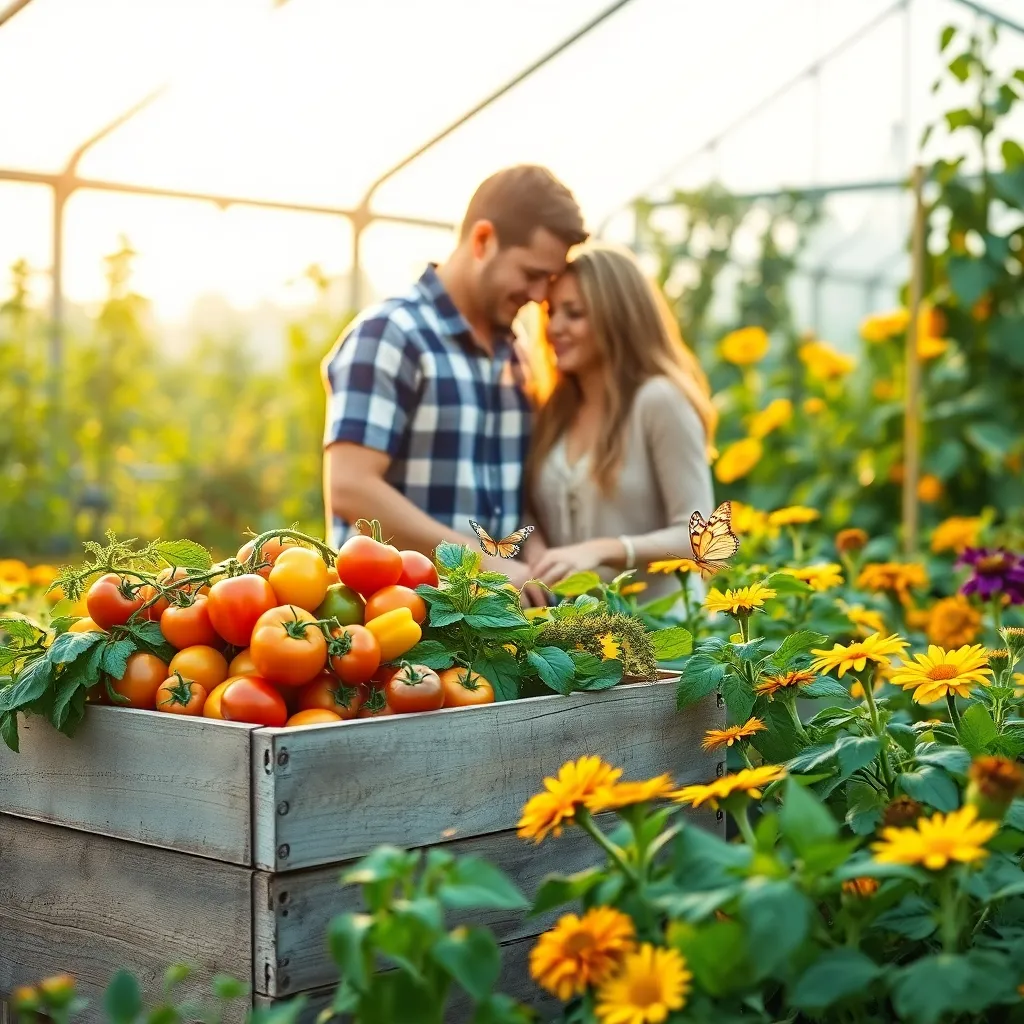
Cultivating plants is not just about nurturing growth; it’s about building emotional connections with nature. By spending time in your garden, you can develop a deeper appreciation for the cycle of life and the beauty it brings to our world.
To strengthen these connections, start by selecting plants that resonate with you emotionally. For beginners, consider starting with easy-to-care-for plants like marigolds or sunflowers, which thrive in well-drained soil and full sunlight, providing bright blooms that uplift your spirits.
Experienced gardeners might enjoy the challenge of growing orchids, which require a more specific environment with indirect light and moderate humidity. Ensure these exotic beauties are in a bark-based mix to simulate their natural habitat, allowing you to form a unique bond through attentive care.
Watering is another aspect that can deepen your relationship with your plants. While most houseplants need watering once a week, always check the soil moisture level by sticking your finger an inch into the soil to avoid overwatering, which is a common mistake.
Expressing Love with Humor
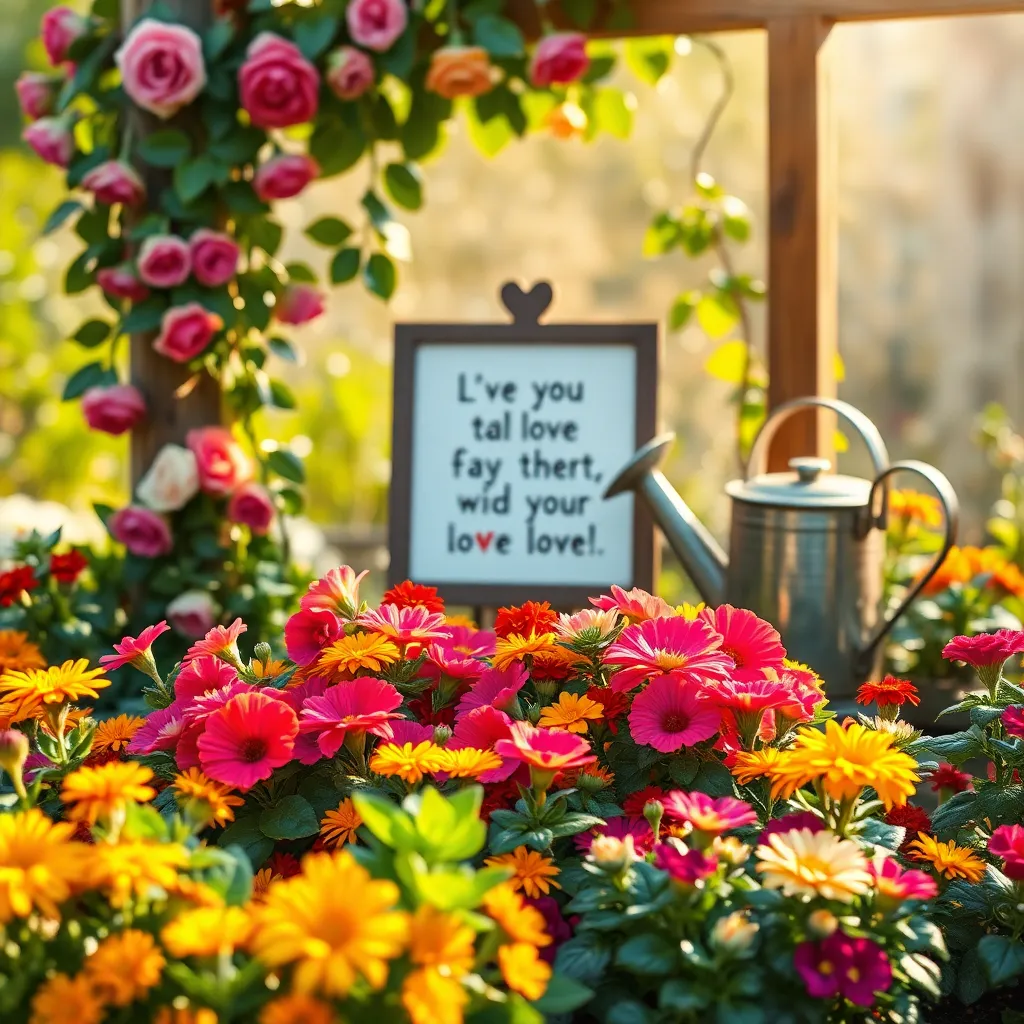
Expressing love through humor in the garden can be a delightful experience full of creativity and joy. One way to do this is by planting flowers with playful names like “Forget-Me-Not” or “Love-in-a-Mist,” which can bring a smile to anyone’s face while adding beauty to the garden.
Consider using plant labels with funny phrases, such as “I’m a Succa for You” placed next to a succulent. This small touch brings laughter and lightness to the garden, making it a welcoming space for all who visit.
For those with a knack for wordplay, creating puns with plant names can be a fun way to engage with your garden. For instance, using a sign that says “Aloe you vera much” among your aloe plants can both entertain guests and show your affection for your greenery.
Beyond humor, ensure your plants thrive by providing the right care. For example, succulents need well-draining soil and should be watered sparingly, while “Forget-Me-Nots” prefer moist, well-drained soil and partial shade to flourish.
Cheesy Quotes for Laughter
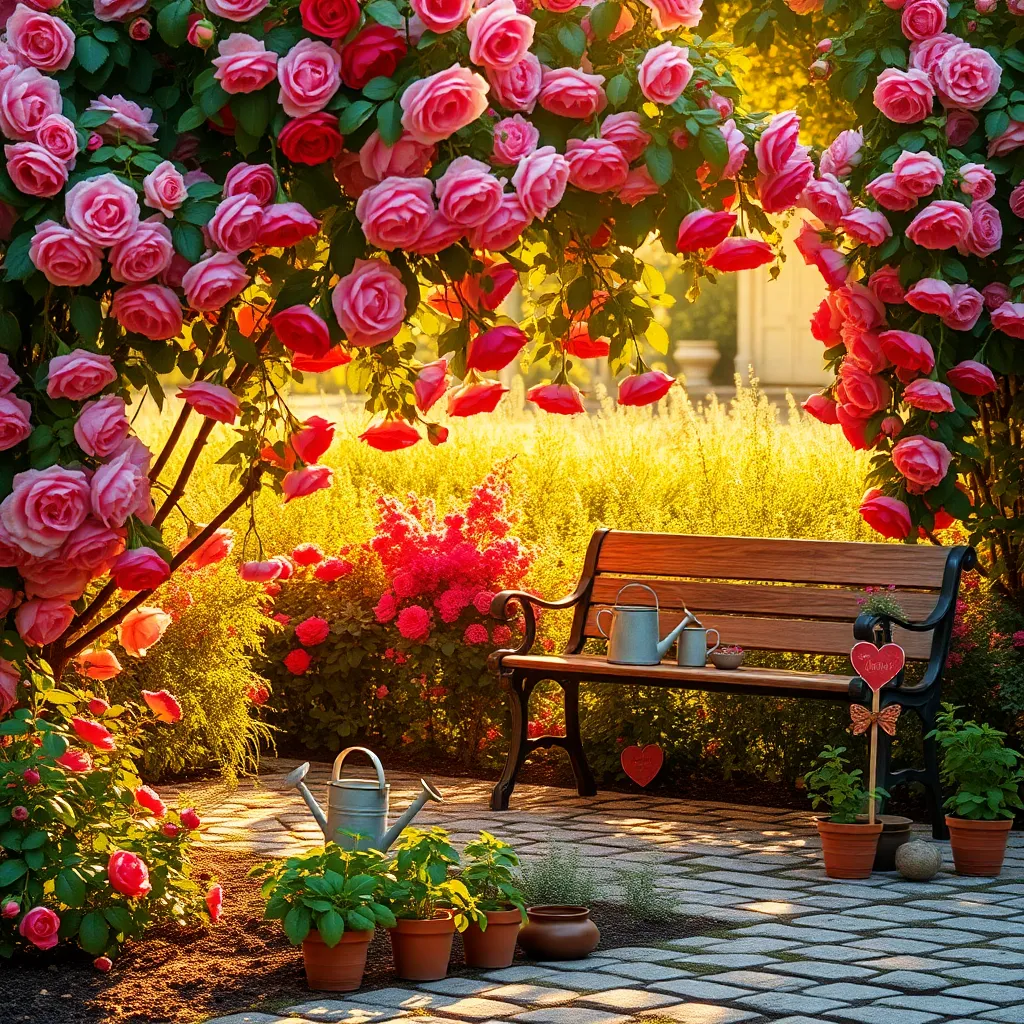
Gardening, much like love, can be a delightful journey filled with unexpected surprises. A good laugh can make even the toughest gardening tasks feel lighter, so why not sprinkle some humor into your plant care routine?
To start, remember that talking to your plants is not just for laughs; it’s actually beneficial! Plants can respond to the vibrations in your voice, so go ahead and share a cheesy joke with your favorite fern.
When it comes to watering, many beginners tend to overdo it. A practical tip is to stick your finger about an inch into the soil; if it feels dry, it’s time to water—perfect advice for those who love getting hands-on!
For the more advanced gardener, consider the benefits of a well-balanced diet—not just for you, but for your plants. Using a slow-release fertilizer can provide consistent nutrients, helping your plants grow strong and healthy without the risk of over-fertilization.
Lastly, embrace the imperfections in your garden. Just like in love, every plant has its quirks, and each leaf spot or crooked stem adds character to your green oasis.
Finding Sweet Sentiments
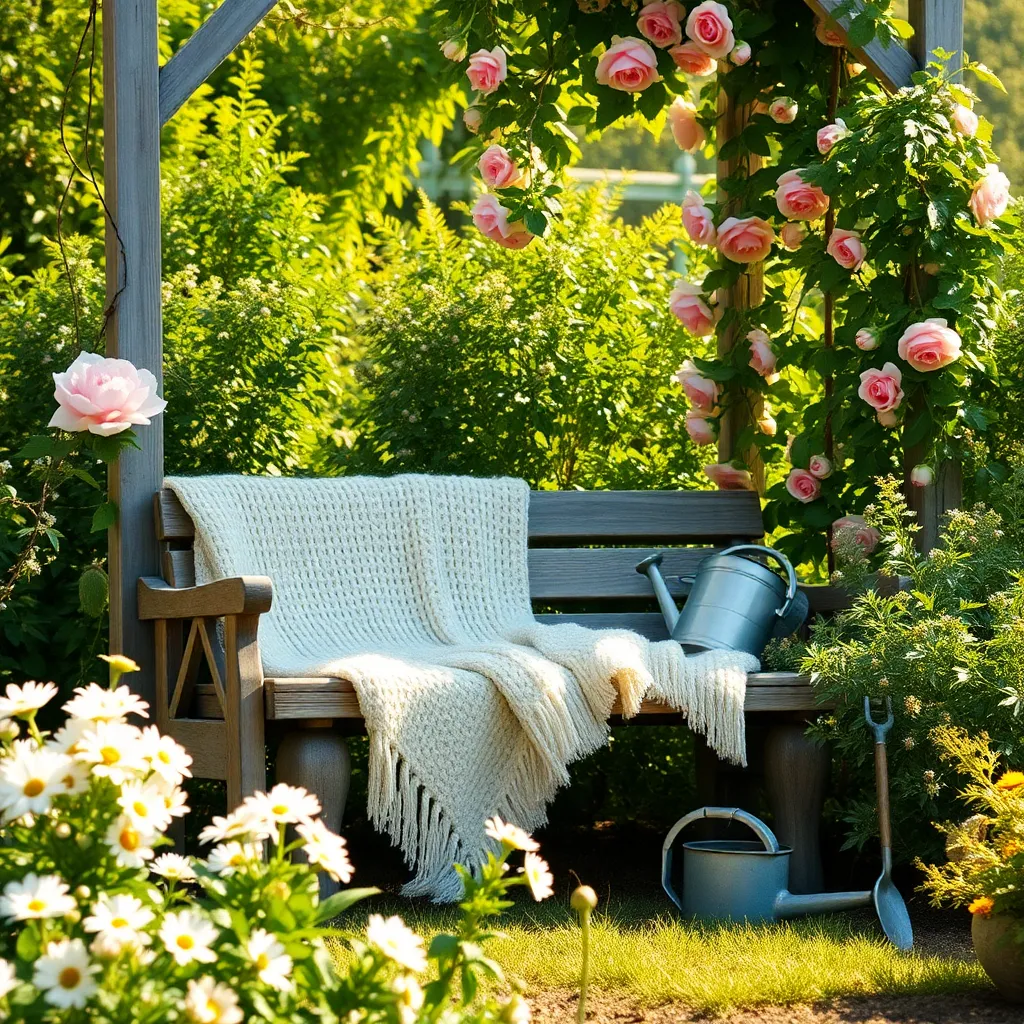
For those looking to express love through gardening, consider planting sweet-scented flowers like roses and lavender. These plants not only add beauty to your garden but also fill the air with delightful fragrances, creating a romantic atmosphere.
To ensure your roses thrive, plant them in well-draining soil with a pH of 6.0 to 6.8 and provide them with at least six hours of sunlight each day. Regular watering is crucial, especially in dry conditions, but avoid overhead watering to prevent diseases.
Lavender, on the other hand, prefers a more alkaline soil with a pH of 6.7 to 7.3 and thrives in full sun. Prune lavender plants annually to encourage bushy growth and increase their lifespan, ensuring they continue to bloom beautifully.
For an advanced tip, consider companion planting these sweet-scented plants near vegetables to naturally repel pests. Integrating flowers and vegetables not only enhances garden aesthetics but also promotes a healthier, more resilient ecosystem.
Love Quotes for Couples
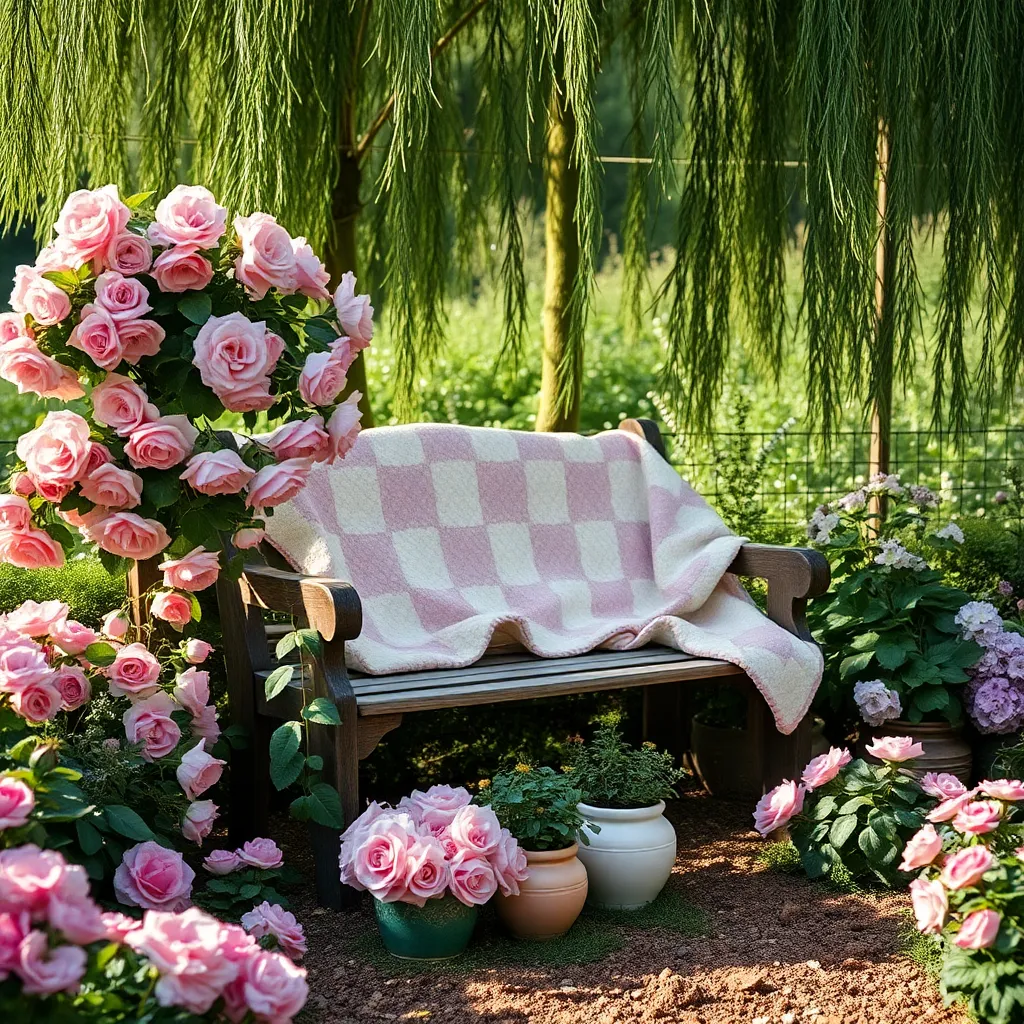
Incorporating romance into your garden can be as simple as planting roses, the universal symbol of love. For optimal growth, plant your roses in well-draining soil and ensure they receive at least six hours of sunlight daily.
Another lovely choice for couples is the bleeding heart plant, known for its heart-shaped blooms. These plants thrive in partial shade and rich, moist soil, making them perfect for a shaded garden nook.
Lavender is not only aromatic but also symbolizes devotion, making it a wonderful addition to any couple’s garden. To grow lavender successfully, ensure the soil is sandy and well-drained, and place the plants in a spot where they can bask in full sun.
For those looking to add a bit of whimsy, consider planting sweet peas, which are often associated with blissful pleasure. These charming climbers need support, like a trellis, and thrive in fertile, well-drained soil with regular watering to keep them blooming beautifully.
Creating Memorable Moments
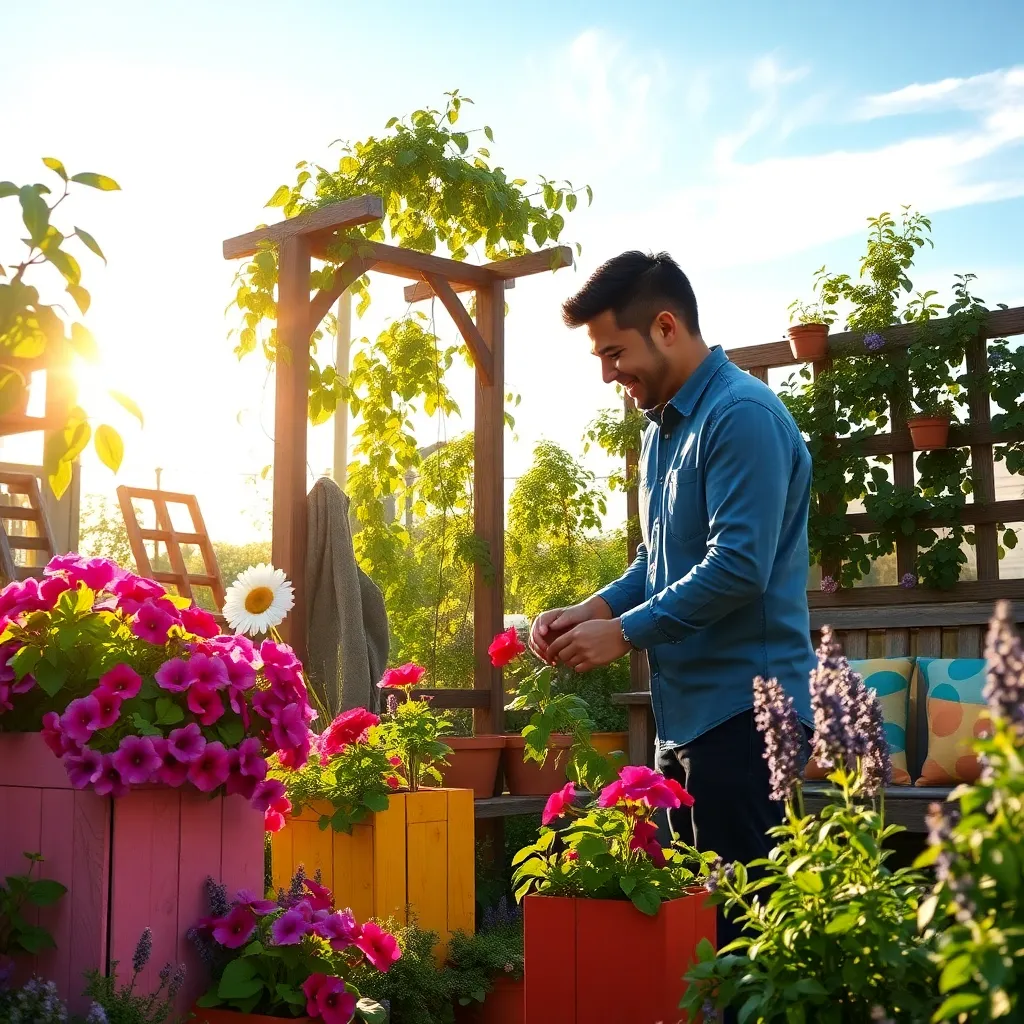
Creating a garden filled with memorable moments begins with understanding the unique needs of your plants. Choose species that thrive in your climate and soil conditions by researching local plant recommendations or consulting with a local nursery expert.
To ensure your plants flourish, focus on the basics of soil preparation and maintenance. Start by enriching your soil with organic matter like compost, which improves drainage and nutrient content, setting a strong foundation for plant growth.
Pay close attention to the watering needs of your plants, as overwatering and underwatering can both be detrimental. A good rule of thumb is to water deeply but infrequently, allowing the soil to dry out slightly between waterings to encourage strong root development.
For those looking to create more advanced gardening moments, consider integrating companion planting techniques. By pairing plants such as tomatoes with basil, you can naturally deter pests and enhance the growth and flavor of your crops, all while creating a lush and diverse garden ecosystem.
Impact of Cheesy Quotes
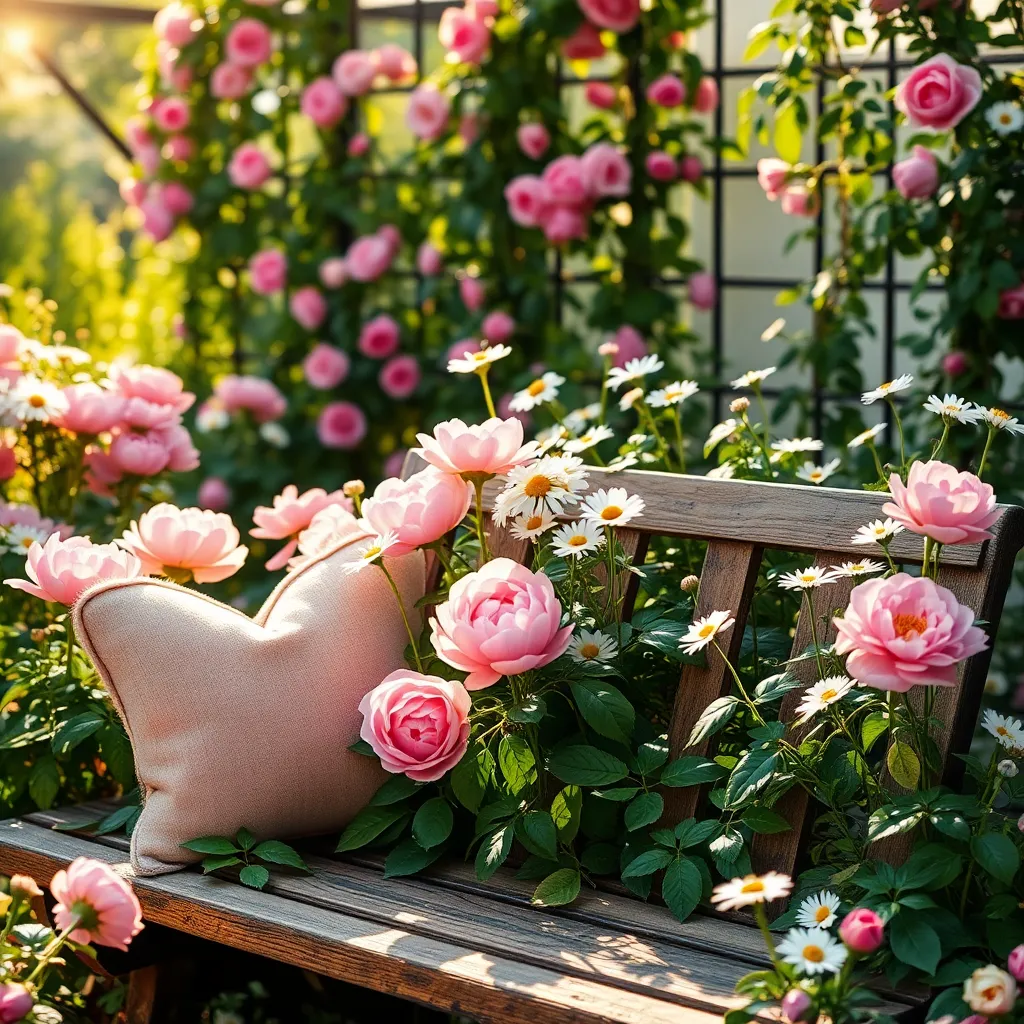
Cheesy quotes can have a surprising impact on your gardening journey, much like the right amount of fertilizer can boost plant growth. Just as these quotes bring joy and inspiration, integrating small, joyful habits into your gardening routine can make a significant difference.
Incorporate daily affirmations into your gardening, which can be as simple as saying, “Today, my garden will flourish.” This positive mindset can encourage you to regularly check on your plants, ensuring they receive the proper care they need.
Consider how cheesy quotes often make us smile; similarly, adding vibrant flowers to your garden can brighten the entire space. For beginners, easy-to-grow flowers like marigolds or sunflowers are excellent choices, thriving in well-drained soil with full sun exposure.
Advanced gardeners might explore companion planting, which is the practice of growing certain plants together for mutual benefit. For instance, pairing tomatoes with basil can enhance growth and flavor, much like combining the right quote with the right moment.
Regularly watering your plants can be likened to the consistency of a good love quote—essential and nurturing. Generally, most garden plants need about one inch of water per week, but always check the specific needs of your plants to avoid overwatering.
Love Through Simple Words
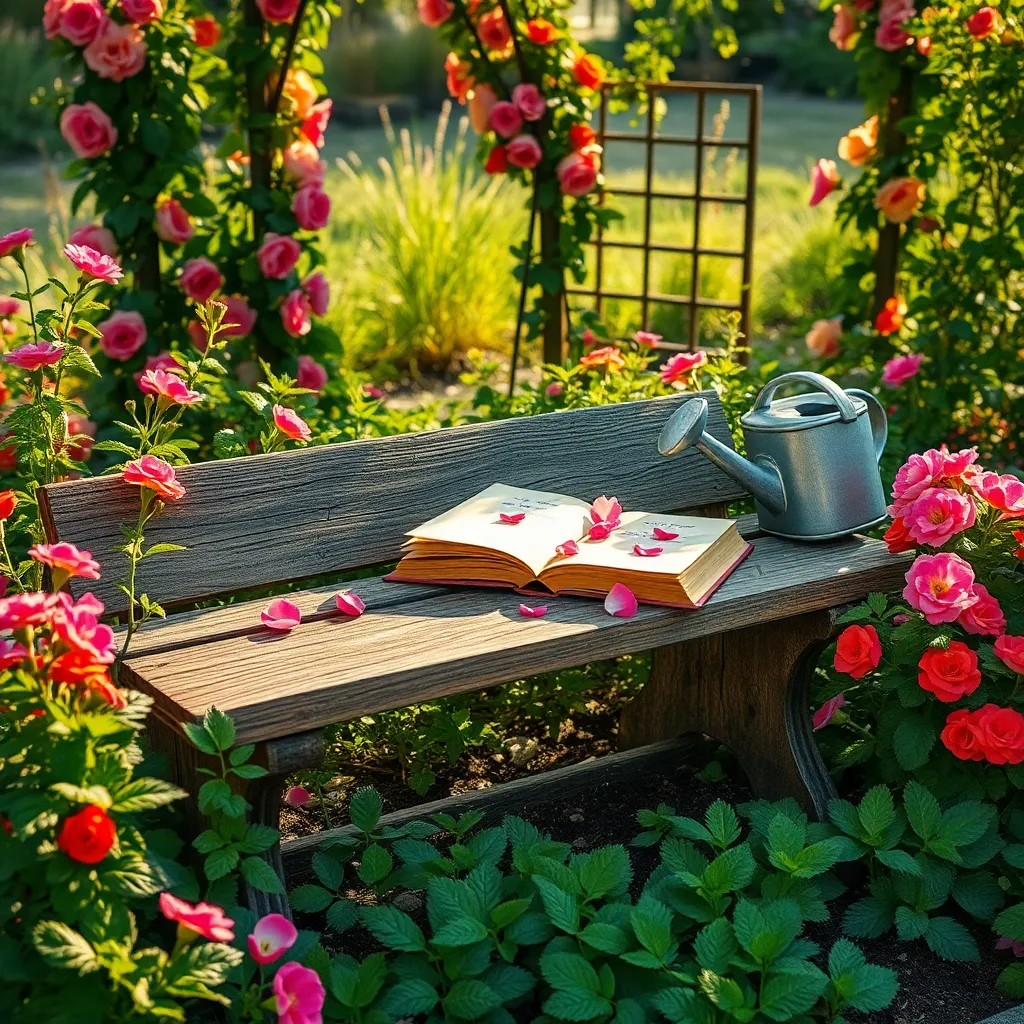
Gardening is much like love; it requires patience, care, and the right conditions to thrive. For beginners, starting with easy-to-grow plants like marigolds or basil can be rewarding, as they are forgiving and flourish with basic care.
To ensure your plants grow well, focus on providing the right environment. Most plants prefer well-draining soil, which can be achieved by mixing in a bit of sand or perlite, ensuring roots receive enough oxygen.
Watering is crucial, and understanding your plant’s needs is key. For instance, succulents prefer infrequent watering, allowing the soil to dry out completely between sessions, while ferns enjoy consistent moisture.
Advanced gardeners can experiment with companion planting to enhance growth and deter pests naturally. Pairing plants like tomatoes and basil not only boosts flavor but also reduces the risk of diseases like blight.
Regular maintenance, such as pruning and deadheading, keeps plants healthy and encourages new growth. A simple act of removing spent flowers can redirect energy into producing more blooms, rather than seed production.
Selecting the Right Quote
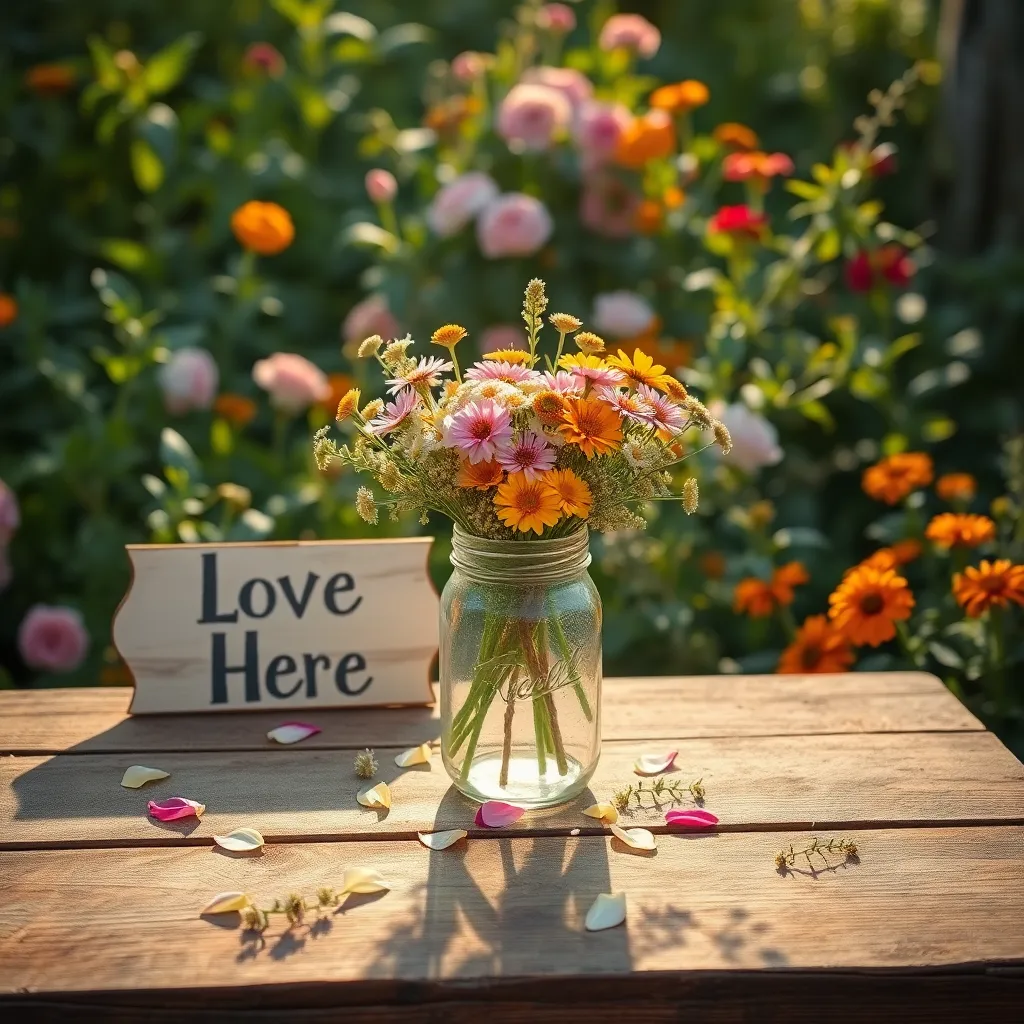
Choosing the right gardening techniques can make a significant difference in the health and productivity of your plants. For beginners, understanding the basics like soil composition and watering needs is essential, while more experienced gardeners might explore advanced techniques such as companion planting or crop rotation.
It’s crucial to tailor your gardening efforts to the specific needs of your plants. For example, succulents thrive in well-draining soil and require infrequent watering, whereas tropical plants might need more humidity and consistent moisture.
Begin by evaluating the light conditions in your garden, as this will determine the types of plants that will thrive. Most vegetables and flowering plants require at least six hours of direct sunlight daily, while shade-loving plants, like ferns, prefer indirect light.
Advanced gardeners can benefit from soil testing to fine-tune nutrient applications and ensure optimal growth. Adding organic matter, such as compost, can improve soil structure and fertility, making it a valuable practice for all skill levels.
When to Use Cheesy Quotes
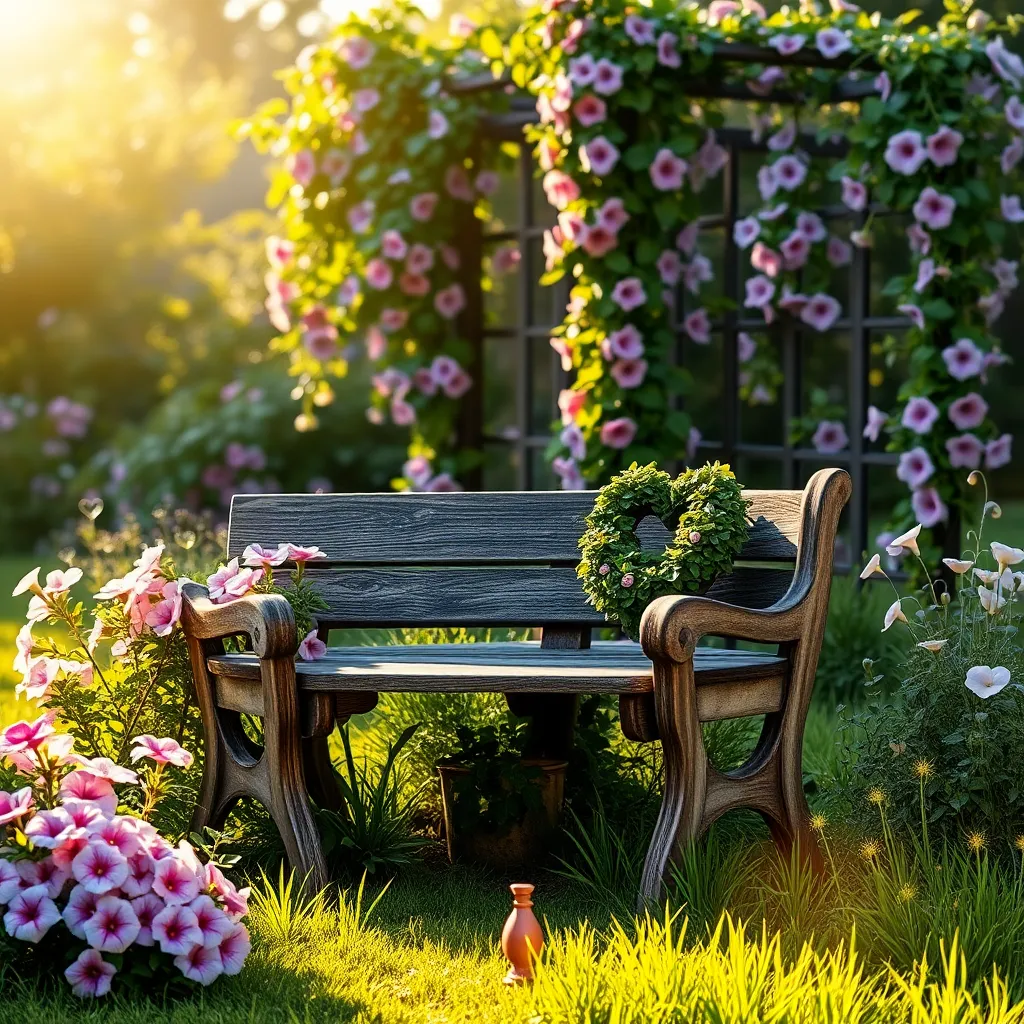
Cheesy quotes, much like certain garden plants, thrive in particular conditions. They work best when used to add a touch of whimsy and warmth to your gardening endeavors, much like how a dash of compost can enrich the soil. Consider sprinkling a cheesy quote when you’re planting seeds or bulbs, as the act of sowing and nurturing can be beautifully mirrored in words of love and growth. **Remember, the right quote, like the right plant, can transform an entire space or moment.**
Timing is crucial when using cheesy quotes, just as it is with watering your garden. A well-placed quote can lighten the atmosphere during routine tasks such as weeding or pruning, making these chores feel less like work and more like an expression of care. **Use quotes to create a positive mindset, turning mundane tasks into joyful experiences.** This approach can be particularly uplifting for beginners who might find gardening duties overwhelming at first.
For those with a more advanced green thumb, using quotes can be akin to experimenting with companion planting. Pair a favorite saying with a garden milestone, such as the first bloom of the season, to underscore the joy of accomplishment. **Incorporating quotes into your gardening routine can deepen your connection to the space, just as rotating crops enhances soil fertility.** This practice not only beautifies your garden but also enriches your daily gardening rituals with meaningful reflections.
Quotes for Romantic Settings
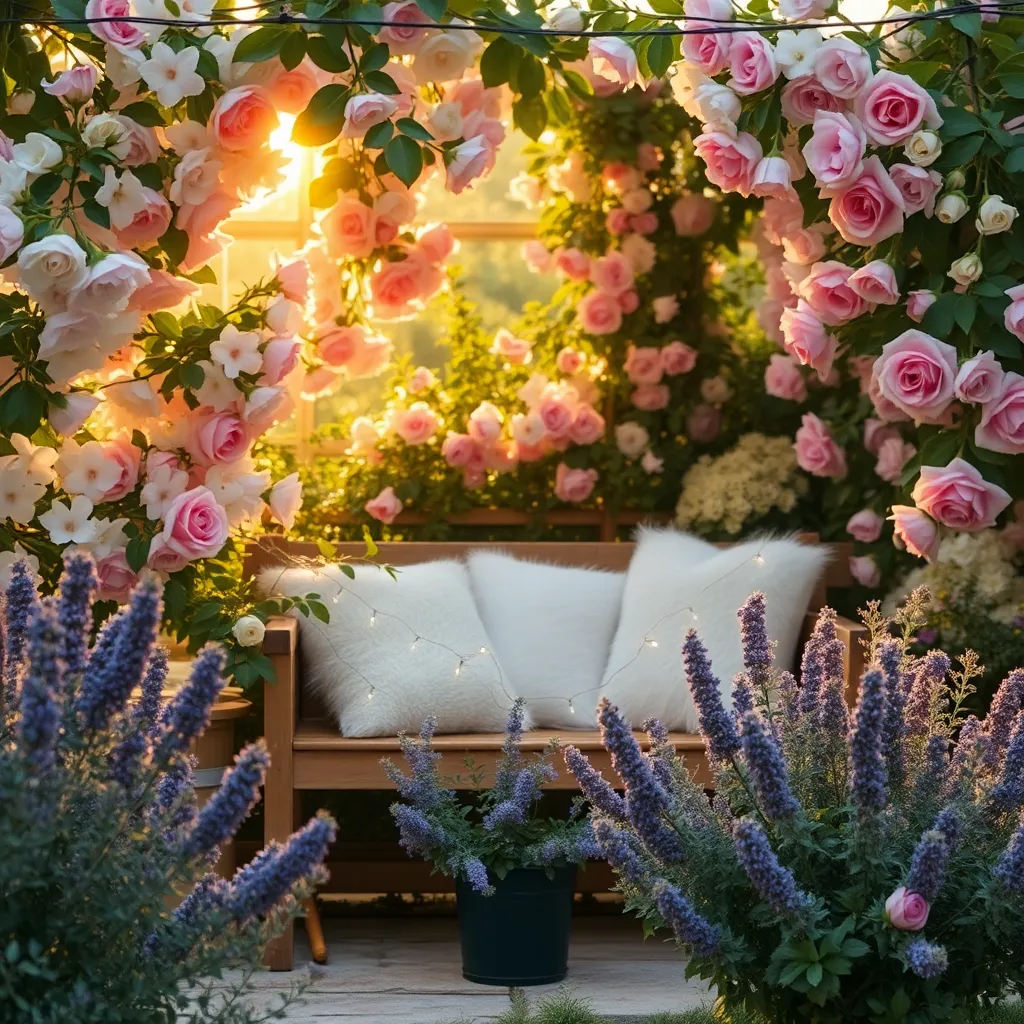
Creating a romantic setting in your garden can be as simple as incorporating plants with lush blooms or fragrant foliage. Start by planting **climbing roses** along trellises or arbors, which provide both a beautiful backdrop and intoxicating scent.
For a cozy nook, consider planting **lavender** or **jasmine**, which are not only aromatic but also attract pollinators like butterflies. Lavender thrives in well-draining soil and full sun, while jasmine prefers a bit of afternoon shade in hotter climates.
Soft lighting can enhance the romantic feel of your garden, so think about adding **solar-powered lanterns** or string lights among your plants. For a more advanced touch, install a small **water feature** to introduce soothing sounds and reflect the ambient light.
For those who enjoy an element of surprise, plant **night-blooming flowers** such as moonflower or evening primrose, which open up as the sun sets. Ensure these plants receive adequate sunlight during the day and provide a trellis or support for climbing varieties.
Balancing Cheese and Charm
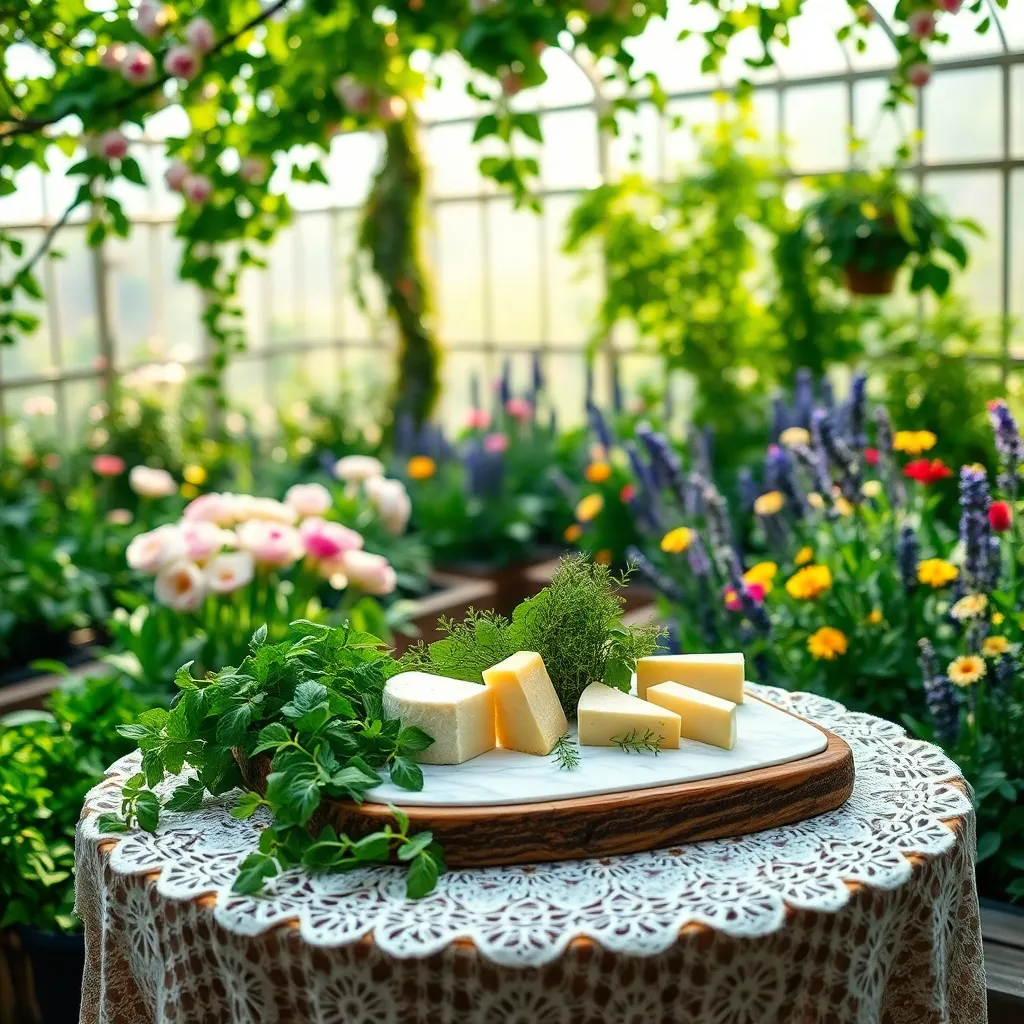
Incorporating a balance of beauty and functionality in your garden can be as delightful as balancing cheese and charm in romantic settings. Start by choosing plants that exude both visual appeal and practicality, such as flowering herbs like lavender, which not only add color but also attract pollinators.
For beginners, consider starting with easy-to-grow plants like marigolds or nasturtiums that require minimal maintenance and provide vibrant blooms. Ensure your soil is well-draining and enriched with organic matter to support these plants, allowing you to enjoy their charm with little effort.
Watering is another essential factor in maintaining a garden that balances beauty and health. Most plants thrive on a consistent watering schedule; aim to water in the early morning to reduce evaporation and disease risk.
Advanced gardeners can add an element of charm by incorporating vertical gardening techniques. Use trellises or wall planters to maximize space and create layers of interest, ensuring each plant receives adequate sunlight.
To maintain a harmonious garden, practice regular pruning and deadheading. This not only keeps plants healthy by encouraging new growth but also maintains their aesthetic appeal, much like the perfect touch of charm in a romantic quote.
Quotes for Everyday Moments
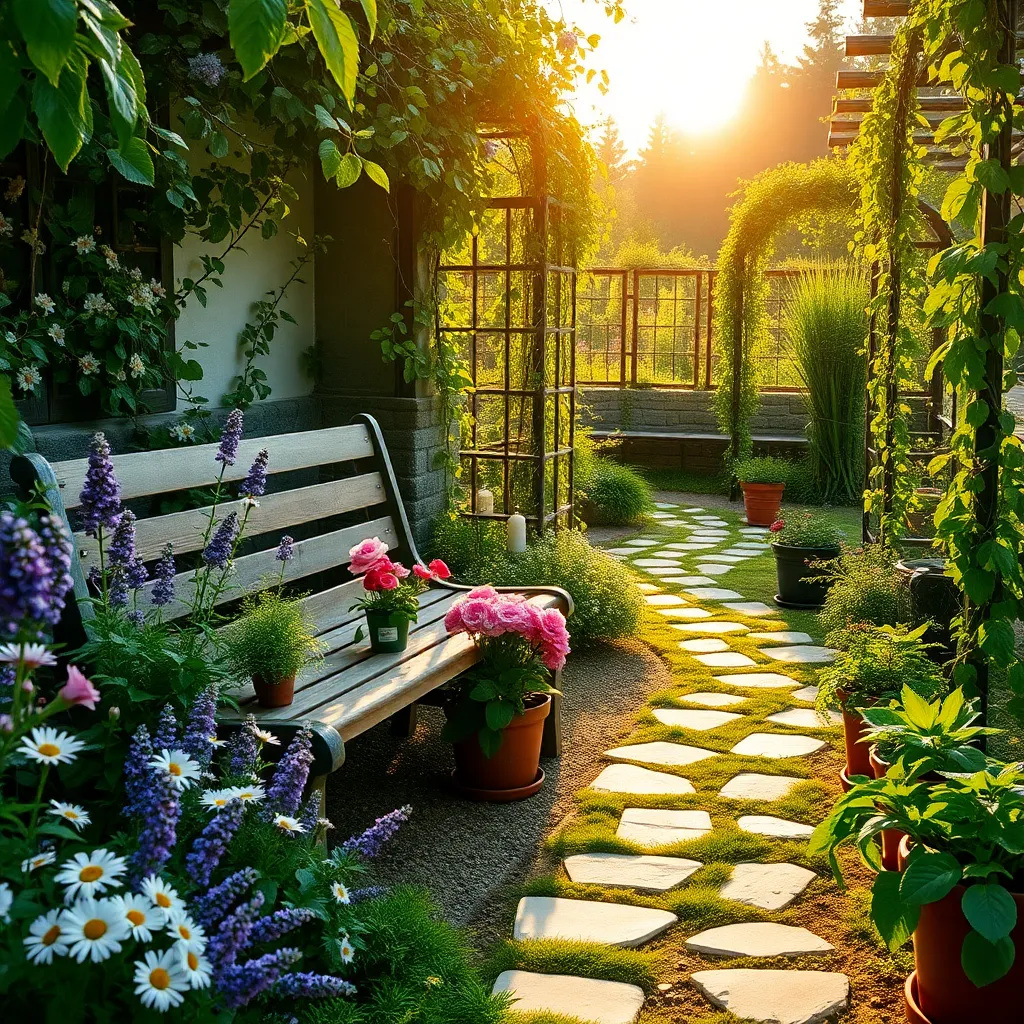
Everyday moments in the garden can be enhanced by understanding the needs of your plants. To start, ensure your soil is well-draining and rich in organic matter, as this provides a strong foundation for most plants.
One key to thriving plants is watering them correctly. Water deeply and less frequently to encourage deep root growth, which is vital for drought resistance and overall plant health.
For those looking to take their gardening to the next level, consider incorporating a mulching routine. Mulching not only conserves moisture but also suppresses weeds and adds beneficial nutrients as it breaks down.
If you’re growing flowering plants, deadheading is a simple task that can make a big difference. By removing spent blooms, you encourage the plant to produce more flowers and extend the blooming season.
Crafting Personal Love Notes
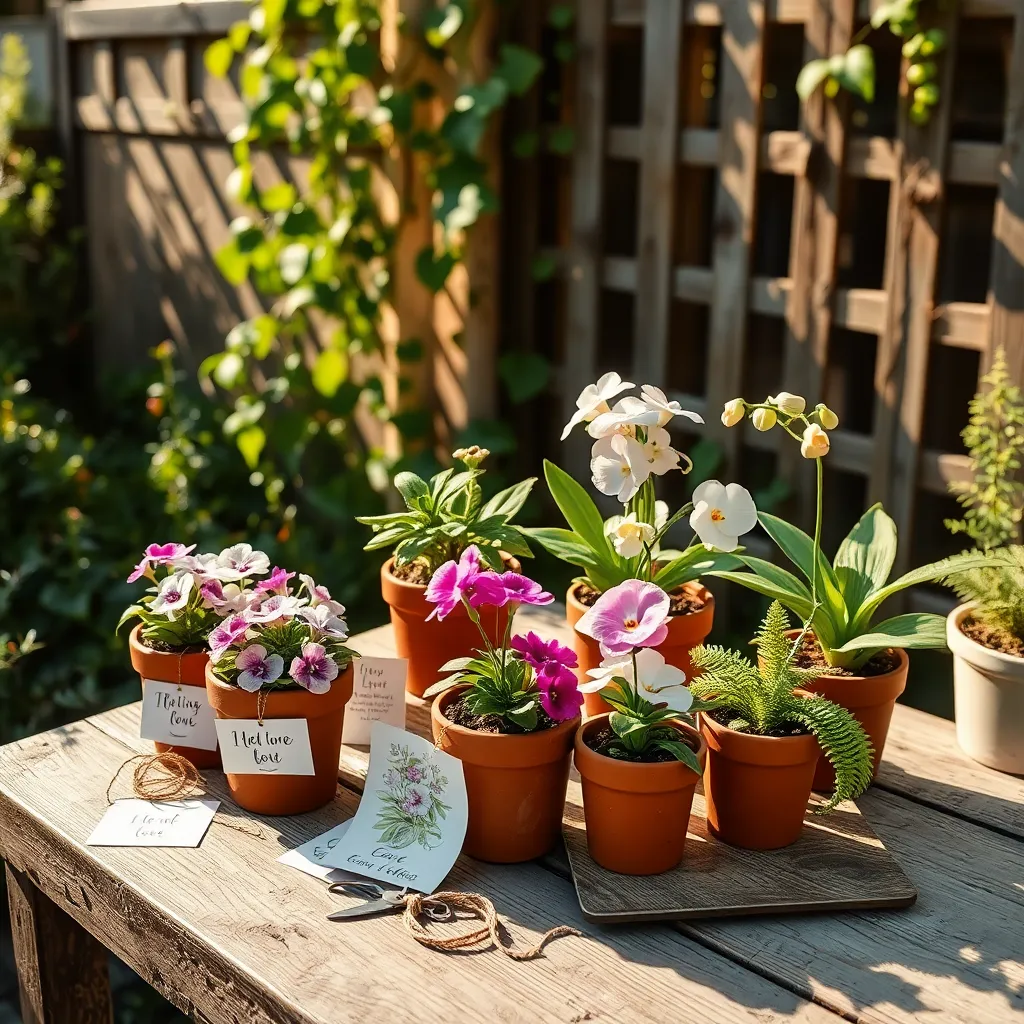
Writing personal love notes in your garden can be as nurturing as tending to your plants. To start, consider using plant labels to express your affection by crafting sweet messages directly on them.
For a beginner, choose plants that are easy to grow and maintain, like sunflowers or marigolds. These plants thrive in well-drained soil and require watering about once a week, making them perfect for those just starting out.
Experienced gardeners might want to experiment with more demanding plants, such as roses or orchids, which can add a touch of elegance to your messages. Roses need a sunny spot with rich, loamy soil and regular pruning, while orchids require indirect light and humidity to flourish.
For an additional personal touch, consider integrating companion planting, which can enhance both your garden’s health and your heartfelt notes. Pairing basil with tomatoes, for instance, not only improves the flavor of the tomatoes but also symbolizes love and prosperity.
Quotes to Brighten Days
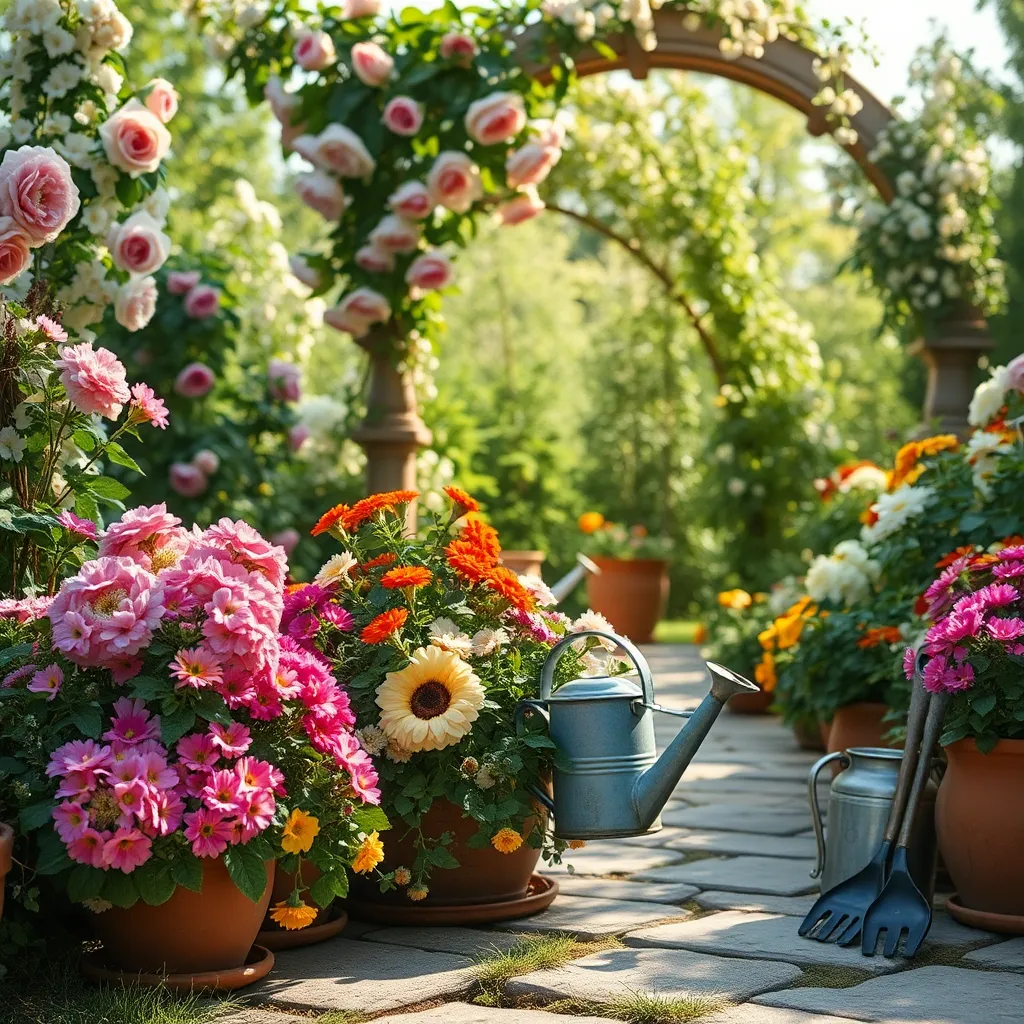
Gardening has a unique way of lifting spirits and adding a touch of beauty to daily life. When starting your day, consider stepping into your garden with a cup of coffee to enjoy the morning light—a simple practice that can foster a deeper connection to your plants.
Beginner gardeners should focus on the fundamentals, like ensuring their plants have the right soil. Most plants thrive in a well-draining, loamy soil, which can be achieved by mixing sand, silt, and clay in appropriate proportions.
To truly brighten your garden, consider planting a diverse range of flowers. Flowers such as marigolds and zinnias not only add vibrant colors but also attract pollinators, contributing to a healthier garden ecosystem.
For those looking to expand their gardening skills, try experimenting with companion planting. Pairing plants like tomatoes with basil can not only enhance flavors but also naturally deter pests, offering an organic approach to garden care.
Incorporating Quotes in Cards
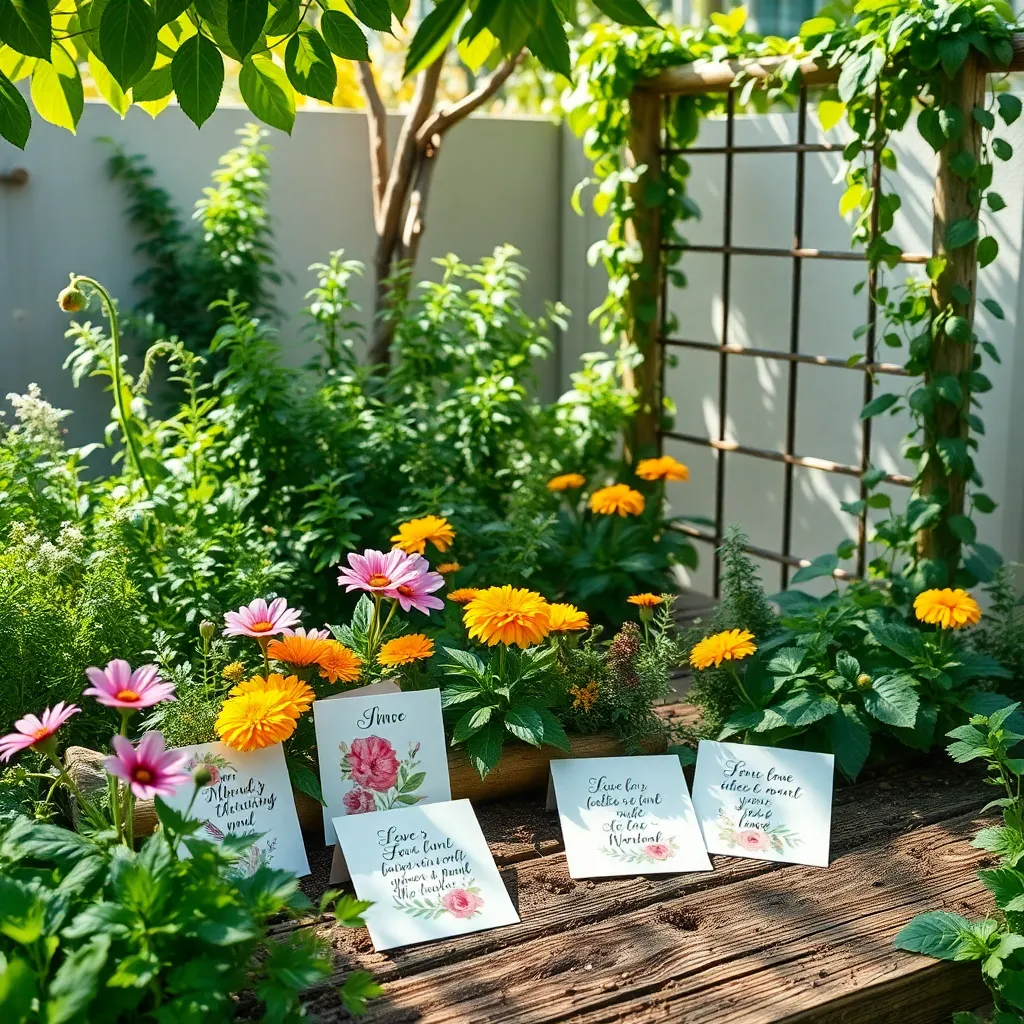
When writing a card for a fellow gardener, consider incorporating quotes that reflect the beauty and serenity of nature. A simple quote can complement a thoughtful message, brightening their day while celebrating the joys of gardening.
To make your card truly special, select quotes that connect with the recipient’s favorite plants or flowers. For instance, if they love roses, a quote about the timeless beauty of roses can add a personal touch.
Pair quotes with practical gardening tips to make the card both inspirational and helpful. You might include a note on the ideal soil mix for roses: a well-draining loam with a pH of 6.0 to 6.8 is perfect for healthy growth.
Adding a quote alongside a tip about watering frequency can also be valuable. Remind the recipient that most flowering plants, like roses, benefit from deep watering once a week, ensuring the soil is moist but not waterlogged.
Understanding Your Partner’s Humor
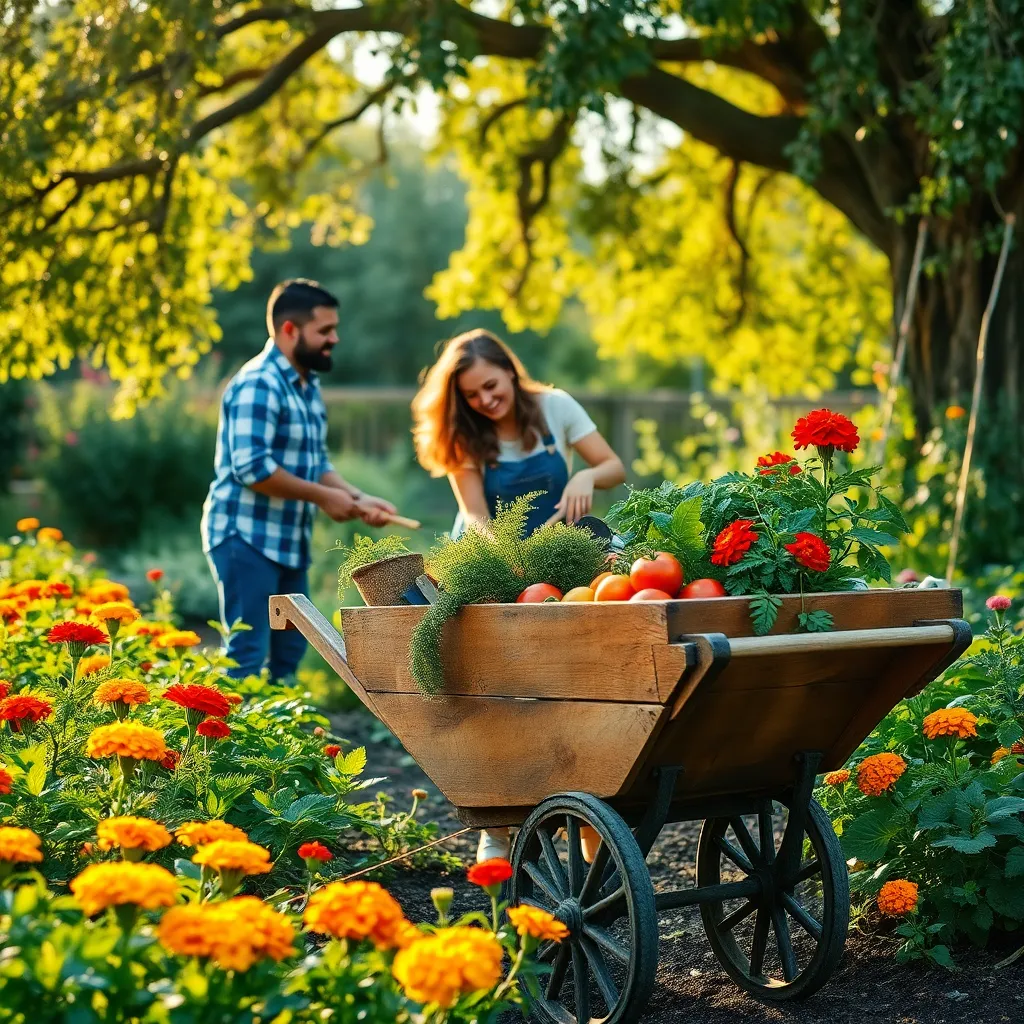
Understanding your partner’s humor in gardening can be as essential as understanding the sunlight needs of your plants. Just as some plants thrive in full sun while others prefer the shade, recognizing what makes your partner laugh can help you cultivate joy in your shared gardening space.
Consider starting with learning the basics—like a plant’s need for water—by observing which jokes or funny moments your partner responds to. This is akin to understanding how often your garden needs watering; typically, most plants benefit from a deep watering once a week, allowing the soil to dry out slightly between sessions.
For those with more experience, consider experimenting with humor to see how your partner reacts, much like testing different fertilizers to enhance plant growth. You might already know that adding compost or a slow-release fertilizer in early spring can significantly boost plant health, just as a well-timed joke can strengthen your relationship.
Finally, remember that humor, much like gardening, benefits from patience and care. Just as you might protect young plants from harsh weather by using mulch or row covers, be gentle with your humor and tailor it to suit your partner’s taste, ensuring that your garden of love continues to flourish.
Adapting Quotes for Personality
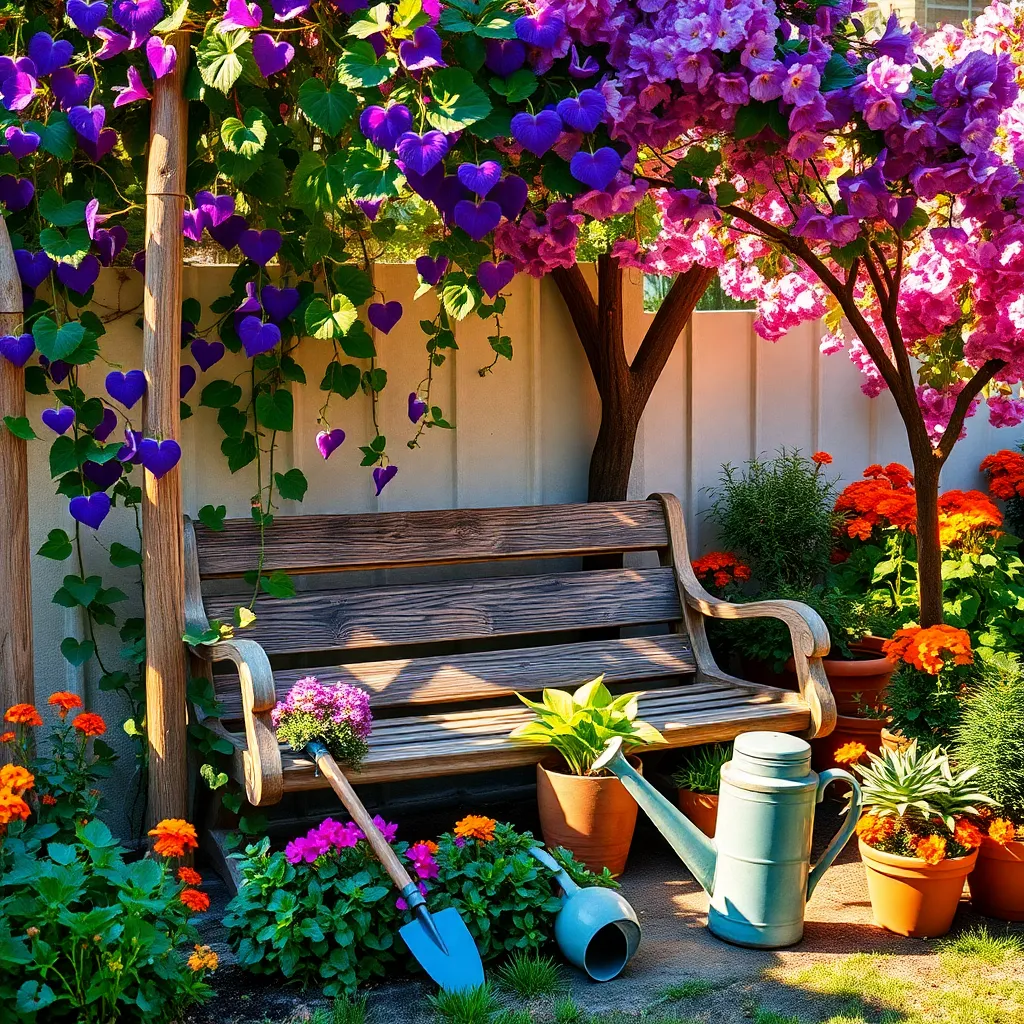
Understanding your garden’s personality is just as important as understanding your partner’s humor. Just as you adapt love quotes to match your partner’s quirks, you can tailor your gardening techniques to fit the unique needs of your plants.
Start by observing your plants closely to determine their specific requirements. For instance, if you’re growing tomatoes, ensure they get plenty of sunlight, at least 6-8 hours a day, and water them deeply once a week to encourage deep root growth.
Consider the soil type in your garden—this can make or break your plant’s health. If you’re working with sandy soil, add organic matter like compost to improve moisture retention, whereas clay soils may need sand and compost to enhance drainage.
Advanced gardeners can experiment with companion planting to enhance plant health and productivity. For example, planting basil near tomatoes can repel pests and improve the flavor of the tomatoes, creating a symbiotic relationship between the two.
Quotes for Special Occasions
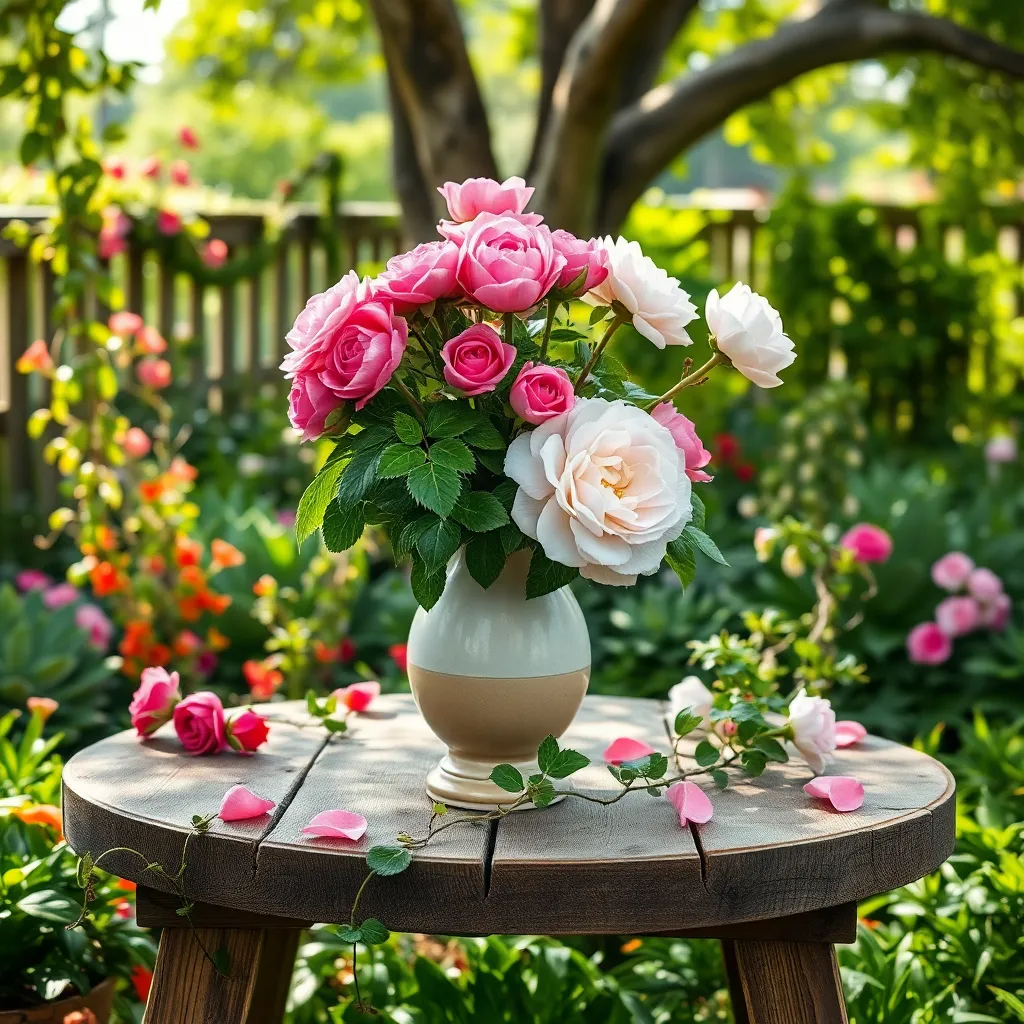
Creating a garden that blooms for special occasions requires planning and care, much like nurturing a relationship. Start by selecting plants that flower during your desired season, such as tulips for spring or chrysanthemums for autumn.
Consider the color palette of your plants to align with the mood of the occasion—reds and pinks for romantic events, or whites and yellows for more formal gatherings. To ensure healthy blooms, use a well-draining soil mix, rich in organic matter, which will provide the necessary nutrients.
For beginner gardeners, choose hardy perennials like daylilies or coneflowers that require minimal maintenance. These plants thrive in full sun and need watering once a week, making them perfect for those who are still learning the ropes of gardening.
Advanced gardeners can experiment with more challenging plants such as orchids or roses. Orchids prefer indirect light and high humidity, so placing them in a bathroom window can create an ideal environment without much fuss.
Making Quotes Personal

Incorporating personal touches into your garden can be as rewarding as crafting a heartfelt quote. Start by selecting plants that hold special meaning to you or your loved ones, such as a grandmother’s favorite rose variety or a tree that symbolizes your wedding day.
Consider creating a dedicated space in your garden where you can relax and reflect on cherished memories. A cozy bench surrounded by fragrant herbs like lavender or rosemary can provide a serene spot for contemplation.
Adding decorative elements with sentimental value can further personalize your garden. Use garden markers with handwritten notes or quotes to label plants, or incorporate stepping stones engraved with meaningful dates or names.
For those with a penchant for creativity, try crafting DIY plant labels using stones or reclaimed wood. Paint or engrave quotes or personal messages on them, offering both guidance and inspiration as you tend to your plants.
Expressing Affection Creatively
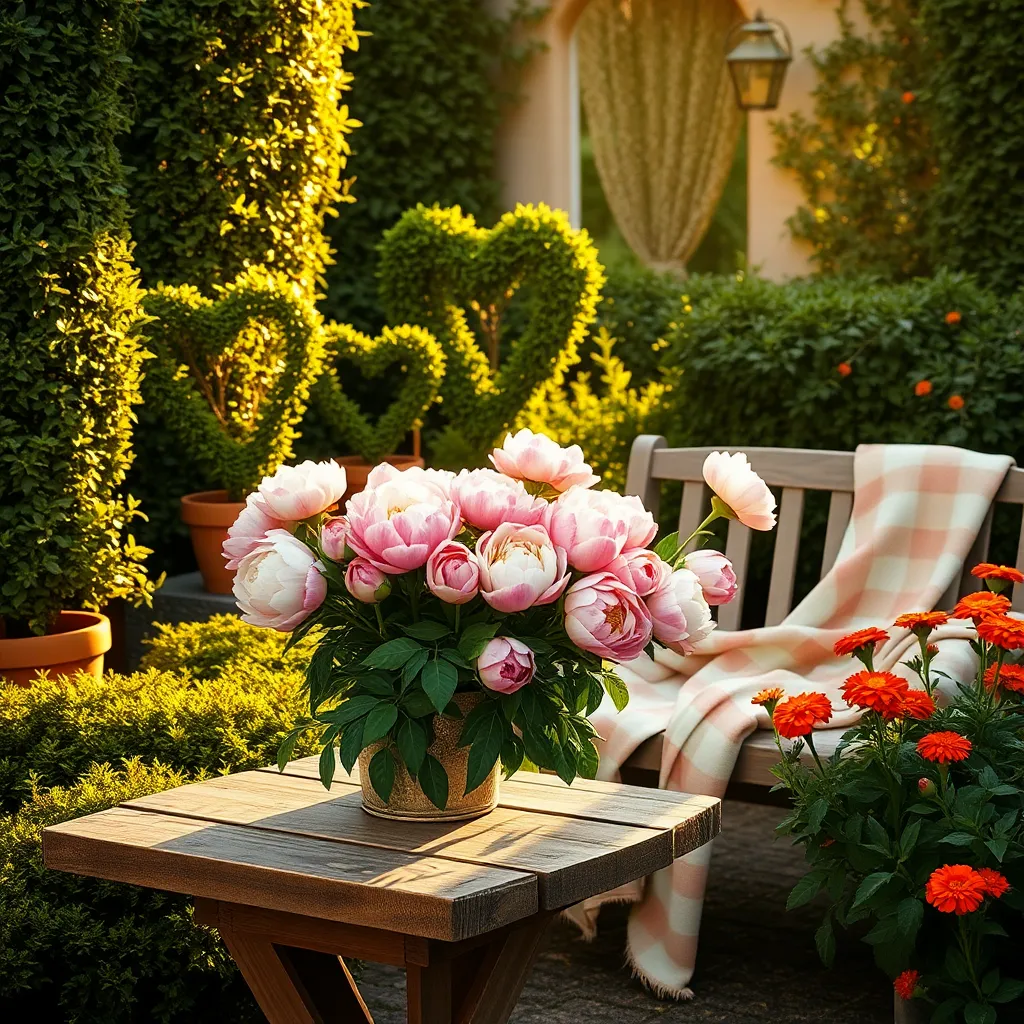
Expressing affection through gardening can be a creative and rewarding endeavor. Consider planting a small herb garden with your partner, which not only adds fresh flavors to your meals but also symbolizes growth and nurturing in your relationship.
To start, select herbs that thrive well together, such as basil, thyme, and rosemary. These herbs prefer well-drained soil and at least six hours of sunlight per day, making them ideal for a sunny windowsill or patio container.
For those looking to add a romantic touch, consider planting a rose bush. Choose a variety that suits your climate and space, and ensure it’s planted in a spot that gets plenty of sunlight, as roses need six to eight hours of direct sunlight daily for optimal blooms.
Watering is crucial to keep your plants thriving; herbs typically require about an inch of water per week, while roses might need a bit more during dry spells. Use a mulch layer around your plants to retain moisture and reduce weed growth, helping your garden flourish with minimal effort.
Mixing Quotes with Actions
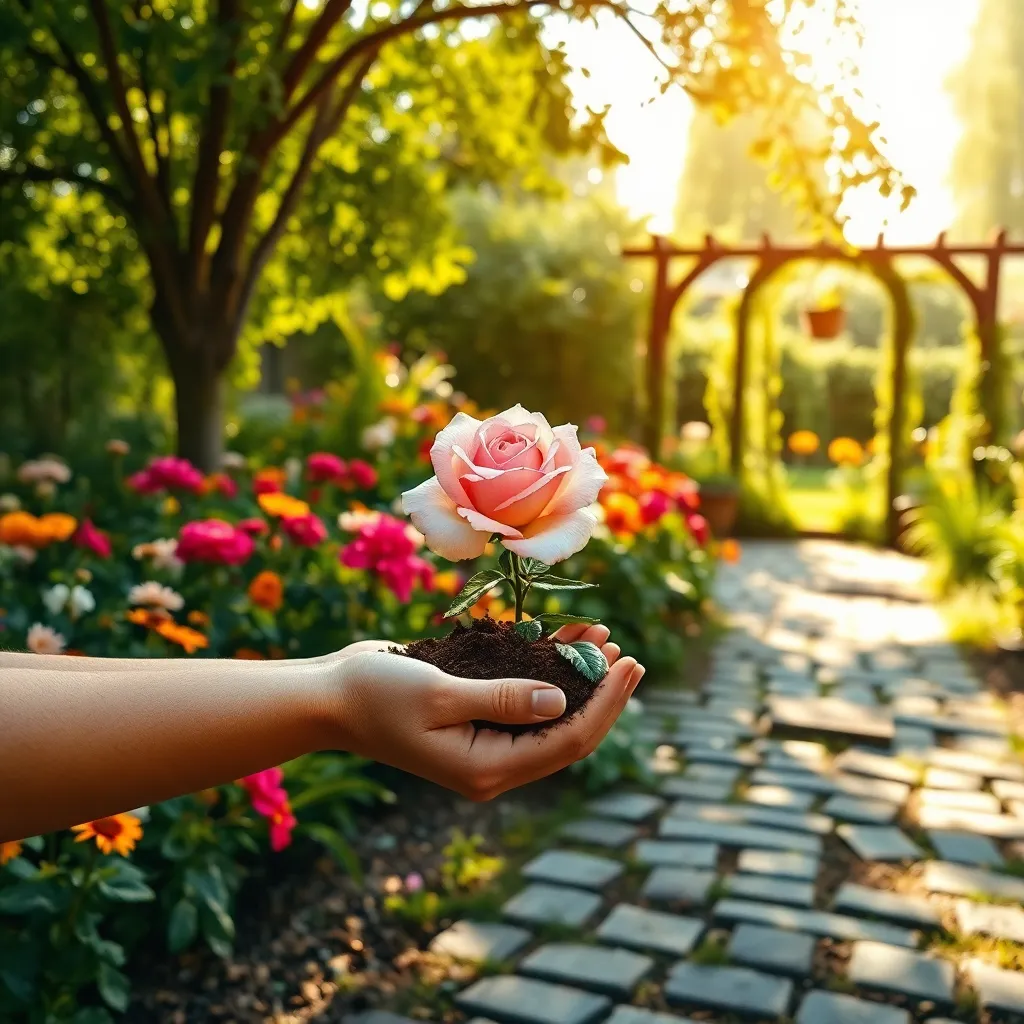
Transform your garden into a sanctuary of love by pairing romantic quotes with meaningful actions. Start by planting roses as a symbol of love, choosing varieties that thrive in your climate; they typically require six hours of sunlight and well-drained soil.
Consider crafting a unique garden plaque with a love quote, placing it near your favorite blooms. This adds a personal touch and encourages you to spend more time tending to your plants, ensuring they are well-watered and pruned regularly to promote healthy growth.
For a more advanced touch, create a heart-shaped flower bed using plants with complementary colors. Use rich, organic compost to enrich the soil, and select flowers that bloom at different times of the year to keep your heart garden vibrant year-round.
Integrate elements of surprise by planting fragrant herbs like lavender and rosemary near walkways, both of which symbolize devotion and remembrance. These herbs prefer sandy, well-drained soil and minimal watering, making them an easy addition even for beginner gardeners.
Quotes for Long-Distance Love
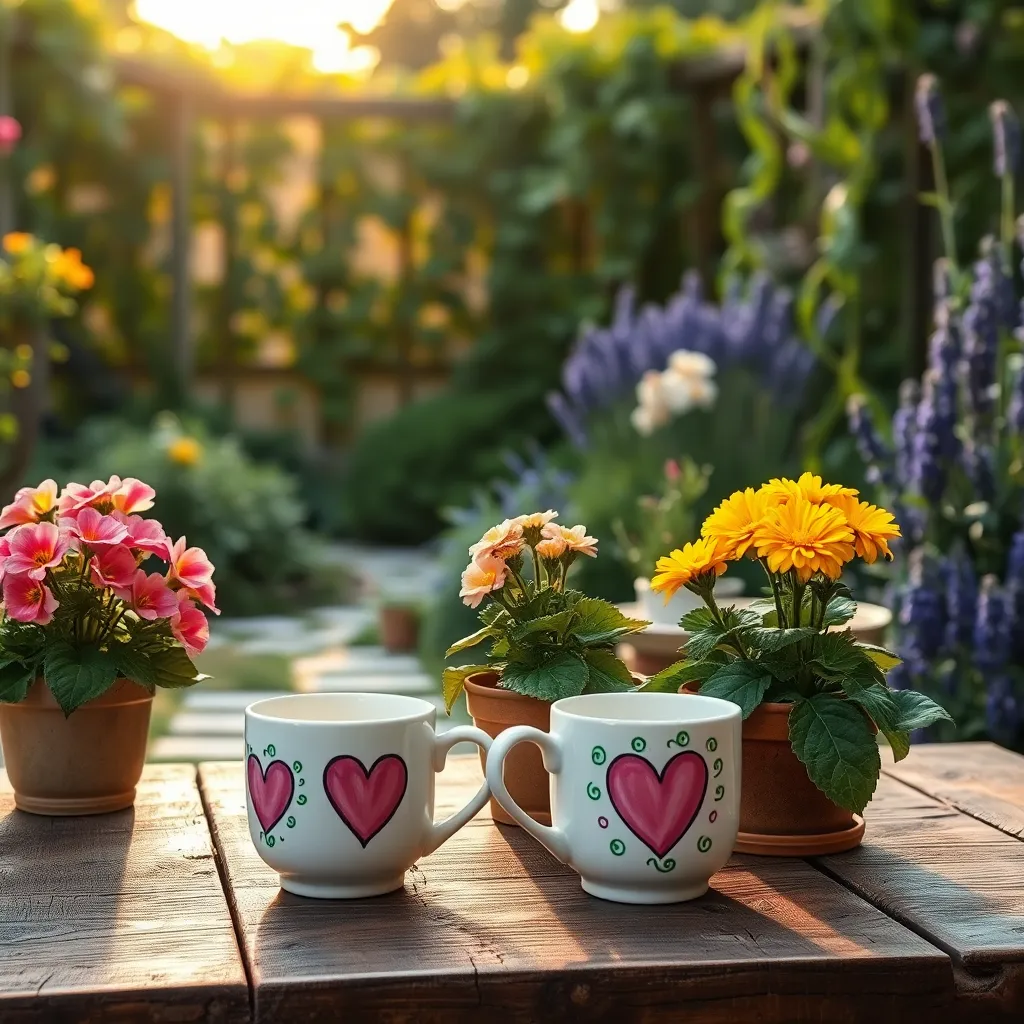
Long-distance love can be likened to nurturing a plant from afar, requiring patience and care. For gardeners dealing with long-distance plant care, understanding the specific needs of each plant is crucial. For instance, succulents require minimal watering, making them an excellent choice for those who can’t tend to their garden daily.
To maintain a thriving garden, even when you are away, consider setting up an automatic watering system. These systems can be tailored to provide the precise amount of water your plants need, ensuring they remain healthy and hydrated. For larger plants with deeper roots, adjust settings to deliver water less frequently but in larger quantities.
If you’re planning an extended absence, consider grouping your plants together to create a microclimate that retains humidity. This technique is especially beneficial for tropical plants that thrive in moist environments. Positioning them near a sunny window will also ensure they receive ample light, which is vital for photosynthesis.
Moreover, applying mulch around your plants can help conserve moisture and maintain soil temperature, reducing stress on your plants while you’re away. Mulch acts as a protective barrier, keeping roots cool in the summer and warm in the winter. For advanced gardeners, using organic mulch like shredded leaves or bark not only nourishes the soil but also improves its structure over time.
Cheesy Quotes for Text Messages
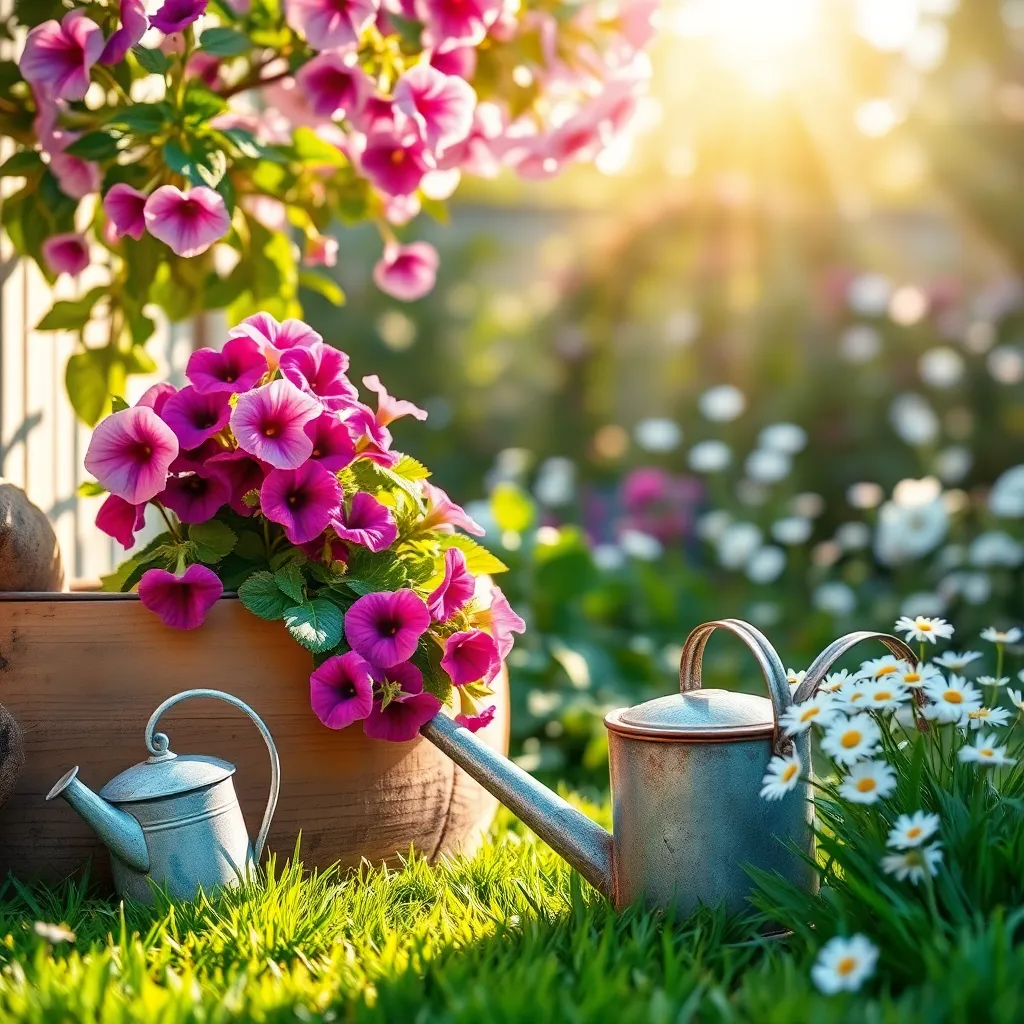
For a gardener, keeping your plants healthy is a lot like cultivating love—both require dedication and care. Start by ensuring your plants have the right amount of sunlight, which is as vital as the warmth of a heartfelt message.
Watering your plants is much like nurturing a relationship; it needs consistency and attention. Most plants thrive with watering once a week, but always check the soil moisture to prevent overwatering, which can drown the roots.
Just as love needs the right environment to flourish, so do your plants. Using a well-draining soil mix is essential, especially for herbs like rosemary and thyme, which prefer a sandy texture.
Adding a layer of mulch can be as protective as wrapping your loved one in a cozy hug. Mulch helps retain soil moisture, suppresses weeds, and slowly adds nutrients to the soil, ensuring your plants are well-fed and happy.
Choosing Quotes for Anniversaries
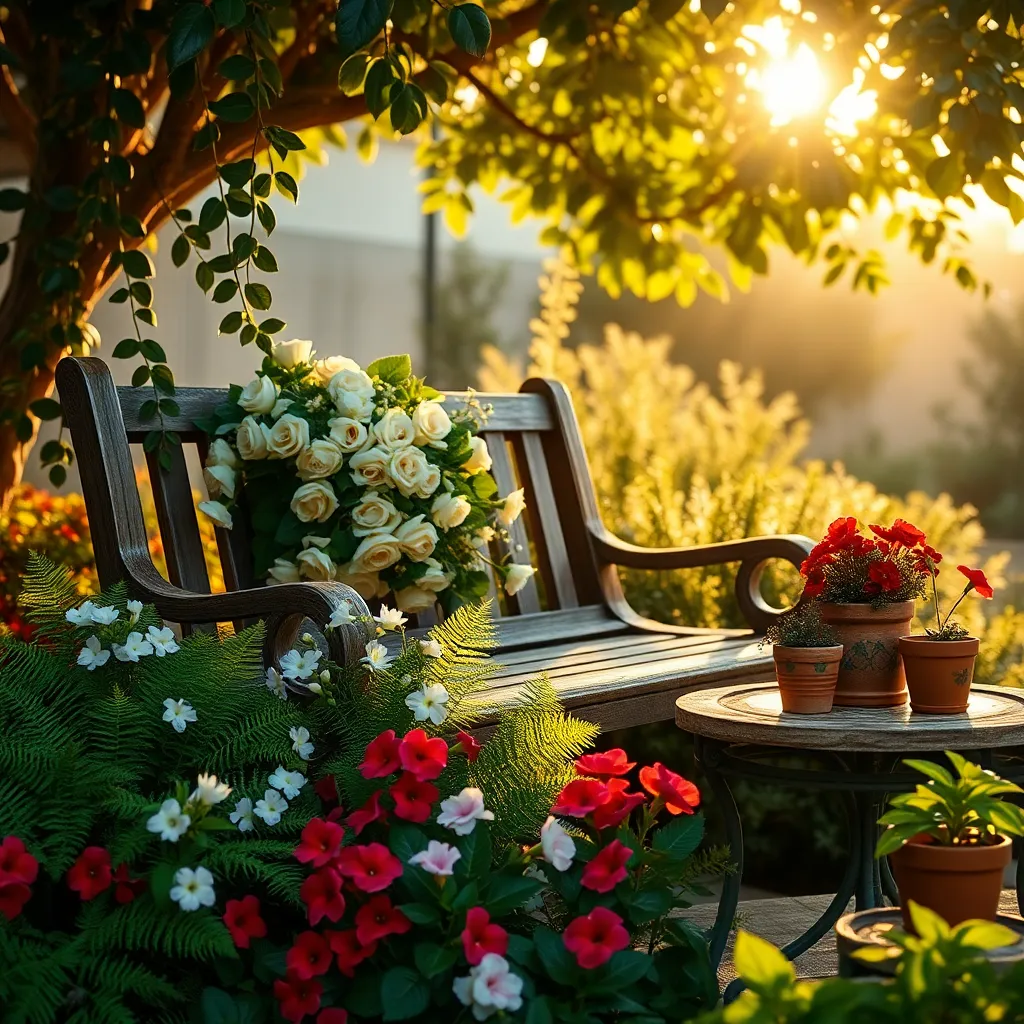
When selecting plants for an anniversary garden, consider perennial varieties that symbolize enduring love. Roses are a classic choice, thriving best in well-drained soil with at least six hours of sunlight daily.
Start by choosing a location that receives ample sunlight and has fertile soil. Make sure to enrich the soil with organic matter, such as compost, to promote healthy growth and vibrant blooms.
For an advanced gardening touch, consider companion planting with herbs like lavender or catmint to repel pests naturally while enhancing the beauty of your garden. Lavender requires less water than roses, so plant it slightly apart to ensure each plant receives the appropriate moisture level.
If you’re a beginner, start with easy-to-grow plants like daylilies, which are forgiving and don’t require frequent watering. These resilient plants thrive in a variety of soil types and need only occasional fertilizing to flourish.
Surprising with Unexpected Quotes
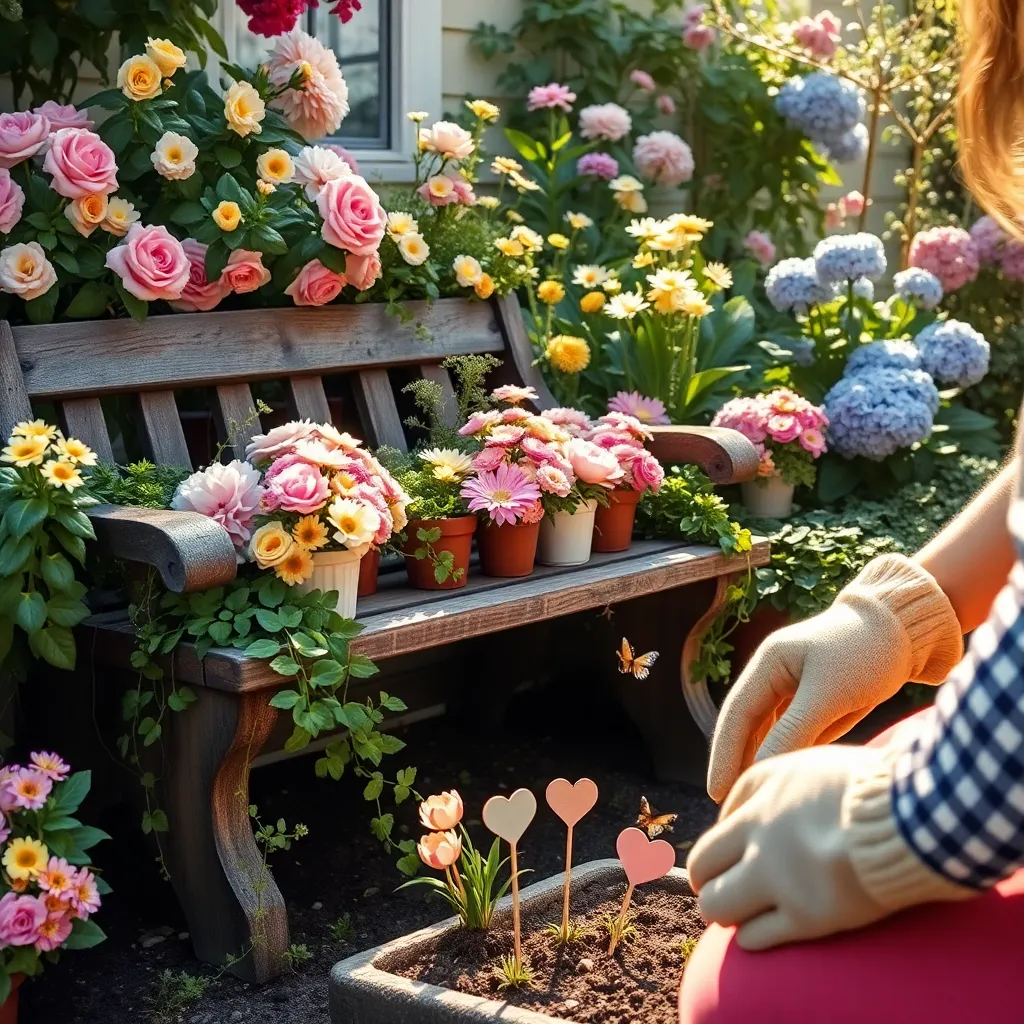
Gardening, much like love, often surprises us with unexpected moments of joy and discovery. One way to bring delight into your garden is by experimenting with plants that are not commonly found in your local area. Choose varieties that are well-suited to your climate, and you’ll be rewarded with a lush and thriving display. For instance, if you’re in a cooler climate, try growing hardy perennials like hellebores or heucheras, which offer color and interest in unexpected seasons.
To enhance your gardening experience, consider using unconventional quotes as plant labels or garden art. These little surprises can inspire you and your garden visitors as you stroll through your outdoor space. Opt for quotes that resonate with the joy and serenity of gardening, such as “Bloom where you are planted” or “Let your dreams blossom.” This creative touch not only personalizes your garden but also encourages a deeper connection to your growing space.
For those looking to spice up their gardening routine with new challenges, try planting something unexpected like a dwarf lemon tree or an exotic herb. Ensure these plants receive the right care by providing them with well-draining soil and regular watering, especially in dry periods. Additionally, using a balanced fertilizer will support healthy growth and fruit production. Even if you don’t live in a tropical climate, these plants can thrive indoors with adequate light and warmth.
Adding a touch of whimsy with unexpected quotes and unique plant choices can transform your garden into a personal sanctuary. Use these elements to express your personality and passion for gardening, creating a space that blooms with love and creativity. Whether you’re a beginner or an experienced gardener, these simple tips can help you cultivate a garden that surprises and delights every time you step outside. As with any endeavor, patience and care will yield the most beautiful results.
Quotes for Everyday Reminders
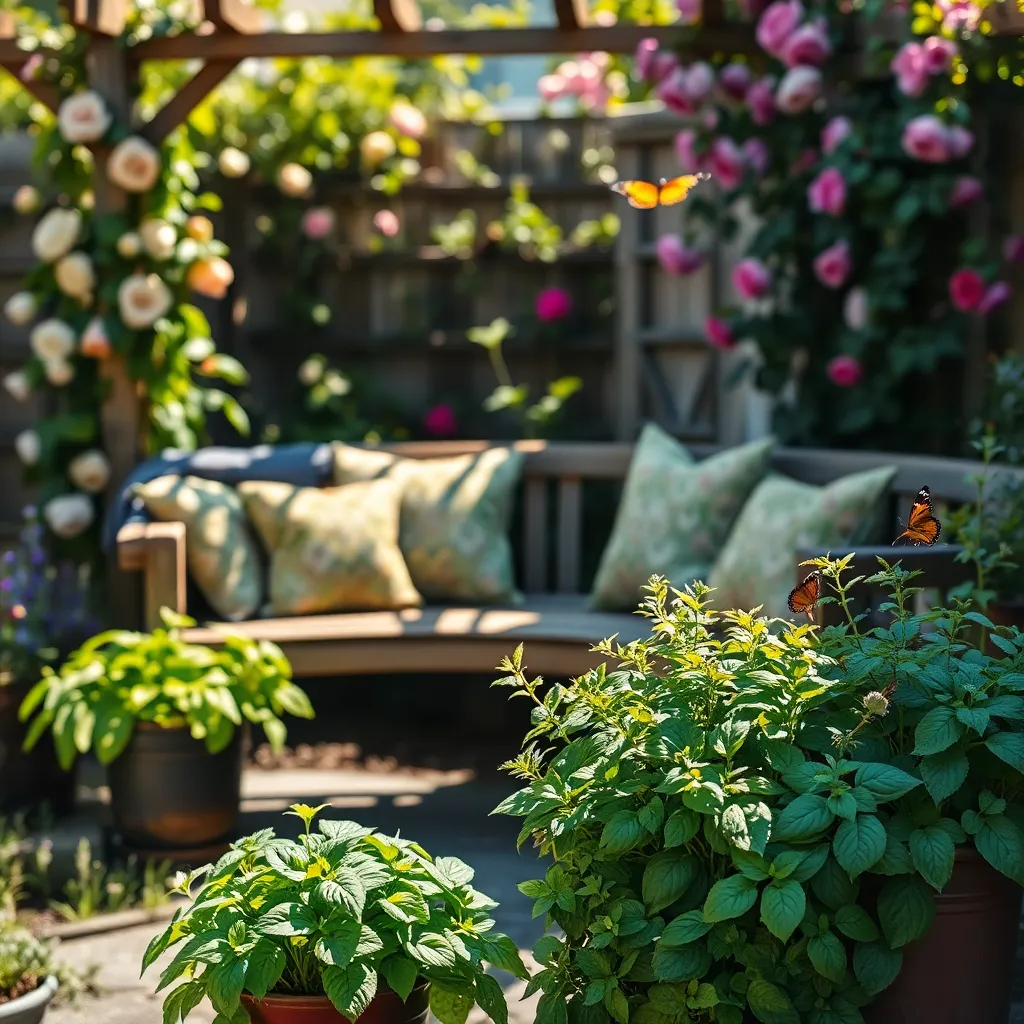
Gardening can be a gentle reminder that patience is key. Plants often take time to grow and flourish, teaching us to appreciate the slow and steady progress in our gardens and lives. For beginners, starting with easy-to-grow plants like marigolds or basil can boost confidence. These plants thrive in well-draining soil and require at least six hours of sunlight each day.
Experienced gardeners know that the right tools can make all the difference. Investing in a quality pair of pruning shears and a soil pH tester can enhance your gardening efficiency and plant health. Regular watering is crucial, but it’s important to consider each plant’s specific needs. For instance, succulents prefer infrequent watering, allowing the soil to dry out completely between sessions.
To create a thriving garden, it’s essential to understand the unique requirements of each plant species. Perennials like lavender and coneflower benefit from deadheading, which encourages more blooms and a tidier appearance. Mulching is an excellent practice for moisture retention and weed control, making it a time-saving technique for any gardener. When choosing mulch, organic options like bark or straw can enrich the soil as they decompose.
Advanced gardeners can experiment with companion planting to improve crop yields and deter pests naturally. For example, planting tomatoes alongside basil can enhance flavor and repel insects. Consider rotating crops each season to prevent soil depletion and reduce disease risks. This practice not only maintains soil fertility but also keeps your gardening experience fresh and exciting.
Sharing Quotes on Social Media
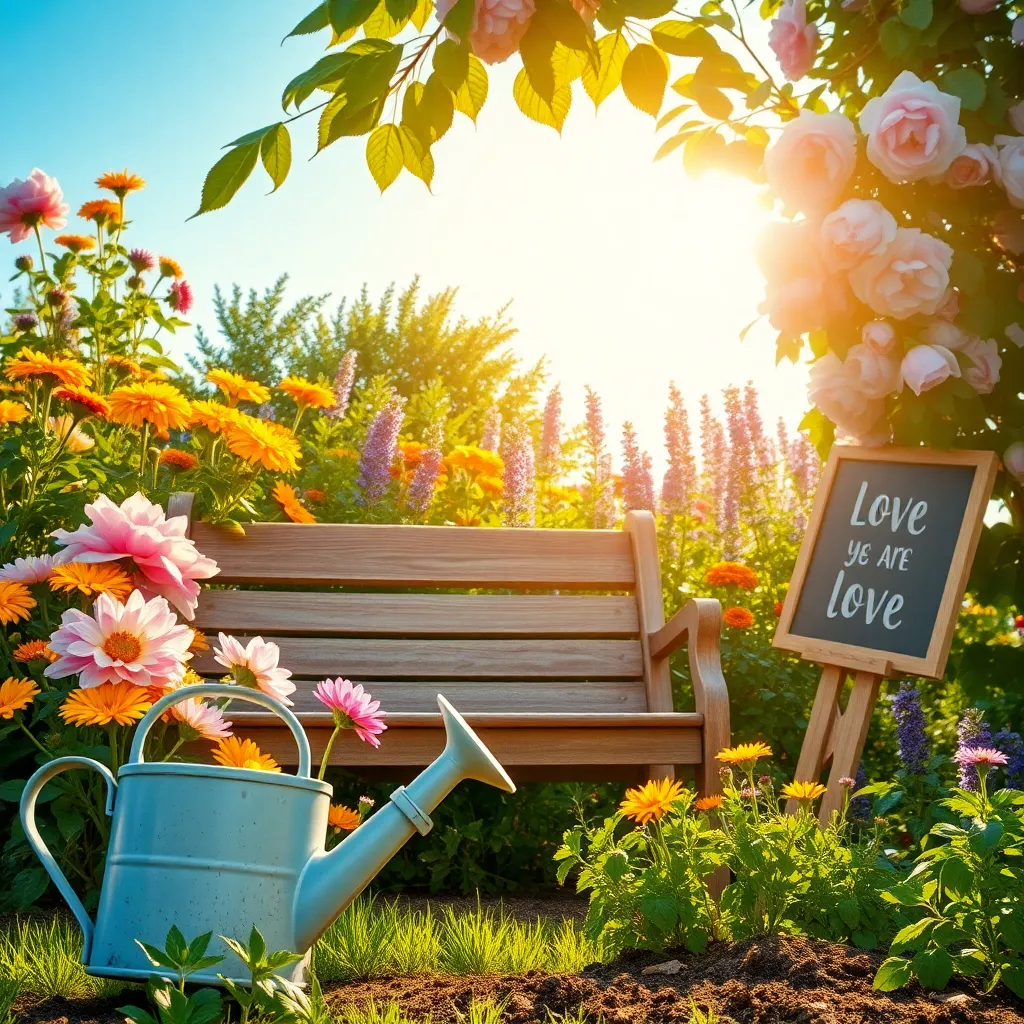
Sharing plant care tips on social media is a fantastic way to spread gardening knowledge and connect with fellow plant enthusiasts. Start by posting photos of your thriving plants along with brief captions about how you achieved such lush growth. For instance, you could share that your tomatoes are flourishing because you’ve been using a balanced 10-10-10 fertilizer every two weeks.
Another engaging idea is to create short, informative videos demonstrating specific gardening techniques. You might film a quick clip on how to properly deadhead flowering plants to encourage more blooms. This not only helps your followers enhance their gardening skills but also invites them to share their results, fostering a sense of community.
Gardening enthusiasts appreciate detailed plant care tips, and social media is the perfect platform to share them. Consider posting a step-by-step guide on how to repot a root-bound plant, emphasizing the importance of choosing the right soil type for specific plants. You could mention that succulents thrive in a gritty, well-draining mix, while ferns prefer a more moisture-retentive soil.
For advanced gardeners, sharing insights into more complex techniques can be highly valuable. Discuss your experience with companion planting and how it has improved your vegetable garden’s yield. For example, highlight the benefits of planting basil near tomatoes to enhance flavor and deter pests, and encourage followers to try it themselves and share their results.
Integrating Quotes in Gifts
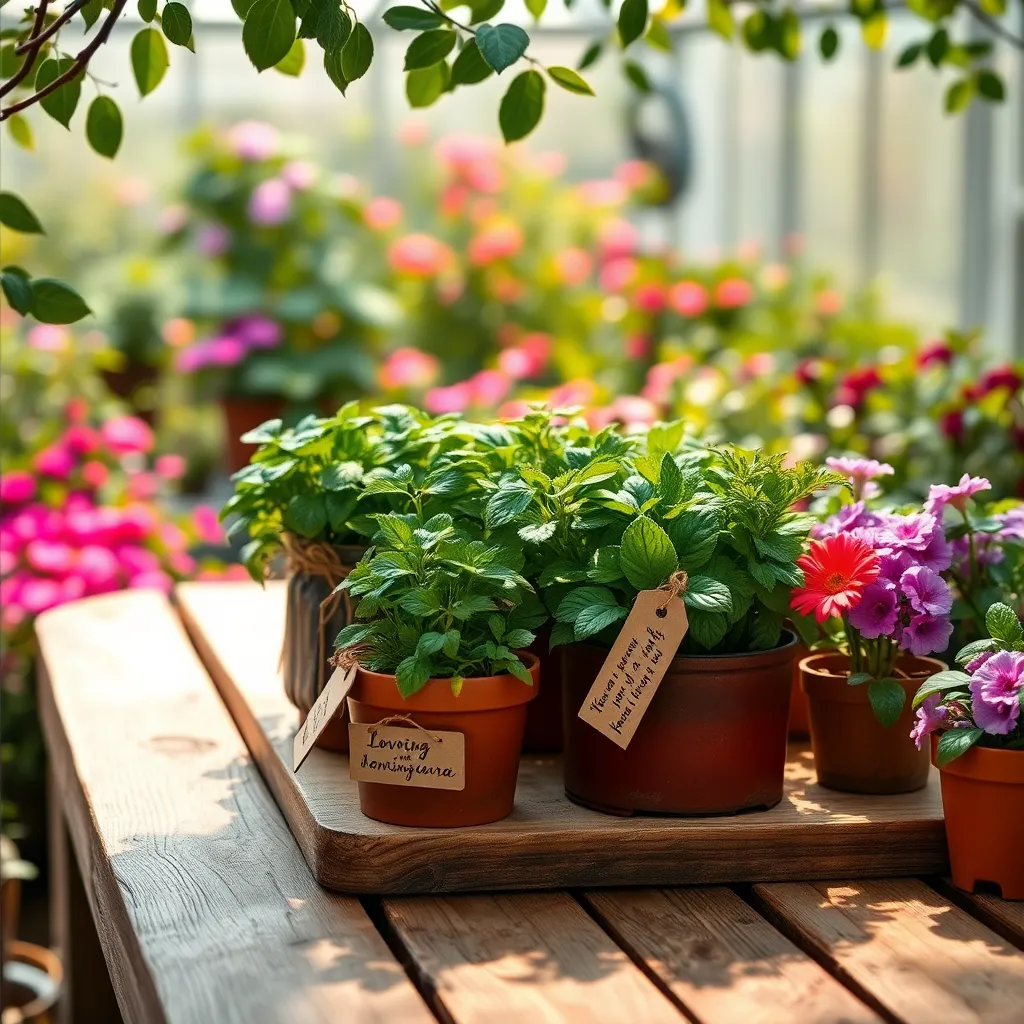
Incorporating quotes into garden-themed gifts can be a delightful way to add a personal touch. Consider crafting a handmade sign for your garden or a loved one’s outdoor space, featuring an inspiring quote about growth or nature.
Personalized plant pots are another creative option for integrating quotes. Use waterproof paint to inscribe a short, sweet message, ensuring it can withstand the elements while adding a heartfelt touch to any plant.
For a more advanced project, create a garden stepping stone with an engraved quote. Use a concrete mixture and a durable stencil to imprint words that capture the spirit of gardening and love, providing a lasting piece for any garden path.
Garden journals are also a meaningful gift, serving both practical and sentimental purposes. Personalize the cover with a quote about the journey of gardening, encouraging the recipient to document their own experiences and growth.
Exploring Famous Love Quotes
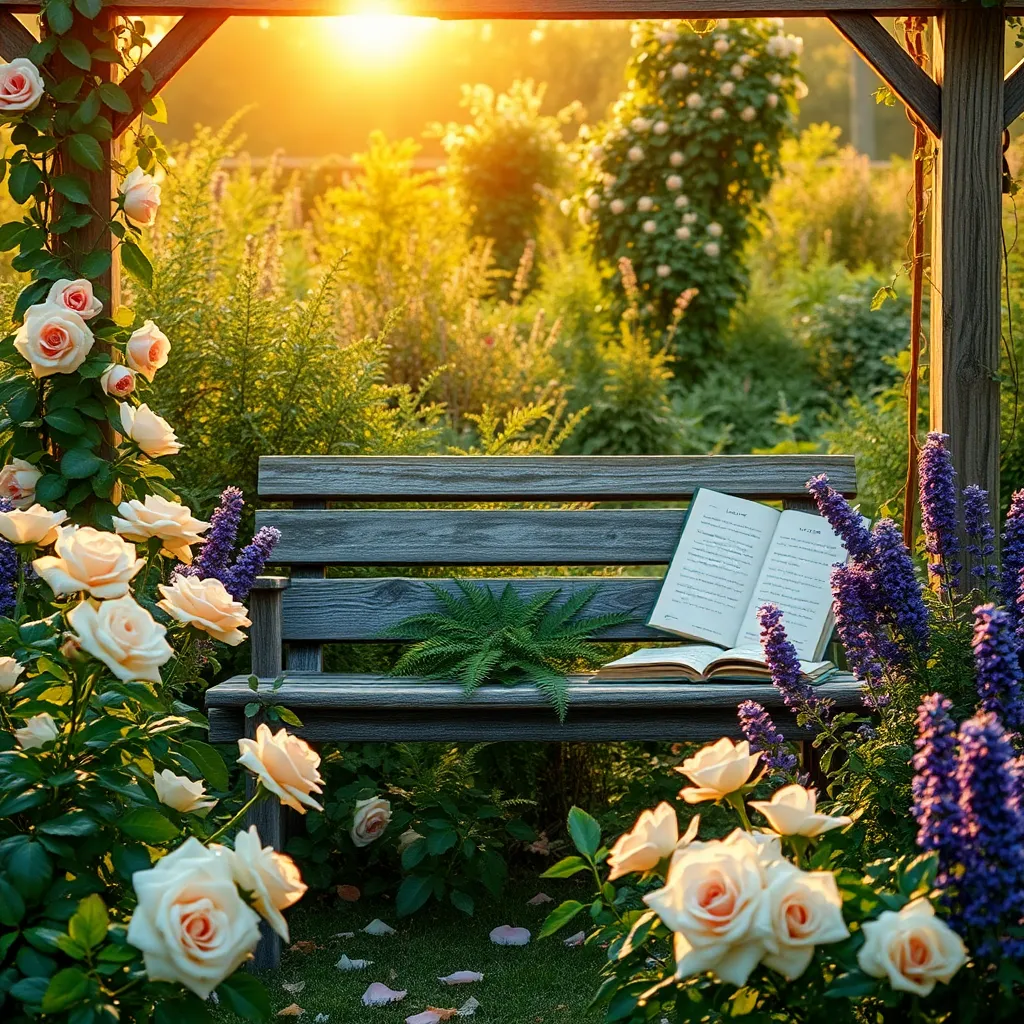
Love quotes can be as nurturing to relationships as water is to plants. In the garden, understanding the specific needs of each plant is crucial to their thriving, much like understanding a partner’s love language.
For beginners, starting with easy-care plants like succulents can be a delightful way to witness the power of nurturing. These plants require well-draining soil and should be watered sparingly, allowing the soil to dry out completely between waterings.
Meanwhile, seasoned gardeners might enjoy the challenge of growing roses, the quintessential symbol of love. Roses thrive in full sun and need rich, well-drained soil amended with compost, as well as regular pruning for optimal blooms.
Incorporating love quotes into your garden can inspire and uplift as you tend to your plants. Consider placing small signs with quotes among your herbs or flower beds to create a garden that nourishes both the soul and the senses.
Creating Custom Love Quotes
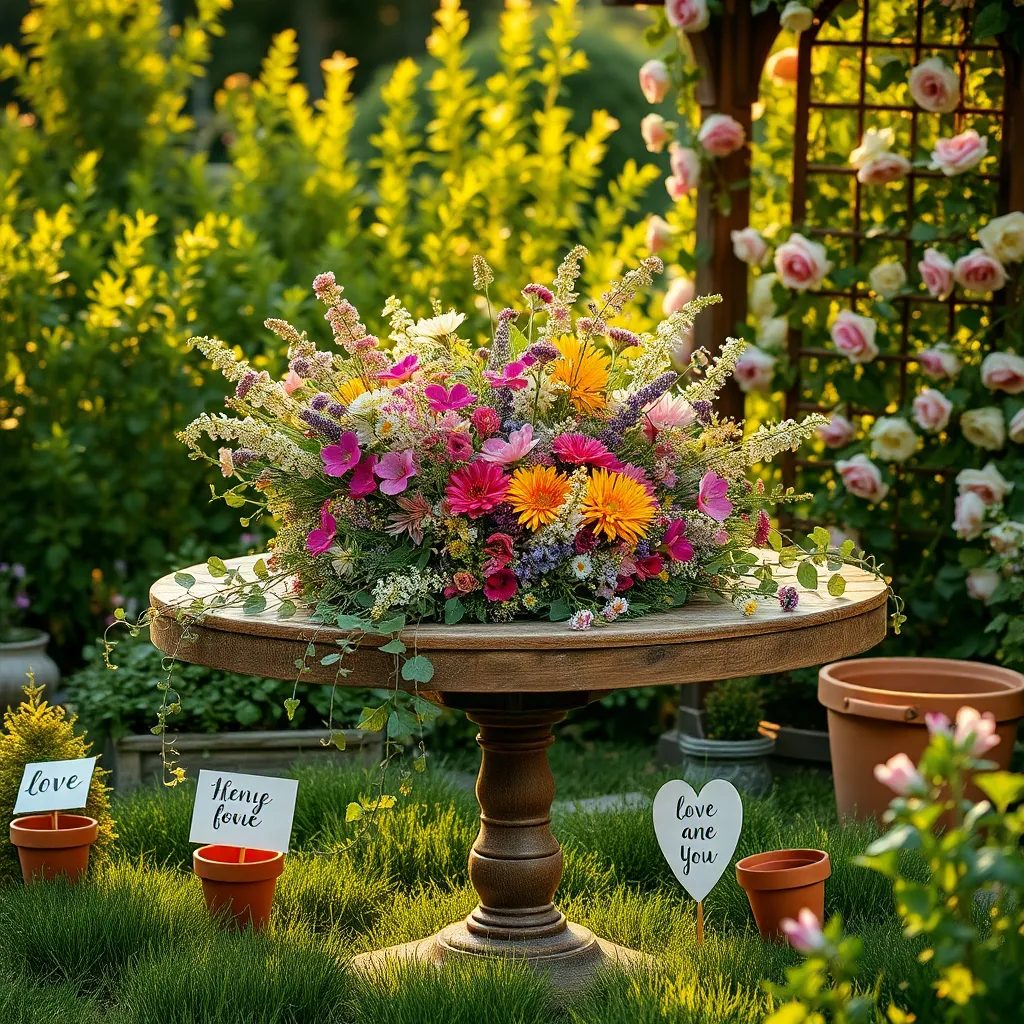
When crafting custom love quotes in the garden, consider the unique traits of your plants to inspire your words. For example, the resilience of a cactus can symbolize enduring love, while the vibrant blooms of a sunflower might evoke warmth and joy.
Begin by observing how different plants thrive in specific conditions. Understanding these details can help you draw parallels between your care for plants and nurturing a relationship, adding depth to your quotes.
Incorporate practical gardening techniques into your creative process. For instance, understanding that roses prefer well-drained, loamy soil with a pH of 6.0 to 6.8 can inspire a quote about providing the right foundation for love to grow.
For more advanced gardeners, consider the role of companion planting as a metaphor. Just as certain plants grow better together, like tomatoes and basil, love can flourish when we find harmony with our partners.
Quotes That Spark Joy
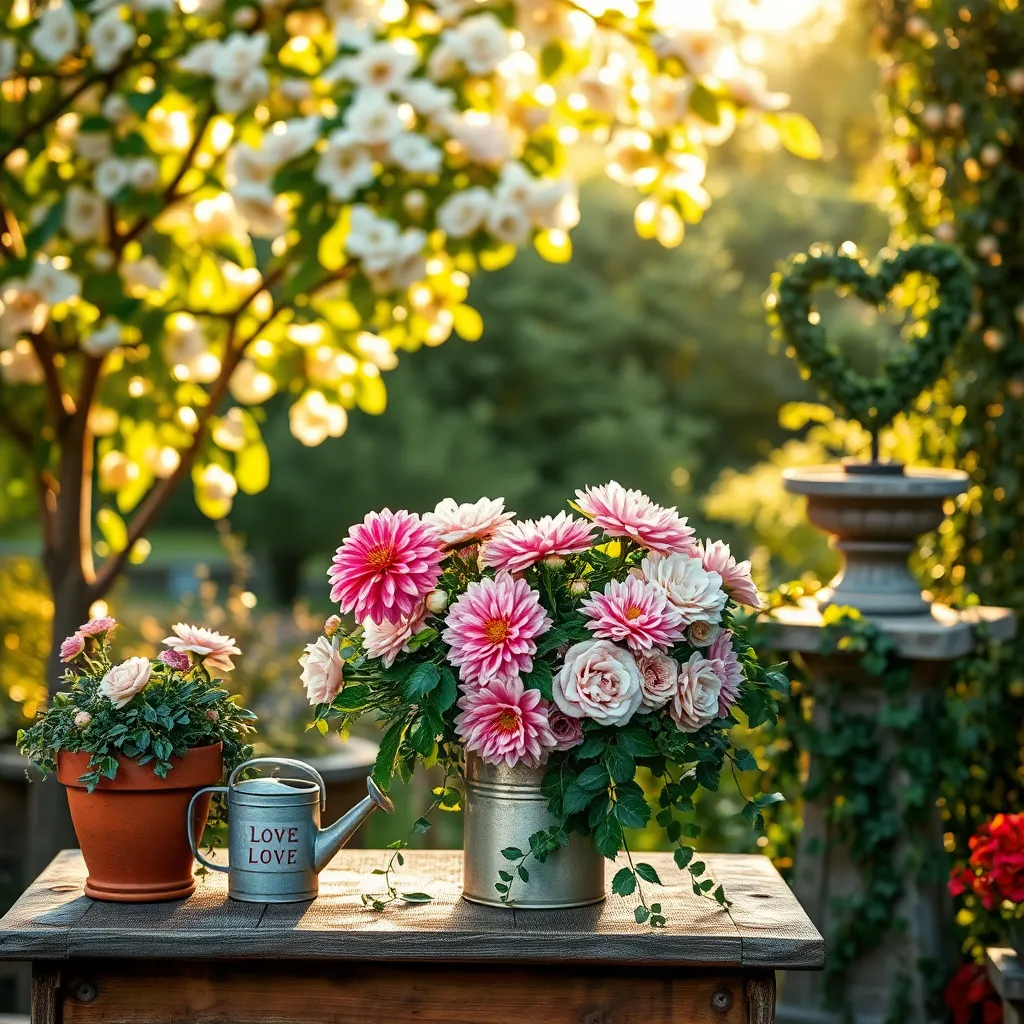
Embrace the joy of gardening by starting with the essentials. Choose a well-draining soil mix, such as a combination of peat moss and perlite, to ensure your plants thrive.
Watering is crucial to plant health, so it’s important to develop a consistent schedule. For most plants, aim to water once a week, allowing the soil to dry slightly between waterings to prevent root rot.
Light conditions can dramatically affect plant growth. While many flowering plants require full sun, leafy greens can often thrive in partial shade, making them versatile additions to your garden.
Enhance your gardening skills by experimenting with companion planting. Pairing plants like tomatoes and basil not only saves space but can also improve flavor and deter pests naturally.
Keeping It Lighthearted
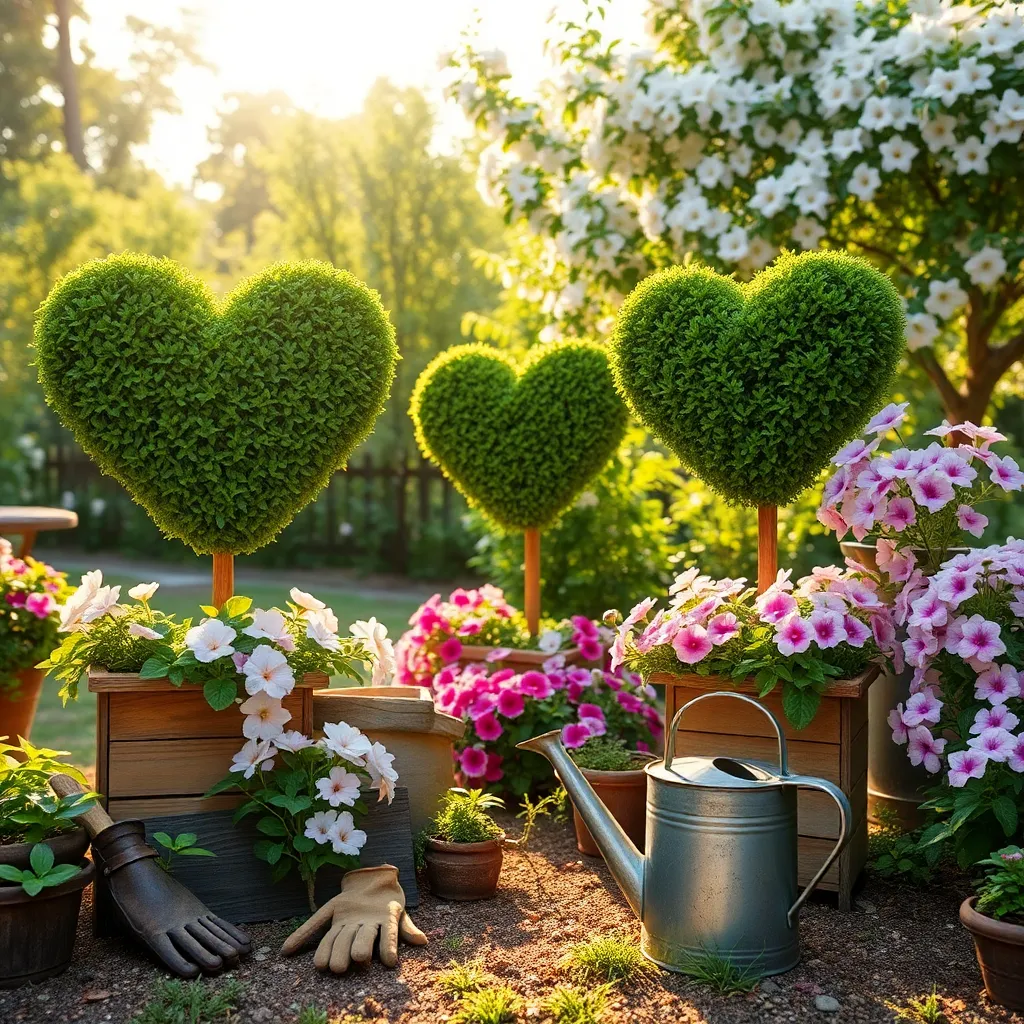
Gardening is much like love; both require patience, nurturing, and a touch of humor to truly flourish. To keep it lighthearted, remember that even seasoned gardeners face challenges, but a positive attitude can make all the difference.
When it comes to plant care, one simple rule is to always check the soil moisture before watering. For beginners, inserting your finger about an inch deep into the soil will tell you if it needs water; if it’s dry, it’s time to water!
For those looking to add some whimsy to their garden, try planting sunflowers. These cheerful giants not only brighten up spaces but also attract beneficial pollinators like bees and butterflies, promoting a healthier garden ecosystem.
Avoid overthinking fertilization by sticking to a regular schedule, such as fertilizing every two weeks during the growing season. Use a balanced, slow-release fertilizer to provide steady nutrients, ensuring your plants grow strong and vibrant.
Quotes for Romantic Getaways
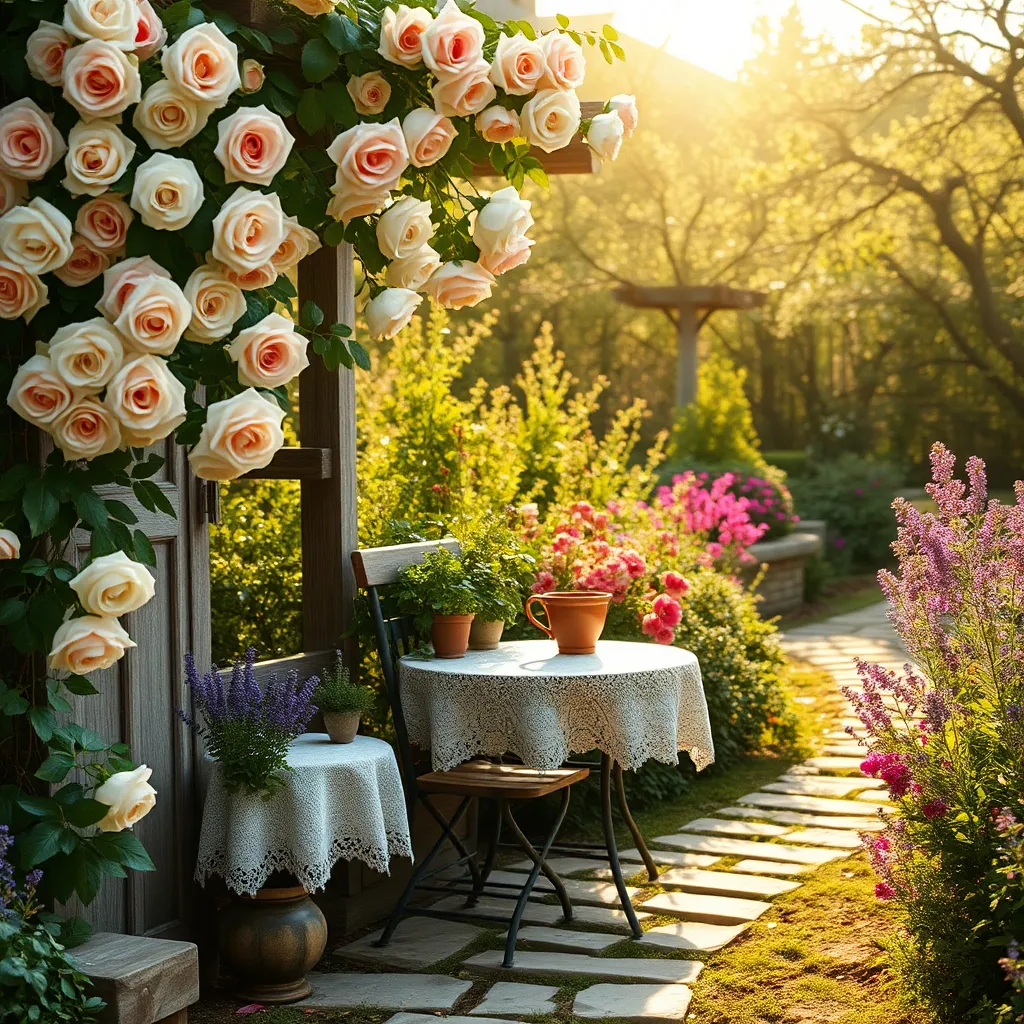
Creating a romantic getaway in your garden can be a delightful project that enhances both your outdoor space and your relationship. Start by choosing plants that evoke a sense of romance, such as fragrant roses or delicate lavender, which not only add beauty but also fill the air with enchanting scents.
For those new to gardening, begin with hardy rose varieties like Knock Out roses, which are known for their disease resistance and prolific blooms. Ensure they are planted in well-draining soil and receive at least six hours of sunlight daily for optimal growth.
Experienced gardeners might consider creating a secluded corner using climbing plants like clematis or wisteria, which can transform a simple trellis into a lush, private retreat. These climbers require support structures and regular pruning to maintain shape and promote flowering.
To enhance the romantic atmosphere, incorporate soft lighting with solar-powered garden lights or lanterns, which can be woven through branches or placed strategically around seating areas. This not only extends the usability of your garden into the evening but also adds a magical glow to your romantic setting.
Using Quotes to Break Ice
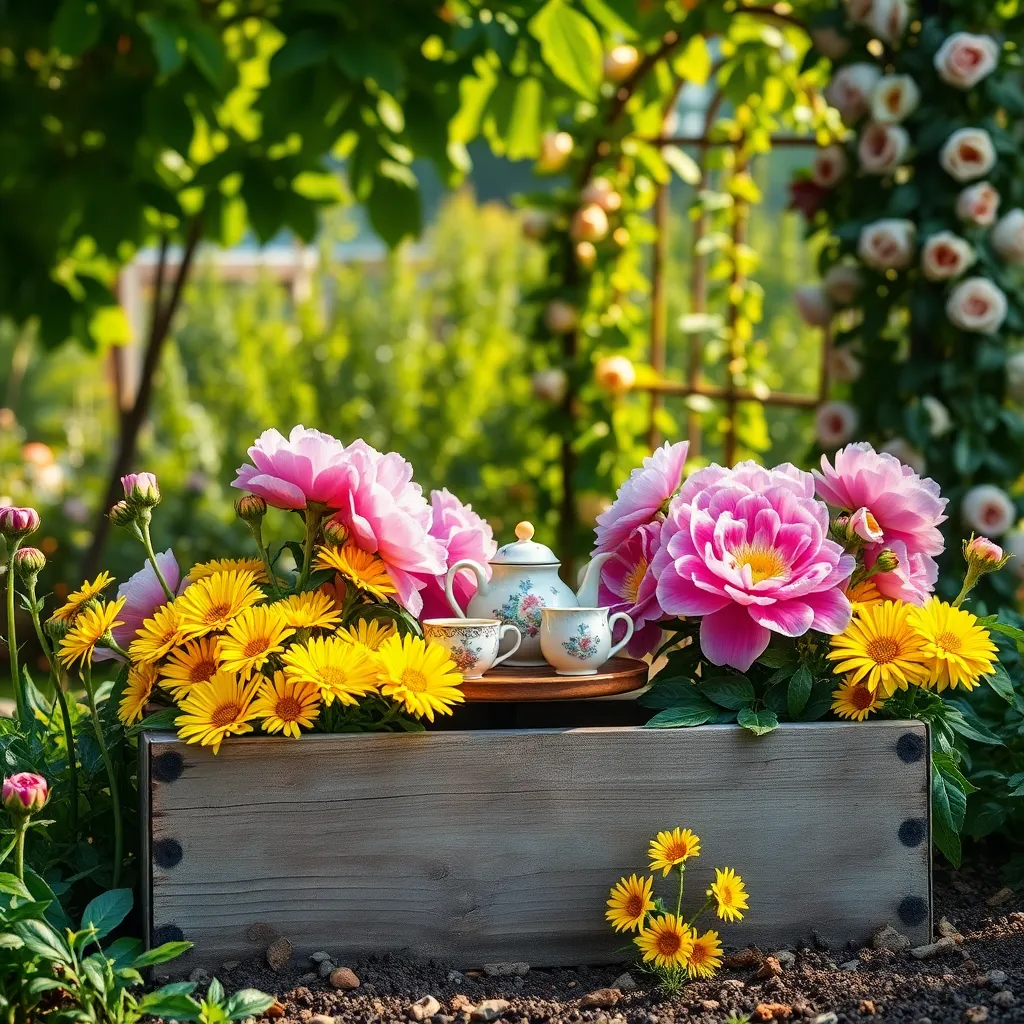
Breaking the ice with fellow gardeners can be as simple as sharing a light-hearted quote about plants. A well-timed quip can turn a routine conversation into a delightful exchange, much like how a touch of compost can enrich your soil. For beginners, start by understanding the basic requirements of your plants, such as the ideal soil type and sunlight conditions. Knowing these details allows you to share practical tips, like how tomatoes thrive in well-drained, nutrient-rich soil with plenty of sunlight.
Consider discussing the peculiarities of a fascinating plant like the Venus flytrap to spark interest. Mention that these unique plants require a humid environment and distilled water, as tap water can harm them due to minerals. For those looking to advance their gardening skills, delve into the art of propagation. Sharing tips on propagating succulents, for example, can not only break the ice but also inspire fellow gardeners to experiment, knowing that these plants need little water and plenty of bright, indirect light.
Engaging in plant swaps is another excellent way to connect with others, and having a few quotes ready can make the event more enjoyable. Try out different techniques, such as trading cuttings or seeds, and offer advice based on your experiences. Highlight the importance of using the right tools, like sharp pruning shears for clean cuts when taking clippings. This practical advice, coupled with a friendly demeanor, can make any gardening gathering a memorable occasion.
Quotes for New Relationships
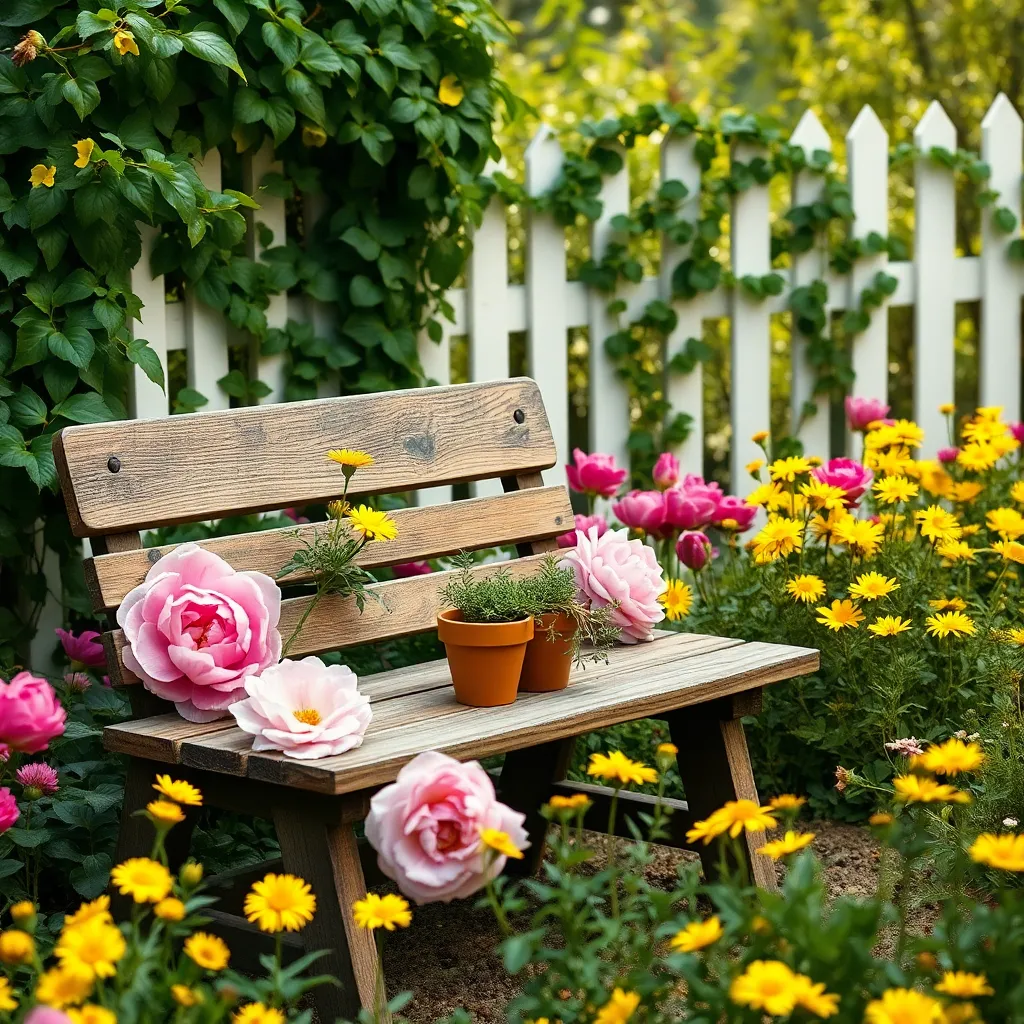
In the delightful journey of cultivating new relationships, much like tending to a budding garden, understanding the basics is crucial. Begin by choosing the right plants for your environment, focusing on varieties that thrive in your local climate and soil type to ensure a successful start.
Watering is a fundamental aspect of plant care, just as communication is in any relationship. For most plants, provide consistent moisture by watering deeply once or twice a week, allowing the top inch of soil to dry between watering sessions to prevent root rot.
Light requirements can vary significantly among plants, similar to how different individuals have unique needs and preferences. Ensure that your plants receive the appropriate amount of sunlight by placing them in locations where they can receive either full sun, partial shade, or full shade as needed.
To nourish both plants and relationships, quality is key. Use a balanced fertilizer during the growing season to promote healthy growth, applying it according to the package instructions to avoid over-fertilizing, which can harm plants.
Quotes for Established Couples
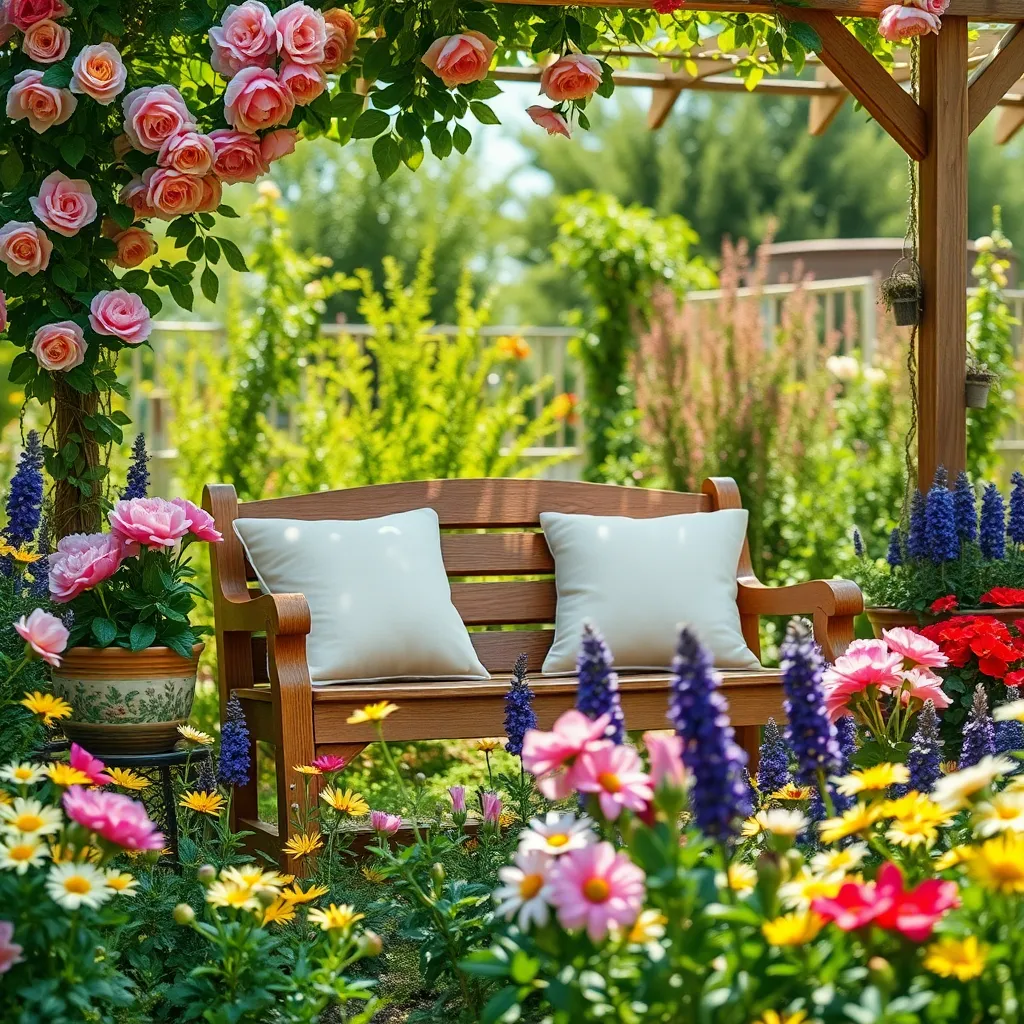
In a well-established garden, much like a seasoned relationship, it’s essential to nurture what you’ve built over time. Regular pruning is crucial; it helps plants like roses and fruit trees maintain their shape and encourages new growth, ensuring they remain vibrant and productive.
Consider enriching the soil with organic compost, as healthy soil is the foundation of a thriving garden. This practice not only supplies essential nutrients but also improves soil structure and water retention, which are vital for plant health.
For those who have mastered the basics, experimenting with companion planting can elevate your gardening game. By pairing plants like tomatoes and basil, you can naturally deter pests and boost growth, enhancing the overall ecosystem of your garden.
Finally, pay attention to the microclimates within your garden, as established couples do to the nuances of their relationship. Positioning sun-loving plants, such as lavender or succulents, in south-facing spots ensures they receive optimal sunlight, leading to robust growth and stunning blooms.
Understanding Different Love Languages
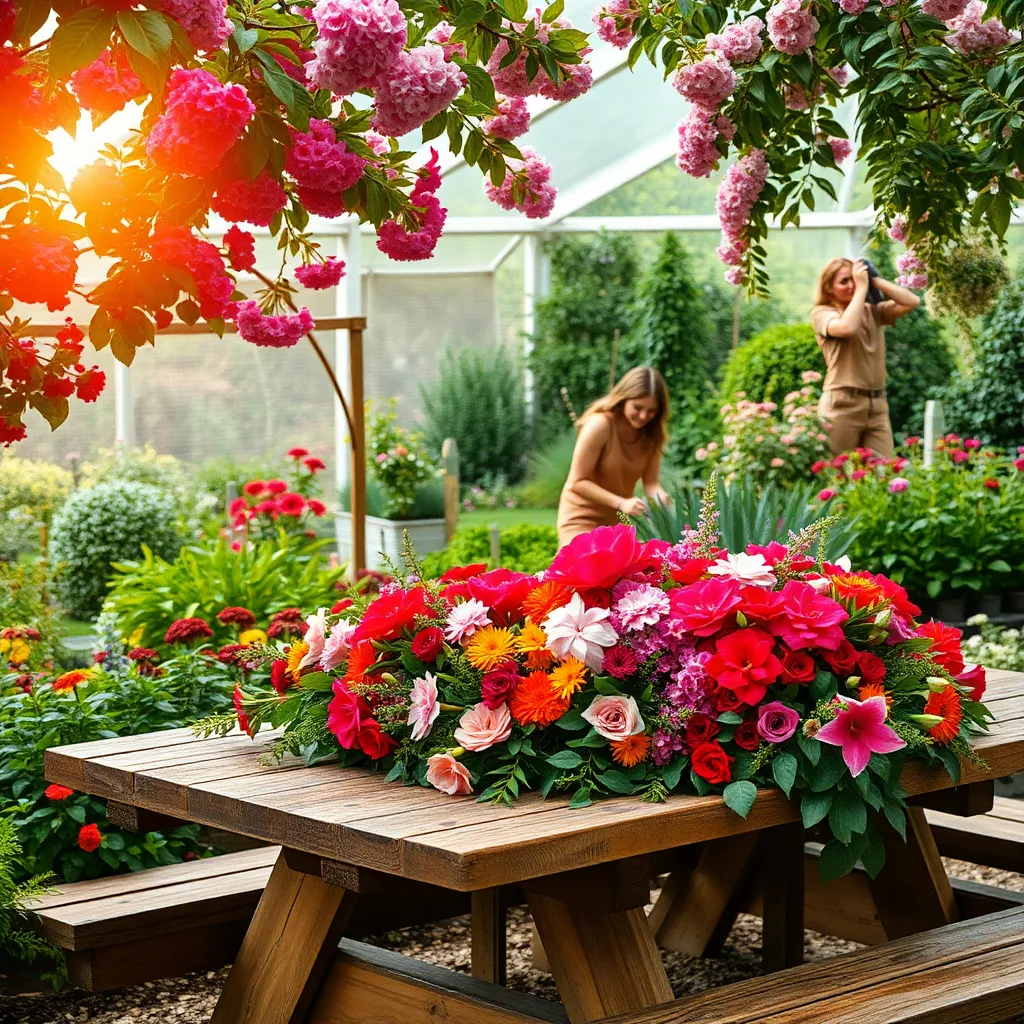
Just like in relationships, understanding the different “love languages” of your garden can help you nurture a thriving environment. Each plant has its own set of needs, and recognizing these can make all the difference in your gardening success.
For beginners, starting with understanding soil preferences is crucial. Many plants thrive in well-draining soil, so consider adding sand or perlite to your potting mix to improve aeration and drainage.
Watering is another vital “love language” that varies greatly from plant to plant. While succulents prefer their soil to dry out completely between waterings, ferns thrive in consistently moist conditions, so be sure to adjust your watering schedule accordingly.
Advanced gardeners might explore the specific nutrient needs of different plants to enhance growth and bloom. Using a balanced, slow-release fertilizer can support a wide range of plants, but some, like roses, may benefit from additional feeding during their blooming season.
Quotes for Different Love Styles
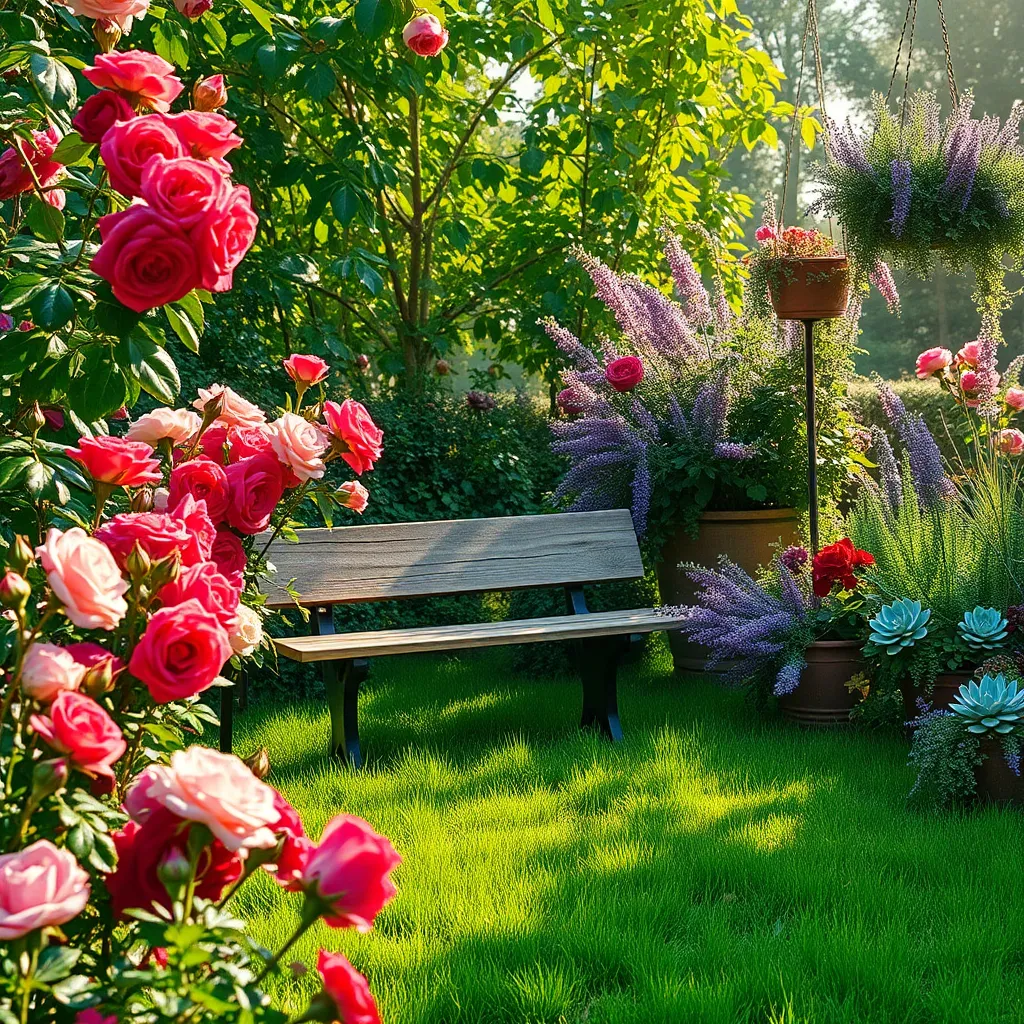
In the realm of gardening, understanding the different “love styles” of plants can transform your garden into a thriving paradise. Just as in human relationships, knowing what makes each plant flourish can lead to beautiful, long-lasting results.
For plants that prefer a more hands-off approach, consider succulents. These resilient plants thrive on minimal watering, requiring only a good soak when the soil is completely dry.
In contrast, some plants, like roses, demand a more attentive “love style.” Ensure they receive deep watering at least once a week, and use a balanced fertilizer every month to promote lush blooms.
Herbs, such as basil and mint, appreciate consistent yet gentle attention. Harvest regularly to encourage bushy growth, and keep the soil moist but not waterlogged.
For the gardener seeking a deeper connection, orchids offer a rewarding challenge. They require a specific potting mix, such as bark or moss, and benefit from humidity and indirect light.
Each plant’s unique needs mirror the diversity of love languages, reminding us that understanding and adapting are key to a flourishing garden. By tailoring your approach to each plant’s preferences, you’ll cultivate not only a vibrant garden but also a gratifying gardening experience.
Finding the Right Timing
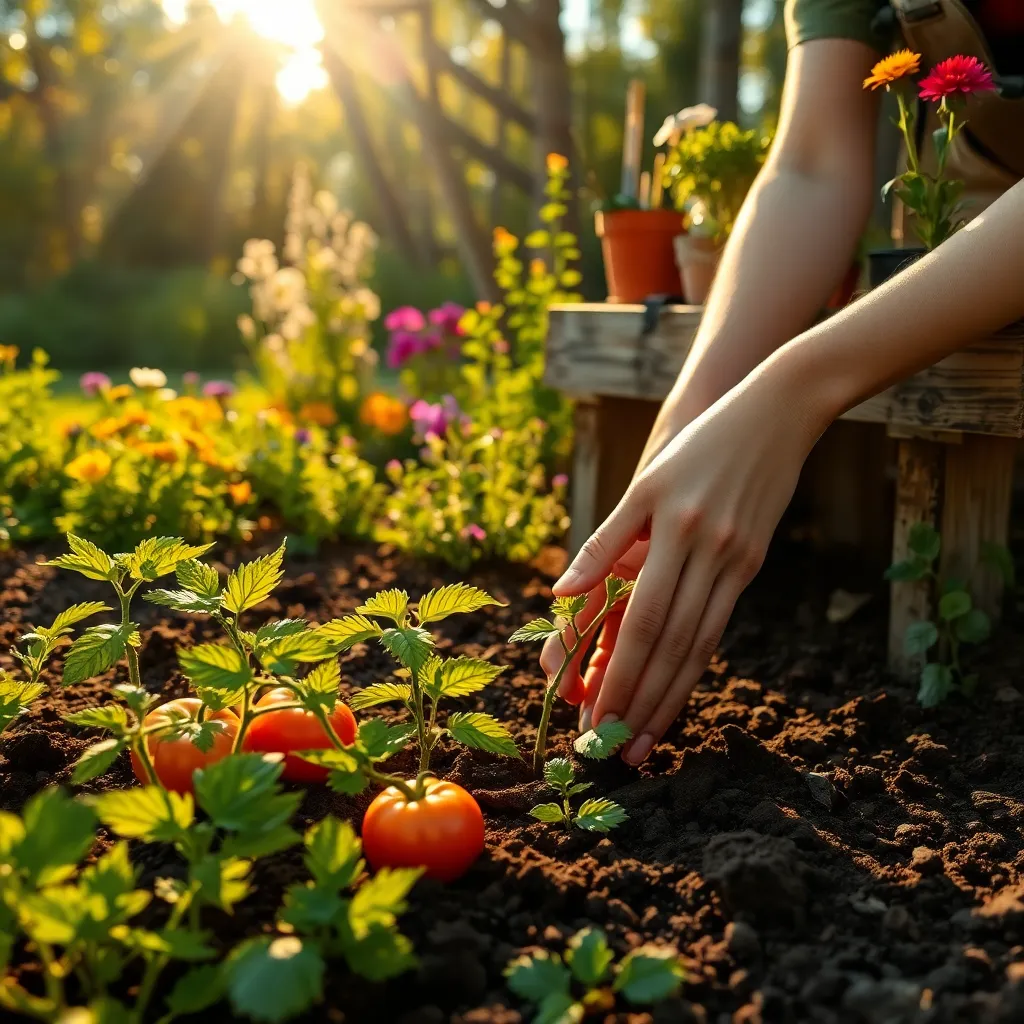
Timing is everything when it comes to successful gardening, especially when planting seeds. **Planting at the right time** ensures your plants thrive, avoiding frost and taking advantage of optimal growing conditions.
Begin by understanding your local climate and the specific needs of the plants you wish to grow. For **cool-season crops** like lettuce and spinach, sow seeds early in spring or late summer to avoid the heat.
In contrast, warm-season crops such as tomatoes and peppers require warmer soil temperatures to germinate well. Wait until after the last frost to plant these, ensuring the soil is consistently warm enough for healthy growth.
Advanced gardeners may consider using a soil thermometer to gauge soil temperature accurately, ensuring it’s ideal for planting. **Tracking weather patterns** also helps in making informed decisions about when to plant or transplant seedlings.
- Check seed packets for specific planting times recommended for your region.
- Consider starting seeds indoors if outdoor conditions aren’t yet ideal.
- Use **row covers** or cloches to extend the growing season for certain crops.
Adjust your planting strategy based on the plant’s growth cycle and your local weather forecasts. This proactive approach can significantly enhance your garden’s productivity and ensure a bountiful harvest.
Enhancing Romance with Quotes
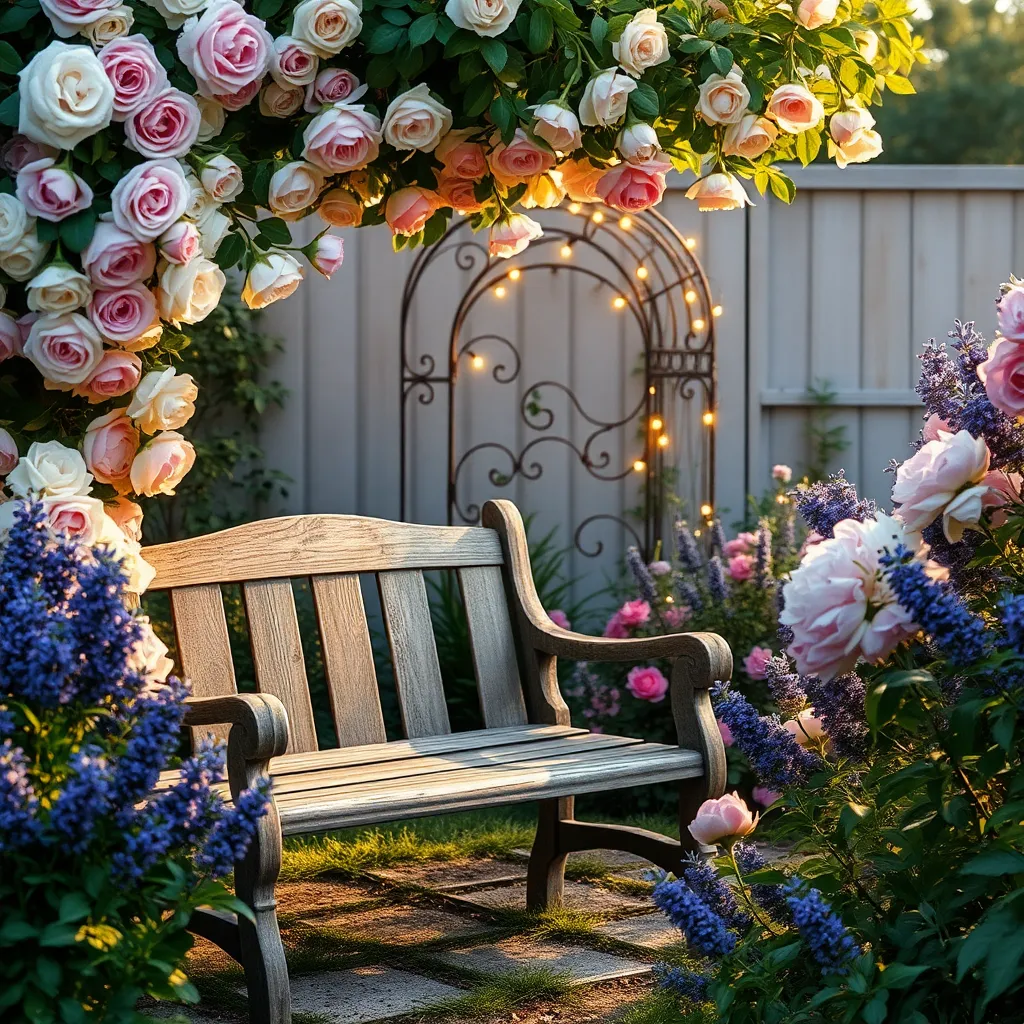
To enhance the romance in your garden, consider incorporating plants that evoke love and affection. **Roses, with their classic beauty and enchanting fragrance, are perfect for creating a romantic atmosphere.**
Choose varieties that thrive in your climate and soil conditions, ensuring they receive at least six hours of sunlight daily. **Water them deeply but infrequently, allowing the top inch of soil to dry out between waterings.**
For a touch of whimsical charm, add sweet peas to your garden, as these delicate flowers symbolize lasting pleasure. **Plant them in well-drained soil and provide a support structure, as their tendrils love to climb.**
Encourage lush growth by feeding your sweet peas with a balanced liquid fertilizer every two weeks during the growing season. **Pinch off spent blooms promptly to encourage further blossoming and maintain their captivating allure.**
Inspiring Love through Words
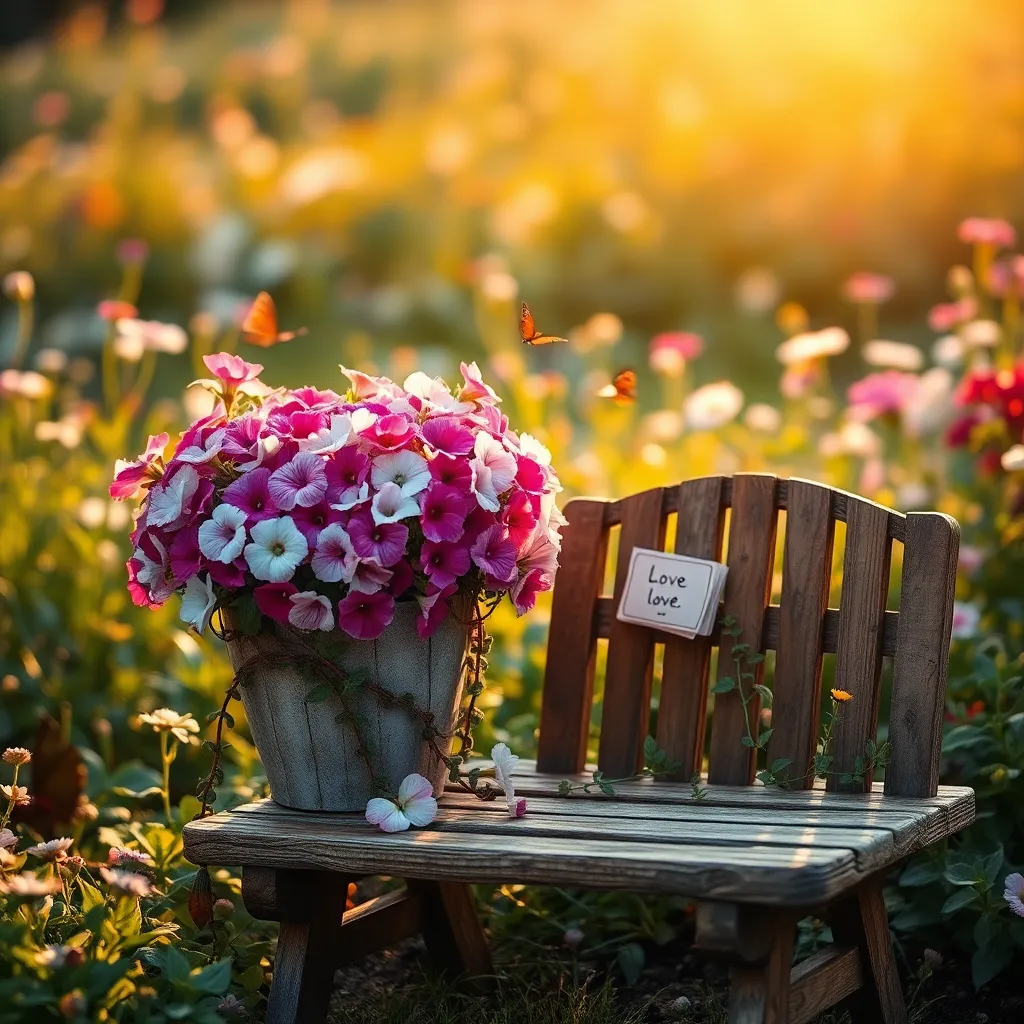
Creating a garden that inspires love and connection can be as simple as choosing the right plants and arranging them thoughtfully. Consider planting roses, the classic symbol of love, in a sunny spot with well-draining soil enriched with organic matter.
Adding fragrant plants like lavender can enhance the romantic ambiance of your garden. To keep lavender thriving, plant it in sandy soil and water it sparingly, allowing the top inch of soil to dry out between waterings.
For a more advanced touch, try incorporating a climbing plant such as wisteria to create a natural arbor or trellis. Provide strong support and ensure it’s planted in fertile, moist soil that drains well, pruning it twice a year to maintain its shape and encourage blooms.
Including a mix of perennials and annuals can ensure your garden remains vibrant through the seasons. Use mulch around your plants to retain moisture and suppress weeds, which will keep maintenance low and focus high on enjoyment.
Quotes for Heartfelt Conversations
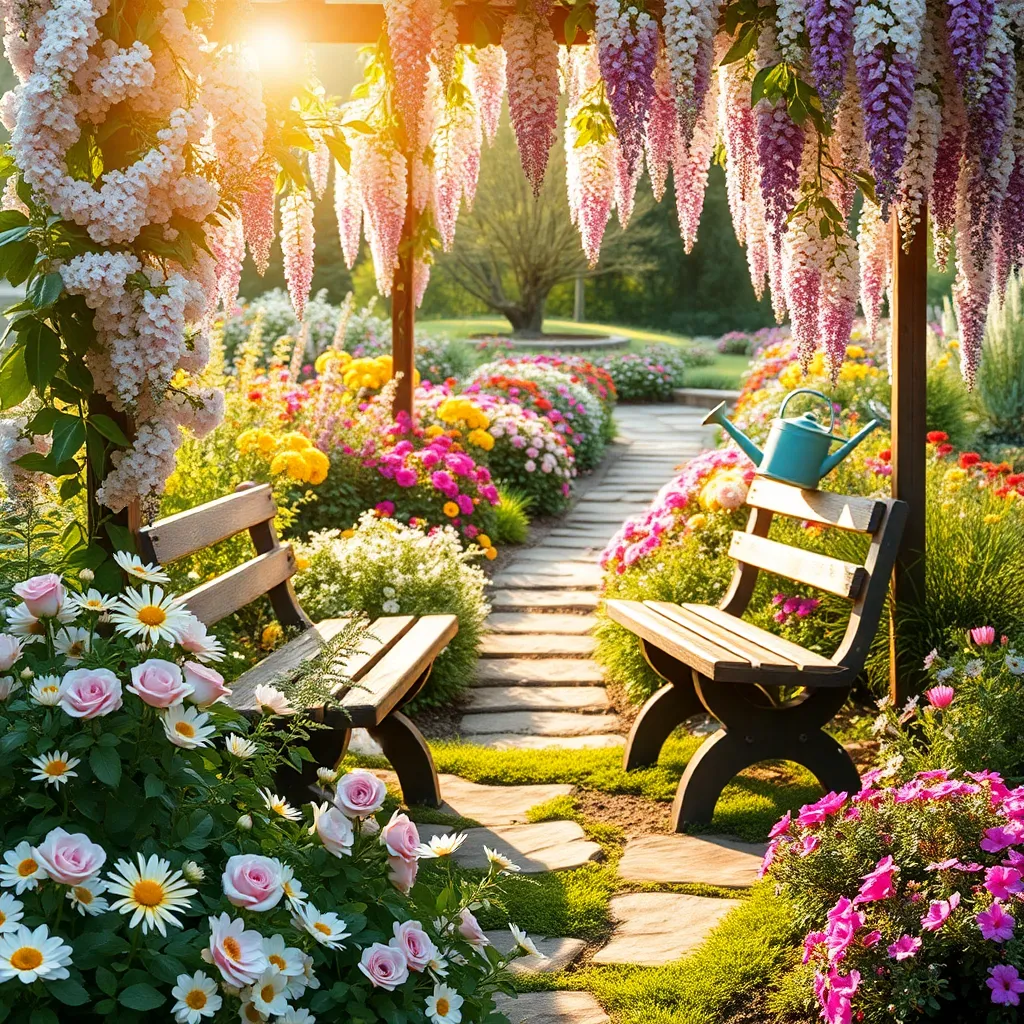
When cultivating a garden, it’s essential to nurture both plants and conversations. To foster a heartfelt connection with your garden, begin by ensuring your plants are in the right environment. For example, most houseplants thrive in well-draining soil, which prevents root rot and allows for healthy growth. Make sure you use a potting mix tailored to your plant’s specific needs, such as a cactus mix for succulents or a peat-based mix for tropical plants.
Consider the light requirements of your plants, as this is crucial for their survival and flourishing. While some plants like succulents require bright, direct sunlight, others, such as ferns, prefer indirect light or shade. If you’re unsure of your plant’s needs, place it in a spot with filtered light and observe how it responds. Adjust its location gradually to find the perfect balance.
Watering practices can also lead to meaningful interactions with your plants. For beginners, it’s important to check the soil moisture before watering to prevent over- or under-watering. Insert your finger an inch into the soil; if it feels dry, it’s time to water. More advanced gardeners can explore the benefits of self-watering pots or drip irrigation systems to maintain consistent moisture levels.
Lastly, don’t underestimate the power of regular maintenance and pruning. Removing dead leaves and stems not only keeps your plants healthy but also encourages new growth. For flowering plants, deadheading spent blooms can promote more blooms throughout the season. These simple acts of care can turn gardening into a meditative practice, enriching both your garden and your soul.
Encouraging Daily Affirmations
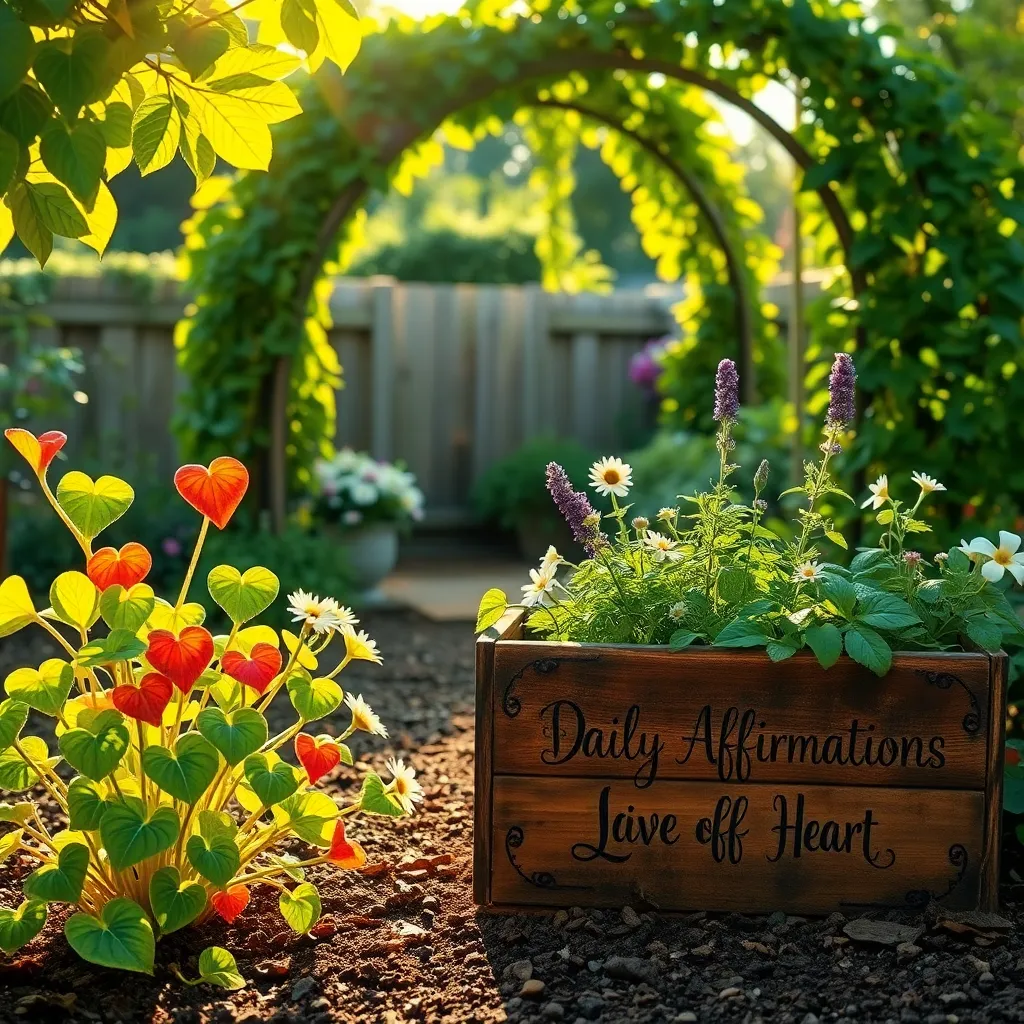
Incorporating daily affirmations into your gardening routine can foster positivity and growth, much like nurturing your plants. Start each day by observing your garden, acknowledging the progress, and setting intentions for your gardening efforts.
Begin with a simple morning ritual of checking soil moisture levels to ensure your plants are not over or under-watered. Consistent monitoring helps you understand your plants’ hydration needs and promotes healthier growth.
Use this time to inspect leaves for any signs of pests or diseases, which can be handled promptly with natural remedies. For example, a mild soap and water solution can be an effective treatment for aphids on roses without harming the plants.
Advanced gardeners might focus on soil health by regularly checking pH levels, which can significantly affect plant nutrient uptake. Amending soil with organic matter like compost can improve structure and fertility, supporting robust plant development.
Quotes that Celebrate Love
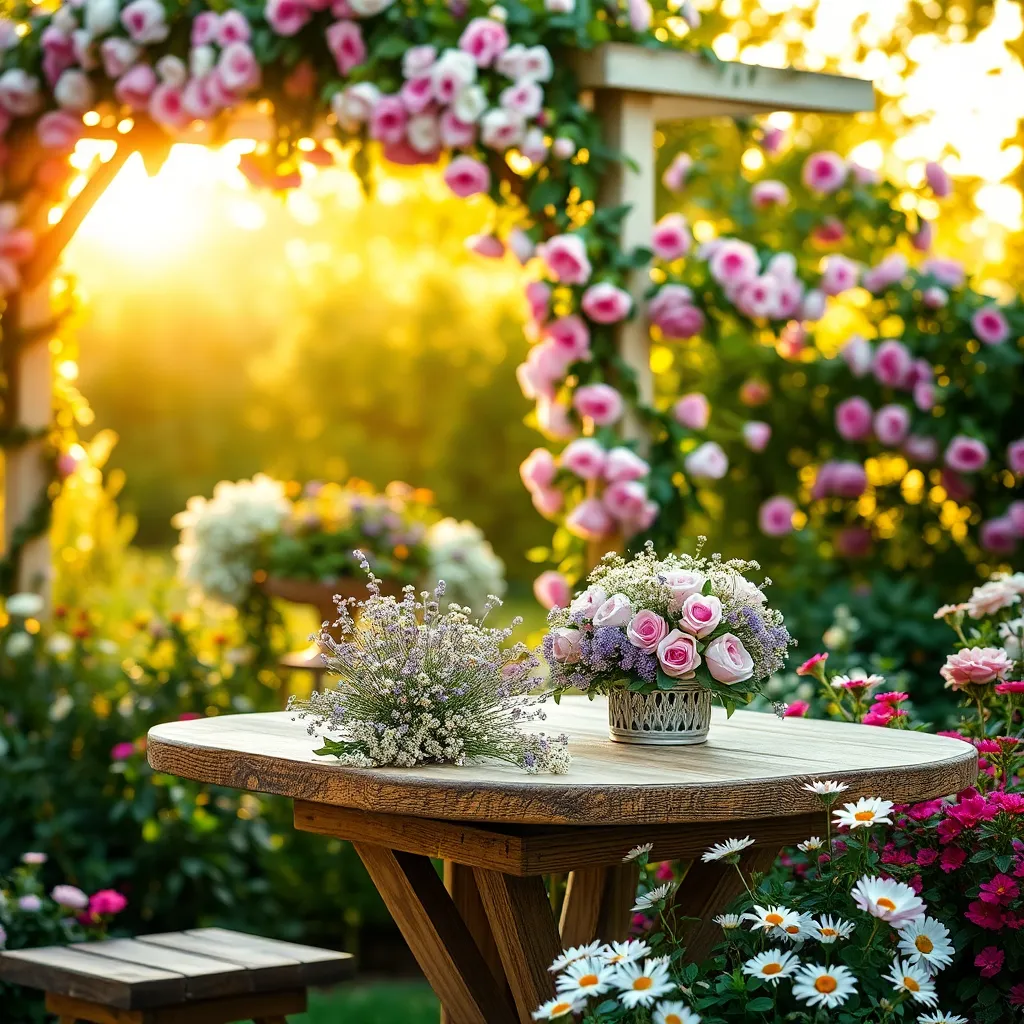
Gardening can be a beautiful metaphor for love, as both require attention and nurturing to flourish. Just like plants need specific conditions to thrive, relationships benefit from understanding and care.
Begin by selecting the right plant for your garden, much like choosing a partner who complements your lifestyle. Roses, often symbolizing love, prefer well-drained soil and at least six hours of sunlight daily. When planting roses, ensure the hole is deep enough to cover the roots entirely, promoting a healthy start.
Watering is crucial for both plants and relationships; too much or too little can be detrimental. For most flowering plants, aim for consistent moisture, but allow the top inch of soil to dry out between waterings to prevent root rot.
Advanced gardeners know that pruning is not just about removing dead parts, but also encouraging new growth. Regularly deadhead your flowers to encourage blooming and maintain plant health. Use sharp, clean tools to make cuts at a 45-degree angle, about 1/4 inch above a healthy leaf node.
Making Every Day Special
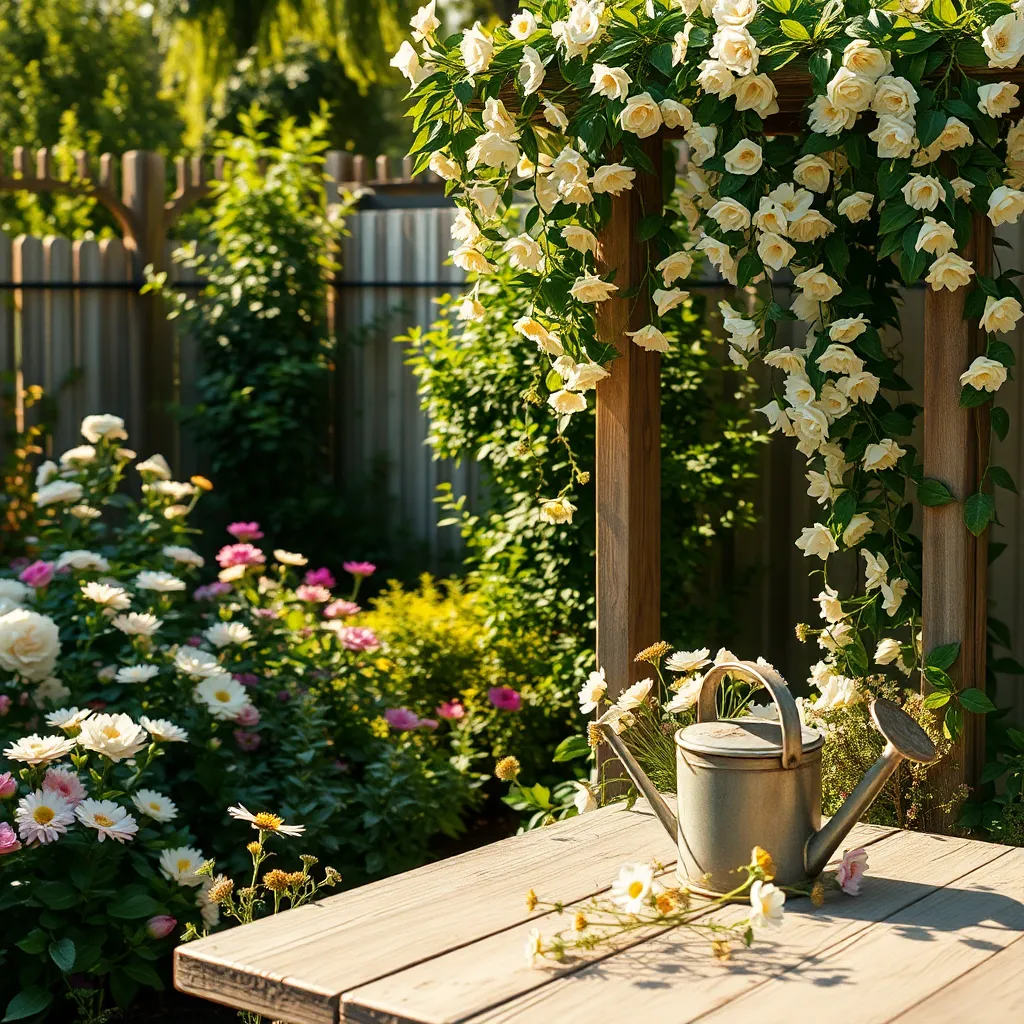
Creating a beautiful garden can make each day feel special. Start by choosing plants that thrive in your local climate to reduce maintenance and enhance growth.
Consider planting a mix of perennials and annuals to ensure your garden offers visual interest throughout the year. For beginners, start with hardy perennials like daylilies or hostas, which are easy to care for and provide lasting beauty.
Soil preparation is crucial for plant health, so invest time in enriching your soil with organic matter like compost or well-rotted manure. This will improve drainage and nutrient availability, creating a robust environment for your plants.
Watering techniques can make a significant difference in plant health. Water deeply and infrequently to encourage roots to grow deeper, making plants more drought-resistant and resilient.
For those ready to delve into advanced gardening, consider companion planting to boost plant health and deter pests naturally. Pairing basil with tomatoes, for example, can enhance flavor and reduce the risk of disease.
Lastly, make the most of vertical space by integrating trellises or hanging baskets into your garden layout. This not only maximizes space but also adds dimension, making your garden a picturesque retreat.
Quotes for Romantic Gestures
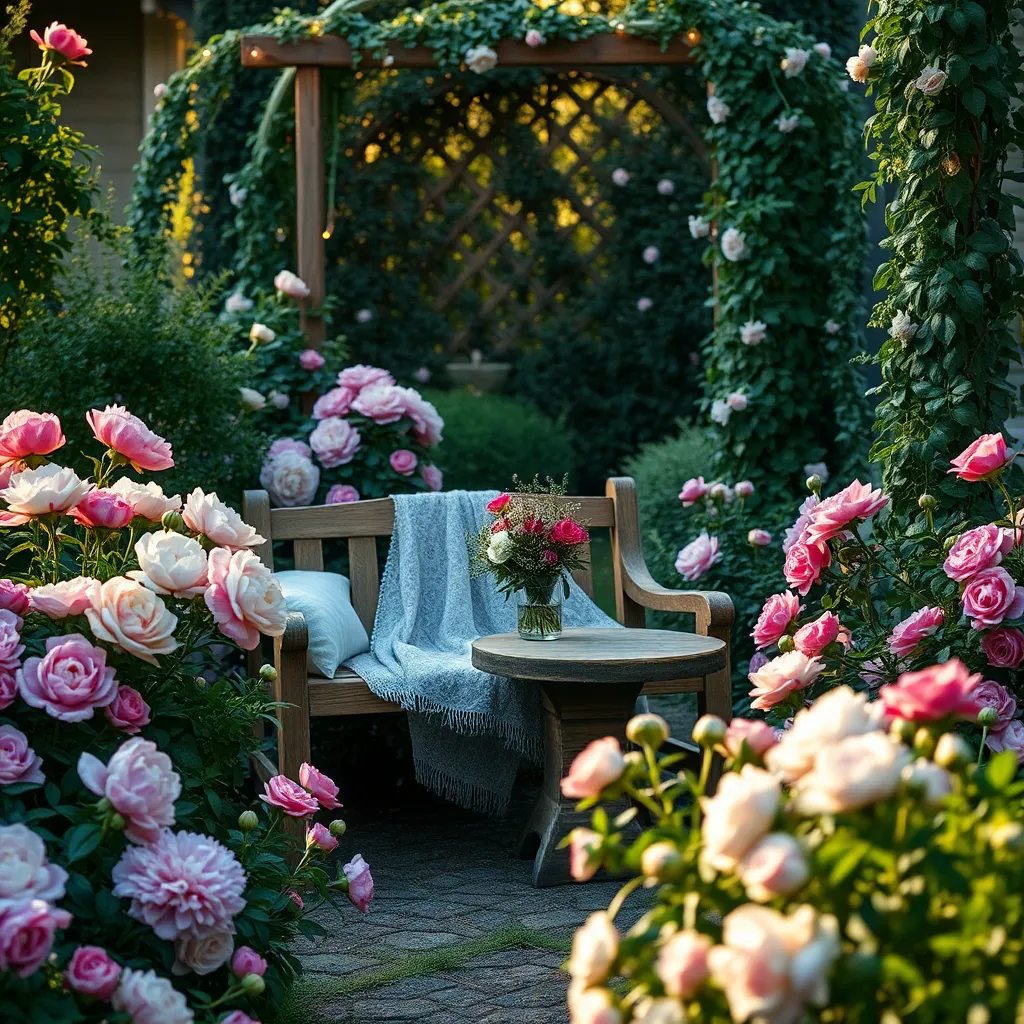
Creating a romantic gesture in your garden can be as simple as planting a bed of roses, which symbolize love and beauty. To ensure your roses thrive, plant them in a location that receives at least six hours of sunlight each day and use well-draining soil enriched with organic matter.
Consider adding a trellis with climbing plants like jasmine or clematis to create a fragrant pathway. These plants not only offer a romantic setting but also require moderate watering and support to climb, making them a delightful addition for both beginners and experienced gardeners.
Another enchanting option is to plant evening primrose, which blooms at dusk and can add a magical touch to any romantic evening. Ensure these flowers are planted in sandy, well-drained soil and water them regularly, particularly during dry spells, to encourage their stunning blooms.
For a more advanced touch, incorporate a water feature surrounded by shade-loving plants like hostas and ferns. These plants thrive in moist, shaded areas and can transform your garden into a serene, romantic retreat with minimal effort.
Sharing Love Through Humor
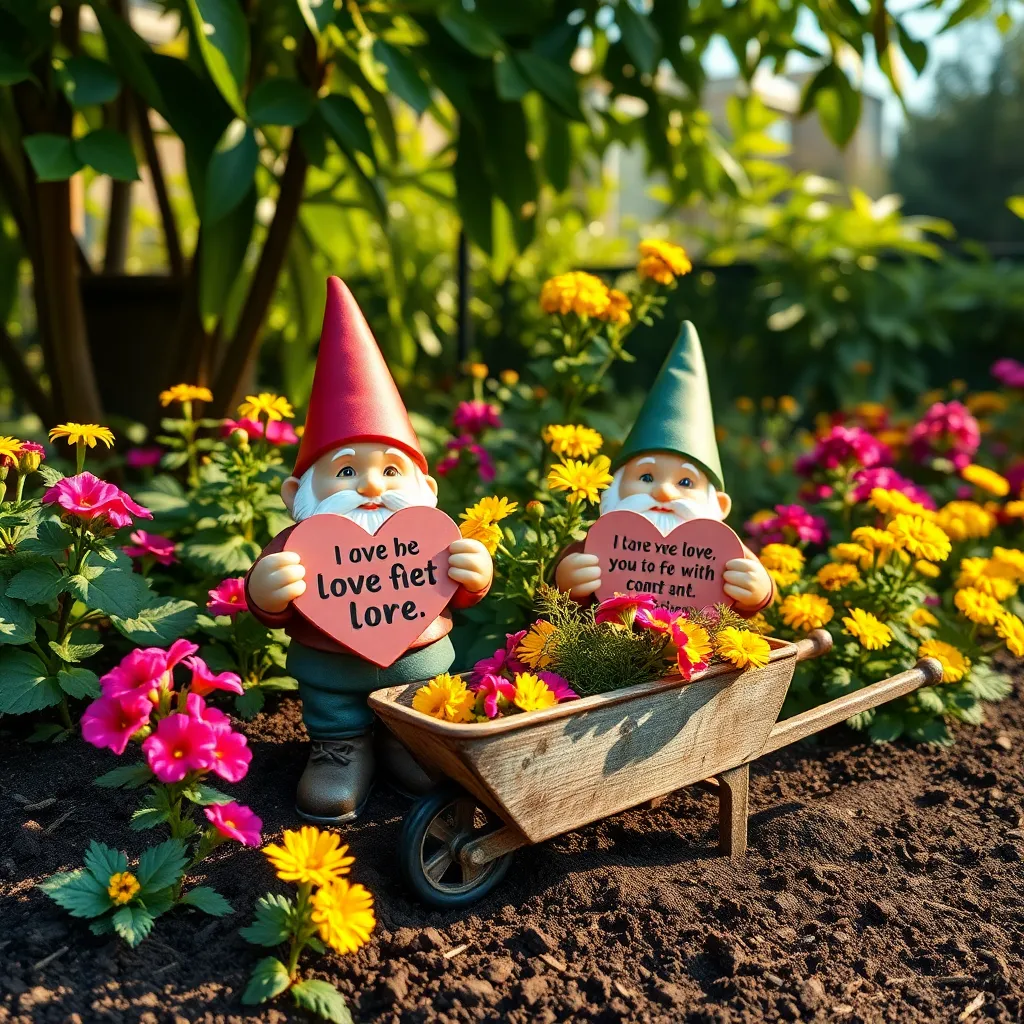
Humor can be a wonderful way to share love, and it can also be a delightful addition to your gardening routine. When planting seeds, think of them as little jokes waiting to sprout; they need the right conditions to grow, just like a good punchline needs the right timing.
For beginners, start with plants that are known for their resilience and forgiving nature, like marigolds or sunflowers. These plants thrive in well-drained soil and can handle a bit of neglect, making them perfect for those still finding their green thumb.
Experienced gardeners might enjoy the challenge of growing a quirky plant, such as the “sensitive plant” (Mimosa pudica), which folds its leaves when touched. This fascinating behavior is both a conversation starter and a reminder that plants have their own quirky ways of communicating.
To keep your garden thriving, remember that humor and love both require patience and care. Water your plants consistently, ensuring that the soil is moist but not soggy, and provide plenty of sunlight, which is essential for photosynthesis.
Choosing Quotes for Milestones
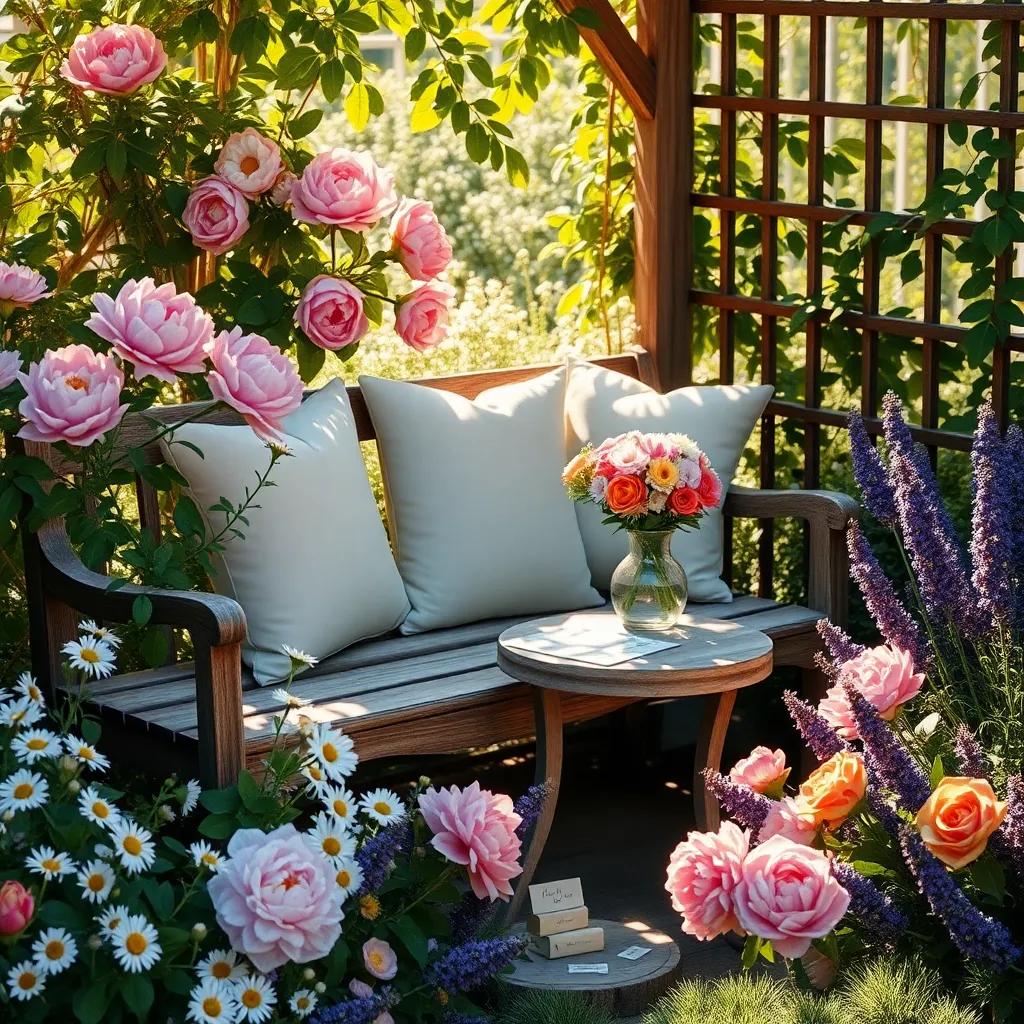
Choosing the right quotes for milestones in your gardening journey can be as rewarding as nurturing a delicate seedling to full bloom. Just like observing the growth stages of your plants, recognizing personal milestones in gardening can boost your confidence and enthusiasm.
Begin by identifying key moments in your gardening experience, such as planting your first seed or harvesting your first crop. These moments are akin to the early stages of plant care, where patience and regular attention are crucial.
For beginners, focusing on the basics is essential. Consider incorporating quotes that emphasize the importance of consistency in watering and understanding your soil type, much like how a solid foundation is crucial for plant growth.
Experienced gardeners might appreciate quotes that resonate with advanced techniques, such as grafting or companion planting. These methods require a deeper understanding of plant compatibility and soil health, much like choosing quotes that reflect the complexity and beauty of mature gardens.
Incorporating quotes that celebrate successes, like a bountiful harvest or a disease-free growing season, can be particularly motivating. These milestones are reminders of the dedication and skill involved in maintaining garden health through proper pest management and nutrient balance.
As you reflect on your gardening milestones, remember that each phase, from seed to harvest, offers opportunities for learning and growth. Much like selecting the perfect quote, gardening requires a thoughtful approach, ensuring that each plant thrives in its unique environment.
Quotes for Playful Moments
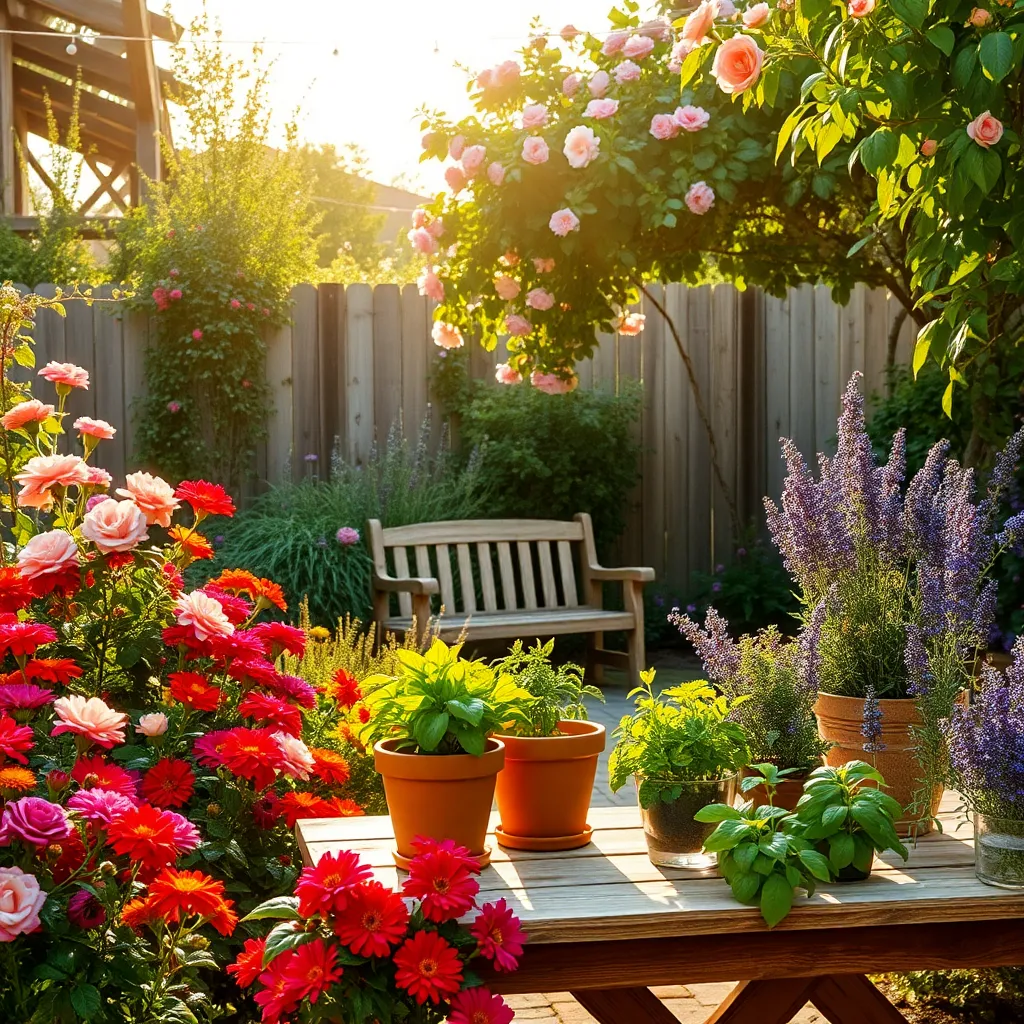
Gardening invites playfulness and creativity, offering endless opportunities to experiment. Incorporating playful moments into your garden routine can lead to delightful discoveries about your plants and yourself.
One way to add a touch of whimsy is by creating a mini fairy garden. These enchanting displays can be crafted using small plants like thyme or moss, which thrive in well-draining soil and require minimal water.
Another playful gardening activity is growing a sunflower house. Plant sunflower seeds in a large circle, leaving an opening for a door, and watch as they grow into a magical hideaway for children and adults alike.
For those looking to explore creative planting methods, try making a vertical garden using old pallets. Ensure the pallets are securely mounted and filled with a quality potting mix, then plant herbs like basil and mint, which will thrive with regular watering and partial sunlight.
Discussing Quotes with Partners
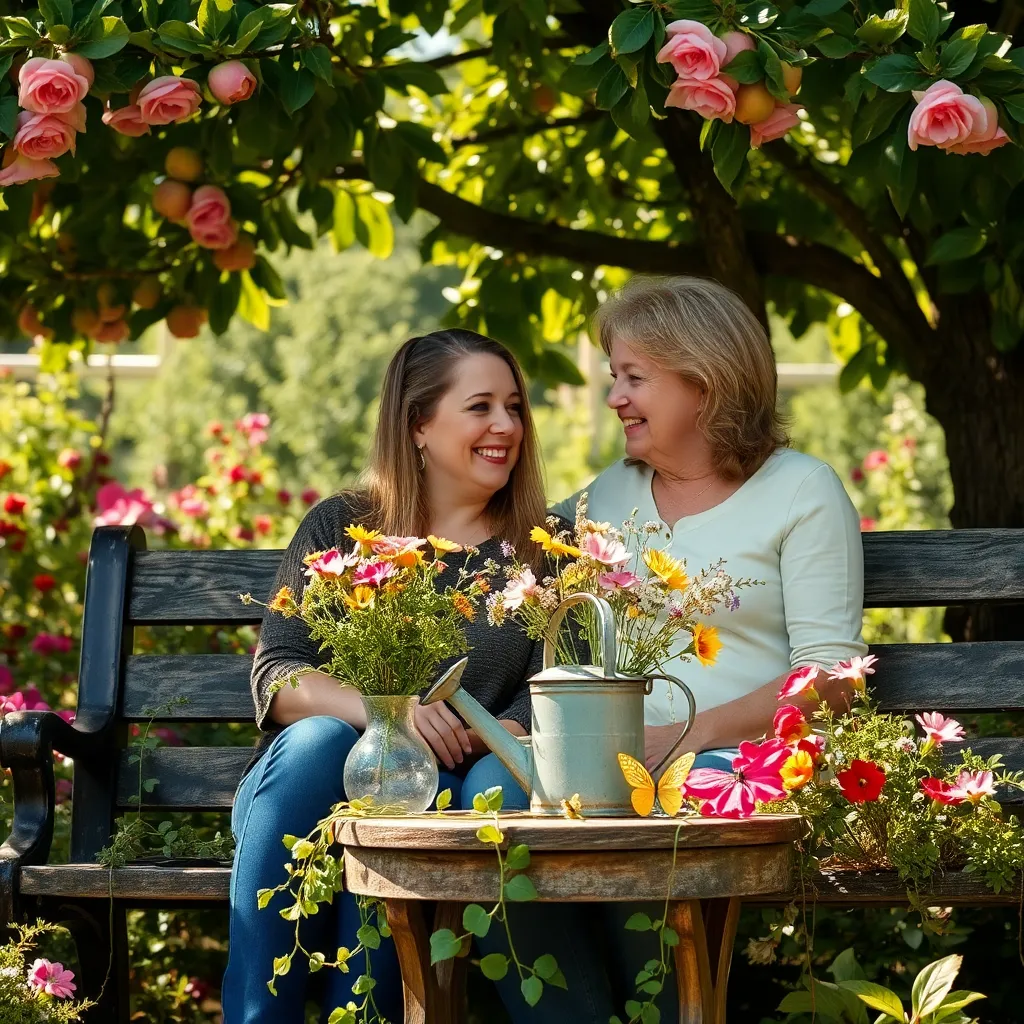
Discussing quotes with your partner while gardening can be a delightful way to bond over a shared hobby. You might find that comparing your favorite quotes to the characteristics of your plants can spark interesting conversations and deepen your appreciation for both words and nature.
Consider starting your gardening discussion with a simple task like watering your plants. For beginners, it’s important to remember that most plants prefer to be watered deeply but less frequently, allowing the soil to dry out slightly between watering sessions.
While tending to your garden, try experimenting with different soil types to see which best supports your plants. For instance, herbs like thyme and rosemary thrive in well-draining, sandy soil, while vegetables such as tomatoes benefit from nutrient-rich, loamy soil.
Advanced gardeners can explore companion planting, a technique that pairs plants that can support each other’s growth. An example is planting basil near tomatoes, as basil can help repel pests and improve the flavor of your tomatoes.
Quotes for Deepening Connection
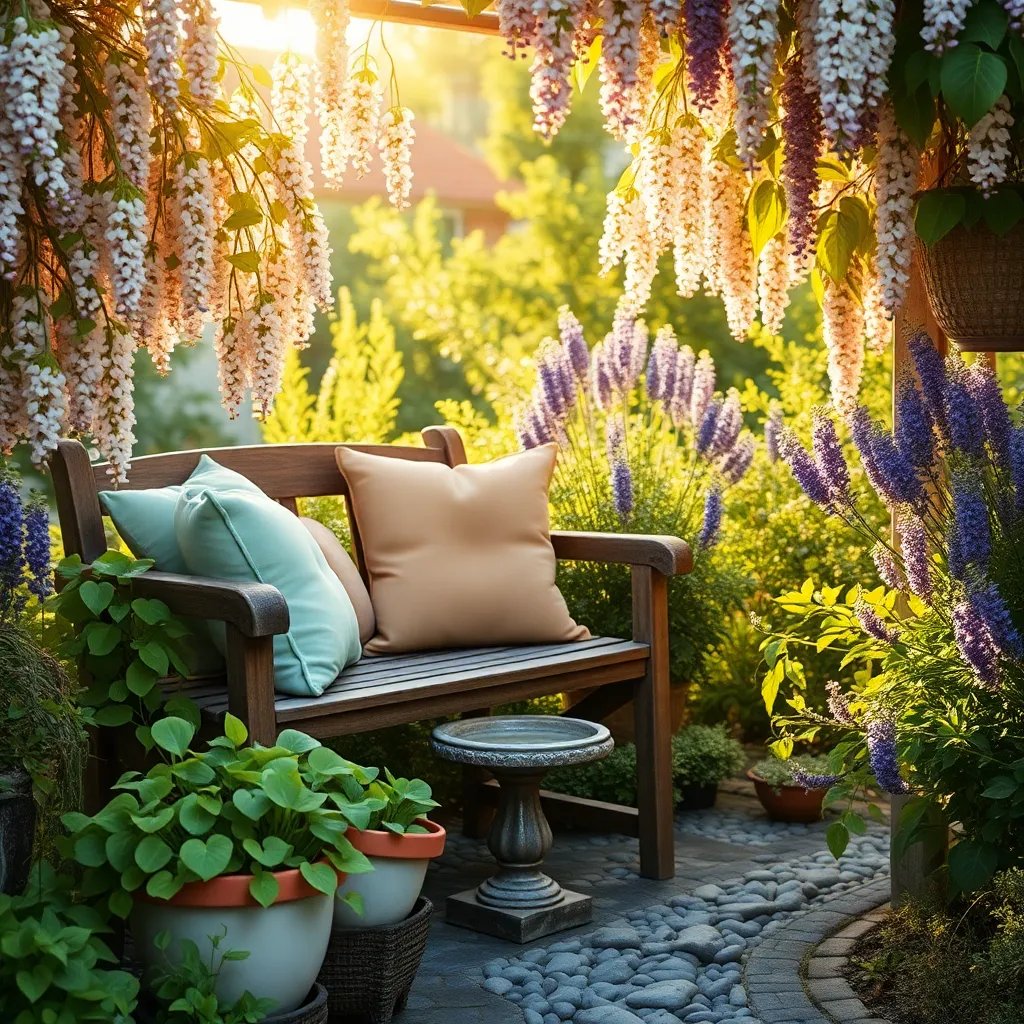
Deepening your connection with your garden begins with understanding the unique needs of each plant. To foster a thriving environment, consider the specific soil type and sunlight requirements for each species you grow.
It’s essential to monitor your garden’s moisture levels, as overwatering is a common mistake. A practical way to check if your plants need water is by sticking your finger about an inch into the soil; if it feels dry, it’s time to water.
For beginners, starting with hardy plants like marigolds or zinnias can build confidence. These plants thrive in well-drained soil and full sun, requiring minimal care while adding vibrant color to your garden.
Advanced gardeners might explore companion planting to enhance growth and pest resistance. Pairing plants like tomatoes and basil not only improves flavor but also deters pests naturally, creating a harmonious garden ecosystem.
Quotes for Relationship Growth
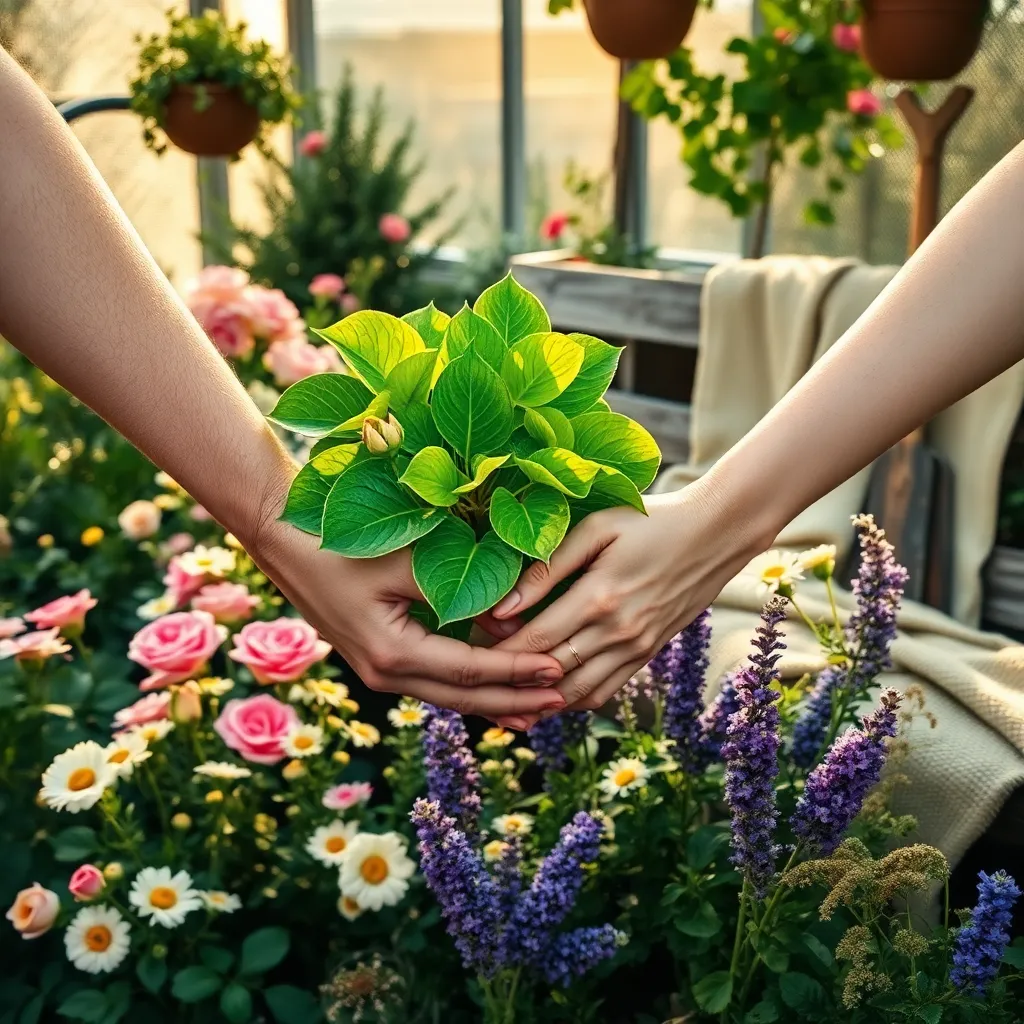
Just like nurturing a relationship, growing a plant requires attention and care. Start with choosing the right soil; a well-draining potting mix is ideal for most houseplants, ensuring they don’t sit in water.
To foster growth, water your plants consistently but avoid overwatering. A good rule of thumb is to check the top inch of soil; if it feels dry, it’s time to water, ensuring the water reaches the roots.
Providing the right amount of sunlight is crucial for healthy growth. Most plants thrive in bright, indirect light, but always check specific needs, as some plants like succulents prefer more direct sunlight.
For advanced gardeners, consider experimenting with companion planting to enhance growth. Pairing plants like tomatoes with basil not only saves space but can also improve flavor and deter pests.
Balancing Seriousness and Fun
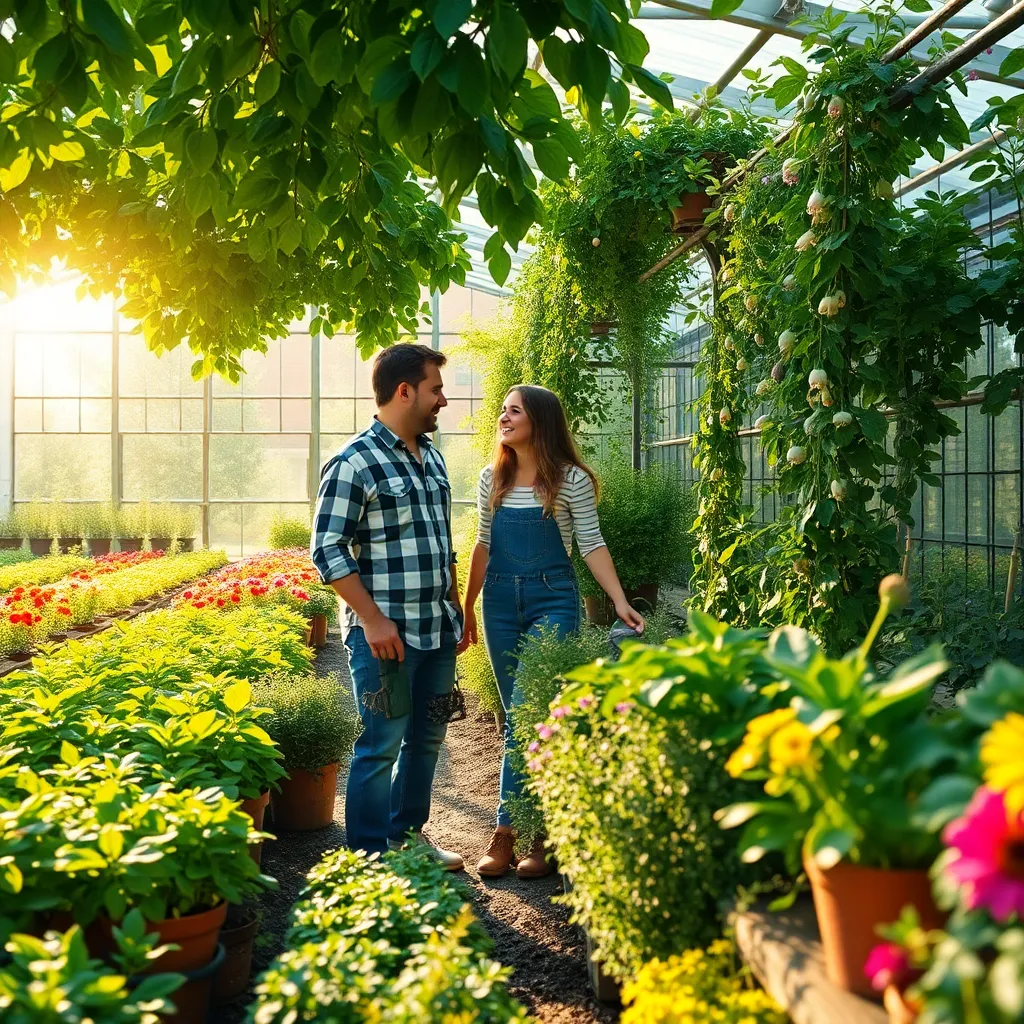
In the garden, balancing seriousness with fun can transform your outdoor space into a sanctuary. Start by choosing a mix of plants that require different levels of care; this keeps things interesting while ensuring some plants thrive even if others don’t.
To keep your gardening journey joyful, integrate playful elements like colorful garden stakes or whimsical plant markers. These not only add personality but can also help you track plant types and care needs with ease.
For those looking to dive deeper, consider experimenting with soil amendments to improve plant health. Adding compost or well-aged manure can enhance soil structure, making it easier for roots to grow and for you to enjoy the tangible results of your labor.
Remember to water wisely, as overwatering is a common pitfall for beginners. Set a schedule to ensure consistent moisture levels, but adjust based on weather conditions; for example, water less frequently during rainy periods.
Quotes for Wedding Vows
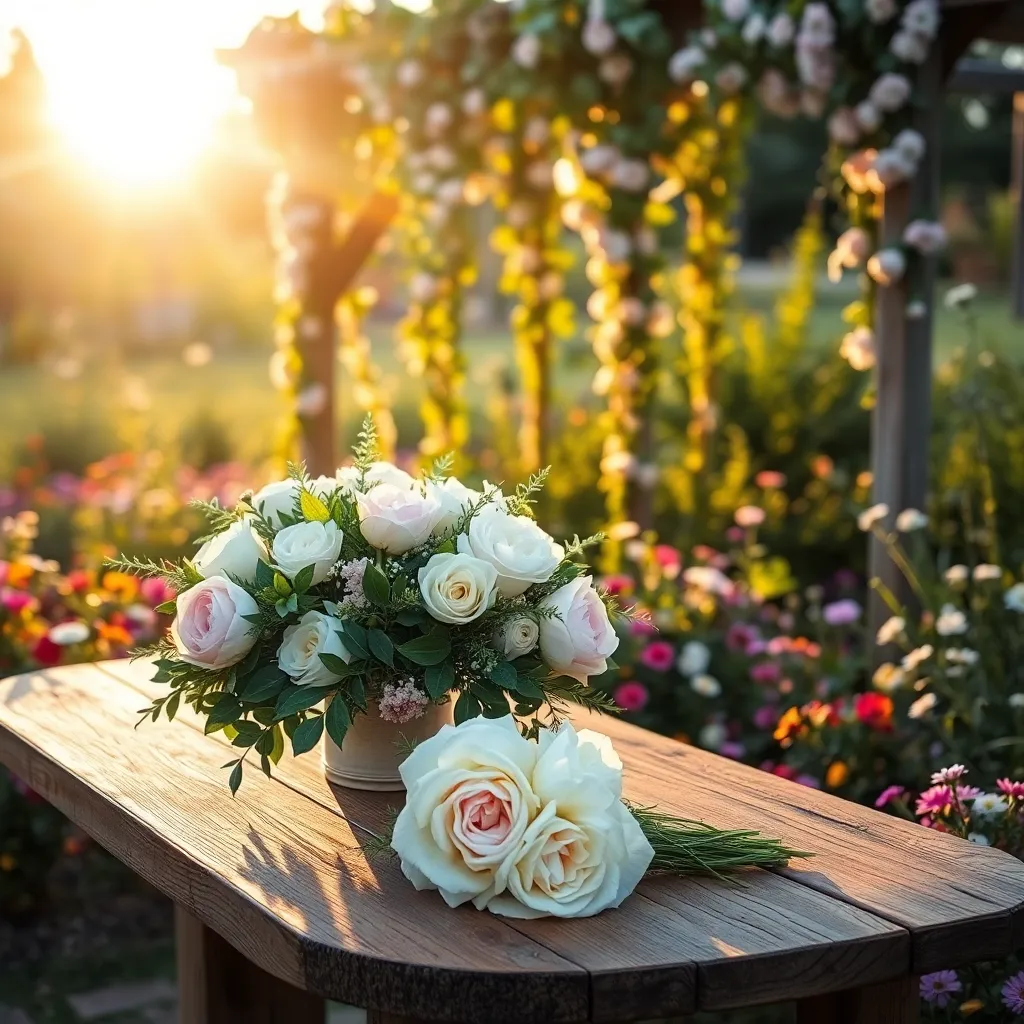
When using quotes for wedding vows, think of your garden as a metaphor for love. Just like nurturing a plant, relationships require dedication, patience, and understanding.
Consider the seasonal changes in your garden as you select vows that reflect growth and resilience. These changes remind us that love, much like a well-tended garden, flourishes with care and attention.
For beginners, the basics of plant care can often parallel the fundamentals of a strong relationship. Start by choosing easy-to-grow plants like marigolds or sunflowers, which require full sun and well-drained soil to thrive.
More experienced gardeners might compare their journey to cultivating a more challenging plant, such as orchids. This process requires consistent humidity and indirect light, teaching patience and adaptability.
Remember to water your plants according to their specific needs to avoid overwatering, which can lead to root rot. Just as in relationships, understanding each plant’s unique requirements is crucial for healthy growth.
Advanced gardeners might experiment with companion planting, which can enhance growth and deter pests naturally. This technique, much like mutual support in a partnership, shows how different elements can work together harmoniously for the best outcomes.
Incorporating Quotes in Proposals
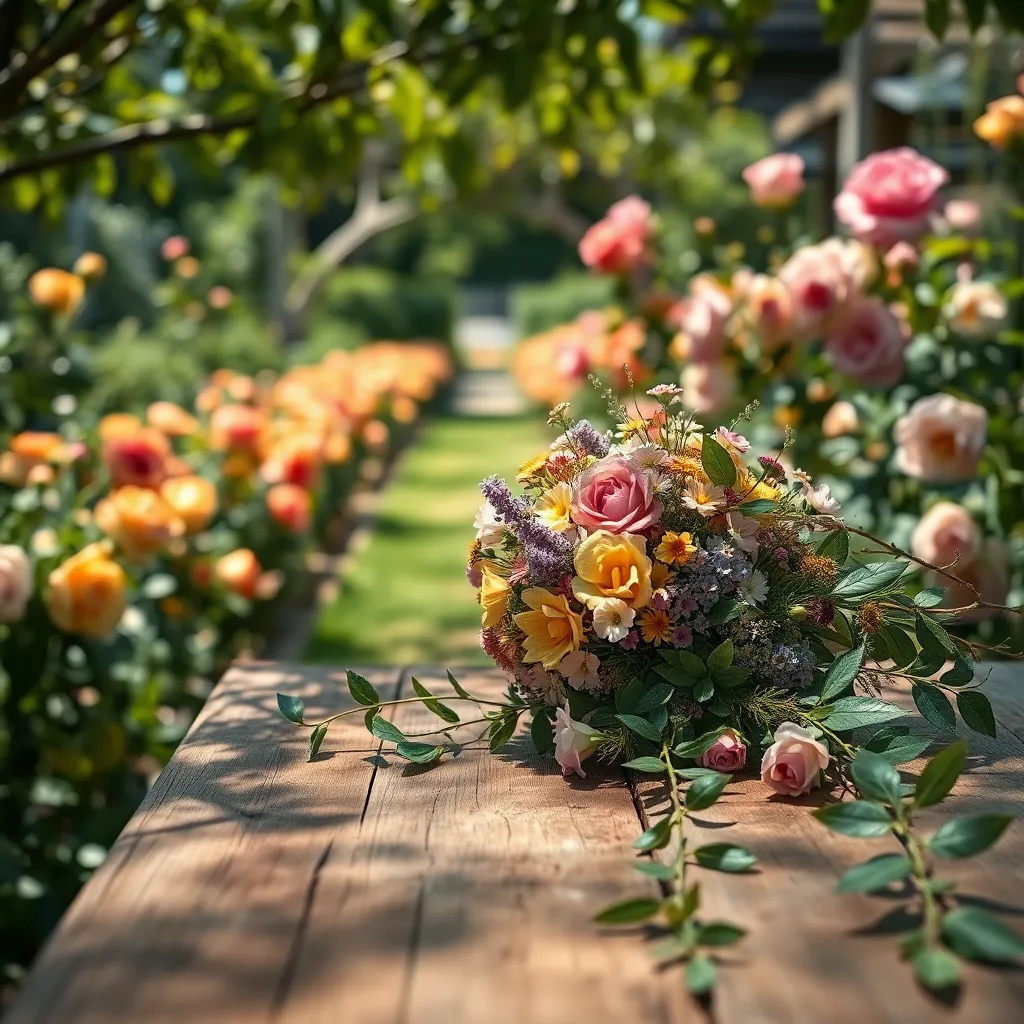
Incorporating quotes into proposals can be likened to planting the perfect flower in your garden. Just as you would choose the right spot with adequate sunlight for a rose, select quotes that resonate with the theme and emotions of your proposal.
Consider the timing and setting of your proposal in the same way you would plan the optimal planting season for your garden. For instance, a spring proposal might be enhanced by quotes that evoke new beginnings, much like the emergence of tulips and daffodils.
Think about how a well-chosen quote can enhance the overall presentation, much like how companion planting can enhance the health and appearance of your garden. For example, using a quote that speaks to enduring love can be as impactful as pairing marigolds with tomatoes to deter pests.
Similarly, ensure that your chosen quotes are authentic and personal, akin to selecting plant varieties that thrive in your specific climate. Just as you would research soil types and watering needs for succulents versus ferns, spend time finding quotes that truly reflect your relationship.
Using Quotes to Apologize
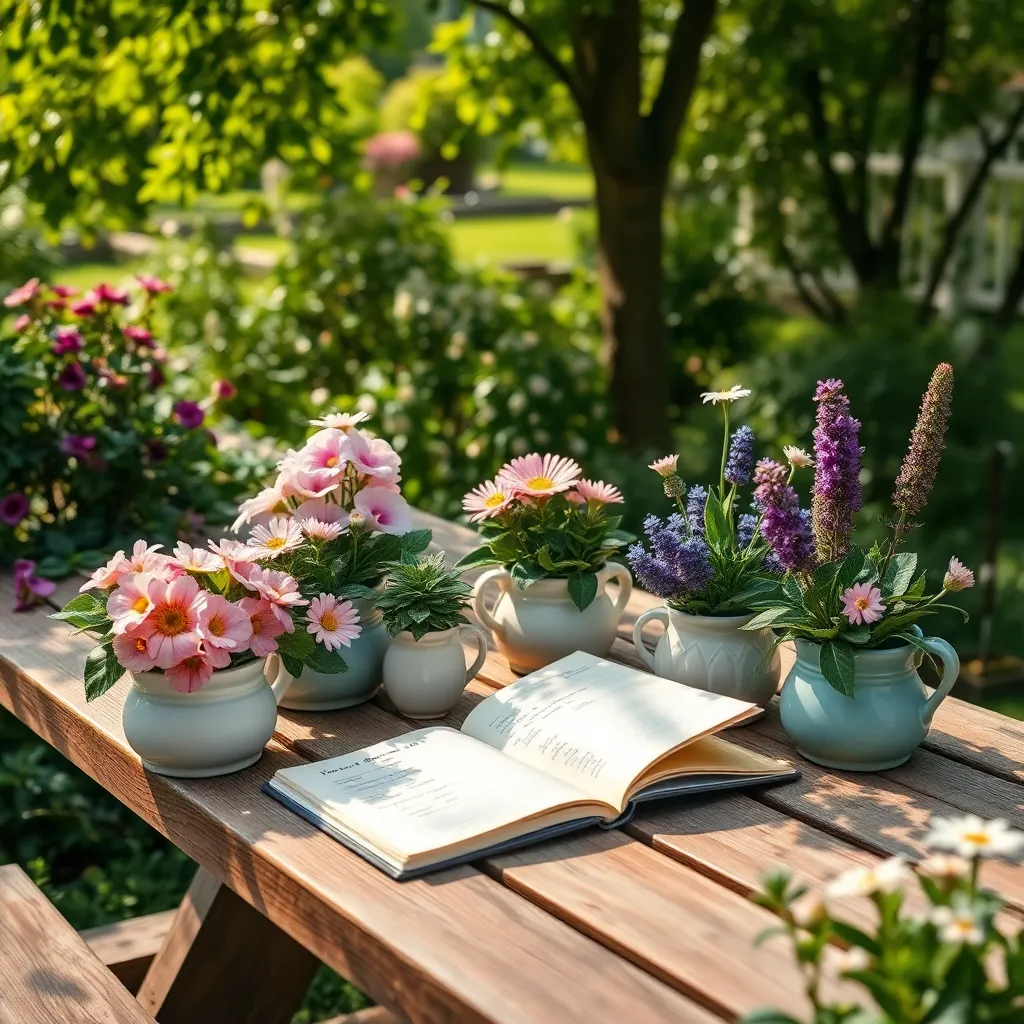
Apologizing to your plants for any neglect can be a humorous yet effective way to remind yourself to keep up with their care. Using quotes in your garden can serve as a gentle nudge to pay closer attention to the needs of your green companions.
Consider placing a small sign with a quote like, “I’m sorry for overwatering you,” near your potted plants. This can be a fun way to remind yourself that most plants thrive with a balanced watering routine, typically allowing the top inch of soil to dry out before watering again.
For gardeners who enjoy humor, using quotes about mistakes can lighten the mood when things don’t go as planned. An example could be, “Oops, I was too shady,” which can remind you to check if your sun-loving plants are getting enough light each day.
Quotes can also help reinforce positive habits, like fertilizing regularly. A reminder such as, “Sorry I forgot to feed you,” can encourage you to schedule routine feedings, typically every 4-6 weeks during the growing season, using a balanced, water-soluble fertilizer.
Using quotes creatively in your garden can make the care process more enjoyable and engaging. These lighthearted reminders help foster a nurturing environment for both you and your plants, enhancing your gardening skills over time.
Quotes for Forgiveness and Healing
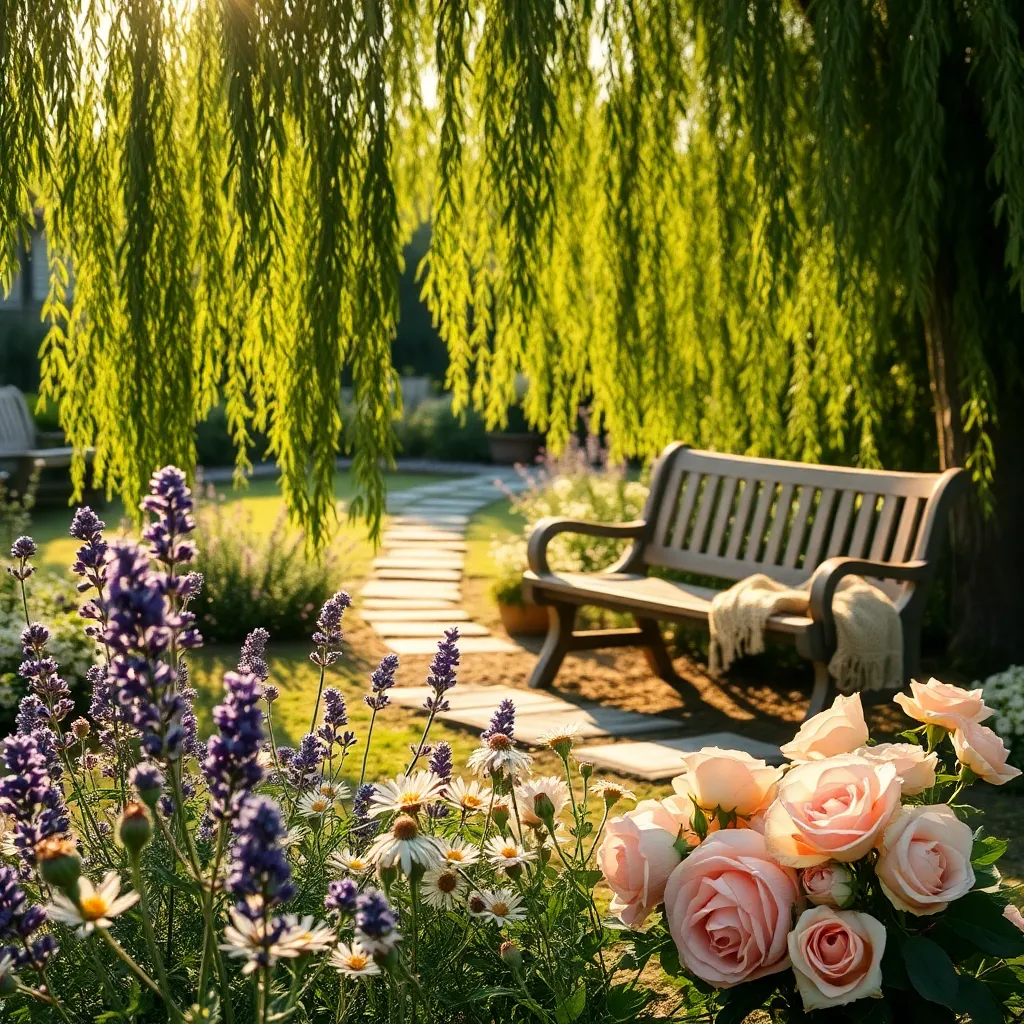
Forgiveness and healing in gardening often begin with understanding the balance of nature. When plants suffer from neglect or over-care, the first step is to diagnose the issue, which can often be seen in leaf discoloration or wilting. Assessing soil moisture and quality can reveal much about your plant’s needs. Ensure the soil is well-draining and not compacted, allowing roots to breathe and absorb nutrients effectively.
To heal a garden, start by trimming damaged leaves and stems, which helps the plant redirect energy to healthier growth. Regular pruning encourages new growth and prevents disease. Use clean, sharp tools to make precise cuts and reduce the risk of infection. For beginners, a basic pair of pruning shears is sufficient, while seasoned gardeners might invest in specialized tools for different plants.
Watering practices play a crucial role in a plant’s recovery process. Over-watering is a common mistake; instead, water deeply but less frequently to encourage roots to grow deeper. Check the top inch of soil for dryness before watering to avoid drowning the roots. Advanced gardeners may consider setting up drip irrigation systems to maintain consistent moisture levels.
Improving soil health can significantly enhance a plant’s ability to heal. Incorporate organic matter such as compost or well-rotted manure to enrich the soil and improve its structure. Test soil pH to ensure it matches the specific needs of the plants you’re cultivating. For those with more experience, rotating crops and adding cover crops like clover can further improve soil fertility and resilience.
Quotes for Rekindling Romance
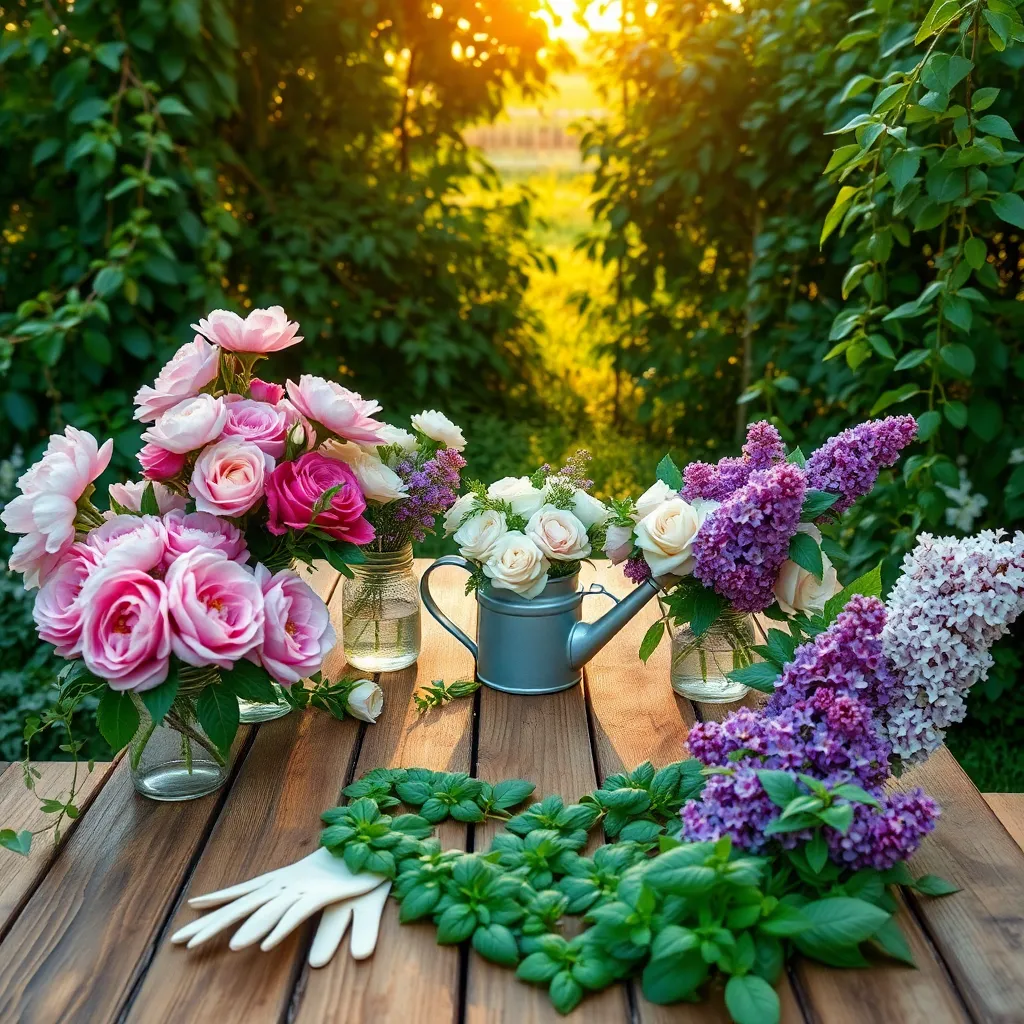
To rekindle romance in your garden, consider planting fragrant flowers like roses or jasmine. These blooms not only add a touch of beauty but also fill the air with an enchanting aroma that can create a romantic atmosphere.
Roses, often called the symbol of love, thrive in well-drained soil and require at least six hours of sunlight daily. Ensure to water them regularly, keeping the soil evenly moist but not waterlogged, which helps prevent root rot.
Jasmine, another romantic favorite, prefers a sunny spot and fertile, well-drained soil. For a lush display, prune after flowering to encourage new growth and increase your plant’s flowering potential.
If you’re looking for a low-maintenance option, lavender is an excellent choice with its soothing scent and attractive purple flowers. Plant lavender in a spot with full sunlight and ensure the soil is sandy or gravelly to mimic its natural Mediterranean habitat.
Understanding Quote Context
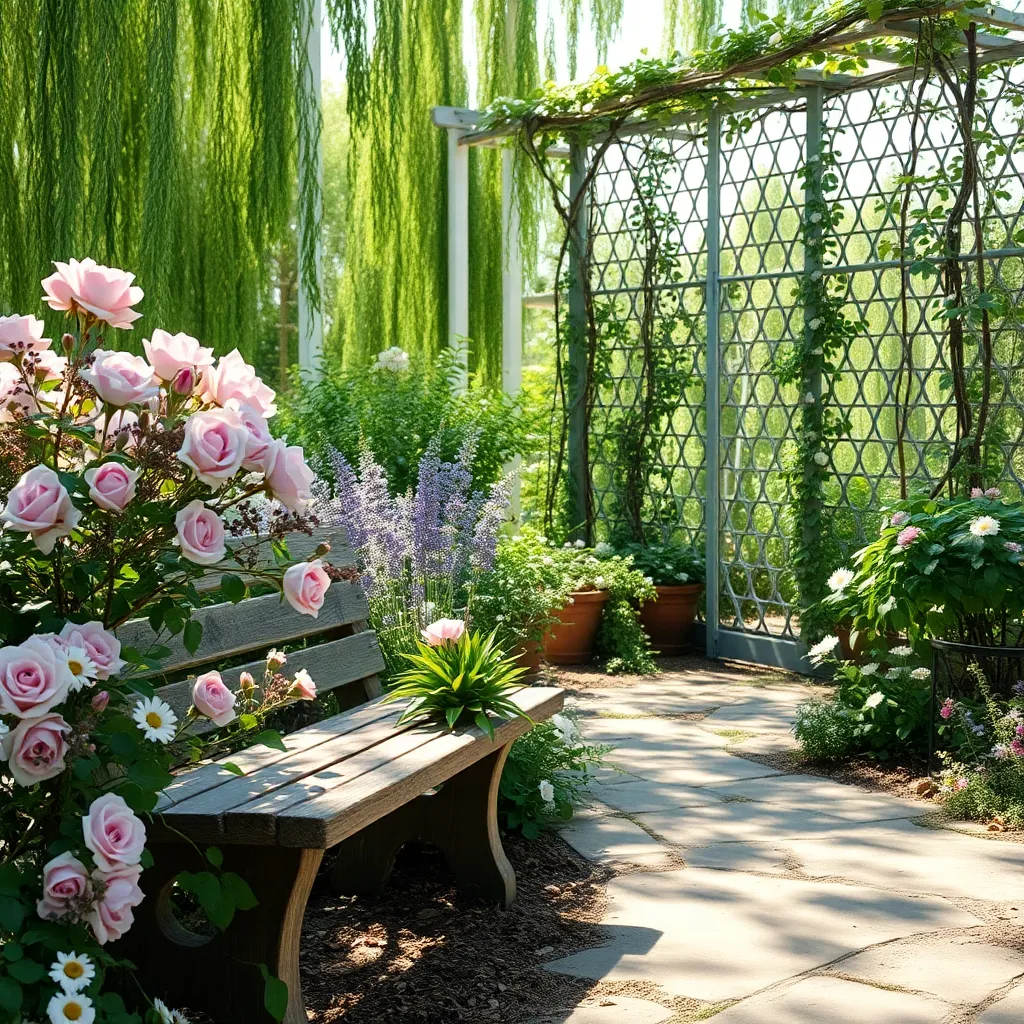
Understanding the context in which plants thrive is crucial for successful gardening. Knowing the specific needs of your plants ensures they grow healthy and robust, just like understanding the nuances of a quote can deepen its meaning. Begin by assessing the light requirements of your plants; some thrive in full sun, while others prefer the gentle shade. For instance, herbs like basil and rosemary often perform best with at least six hours of sunlight daily.
Soil quality is another context that affects plant health, similar to how background influences the impact of a quote. Ensure your soil is well-draining by incorporating organic matter like compost or peat moss, which improves texture and nutrient content. Regularly test the pH level of the soil to match the needs of your plants; most prefer a pH between 6 and 7.5. Adjust soil acidity with lime to raise pH or sulfur to lower it, ensuring optimal growth conditions.
Watering practices should also be tailored to the plant’s context, much like choosing the right moment to share a quote. Avoid overwatering by checking soil moisture with your fingers; the top inch should be dry before the next watering. Consider the specific water needs of different plants—cacti require less frequent watering, whereas vegetables like tomatoes benefit from a consistent schedule. Using mulch can help retain moisture and reduce the frequency of watering, especially during hot months.
Consider the environmental conditions and seasonal changes, which, like the timing of a quote, can affect plant performance. Pay attention to temperature fluctuations and protect sensitive plants with frost covers or shade cloth as needed. Adapting your gardening practices to the seasons can prevent plant stress and promote better growth. For advanced gardeners, experimenting with companion planting can enhance plant health and deter pests naturally.
Avoiding Overused Quotes
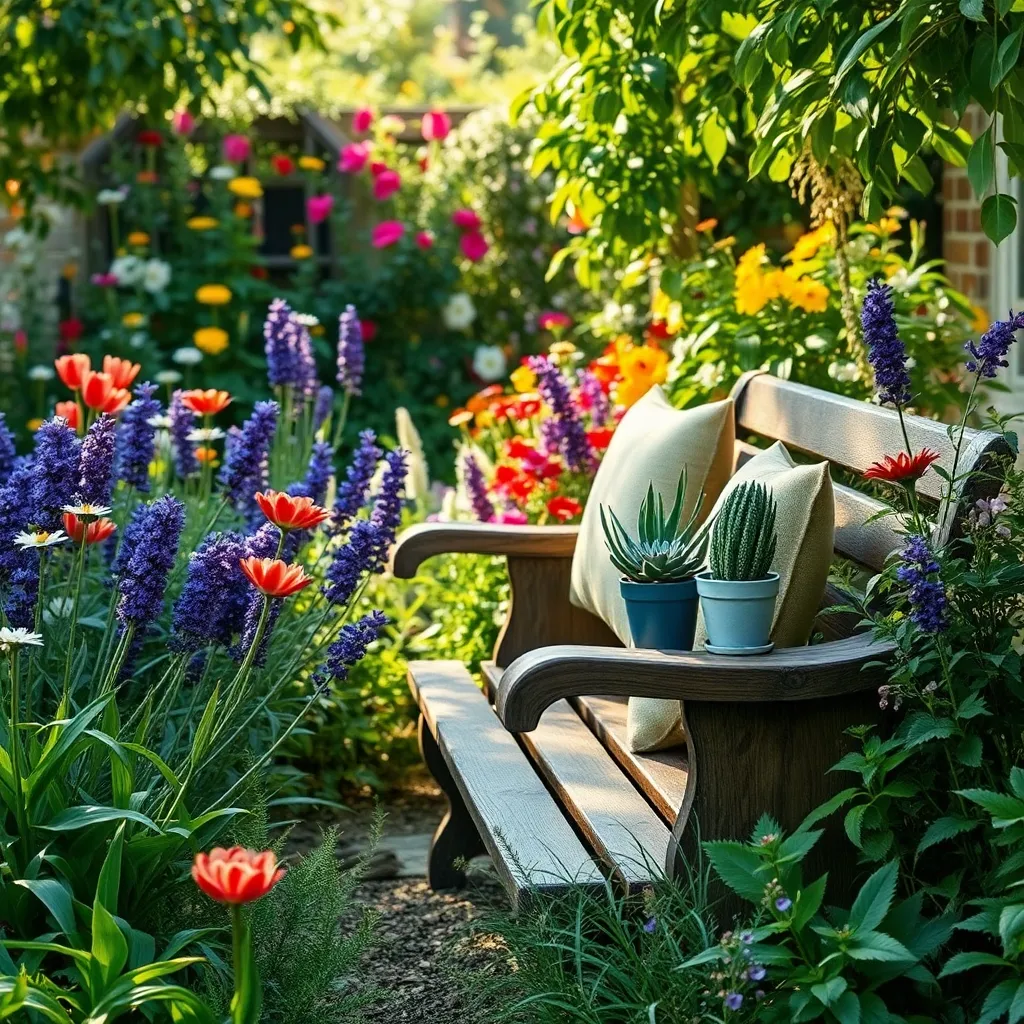
In the world of gardening, just like in crafting quotes, it’s important to bring a fresh perspective and avoid clichés. While common sayings like “April showers bring May flowers” are lovely, they don’t provide the guidance needed to nurture a thriving garden.
Instead of relying on overused advice, focus on understanding the specific needs of your plants. For instance, many gardeners underestimate the importance of soil quality, yet it is the foundation for healthy plant growth.
Start by testing your soil’s pH to determine whether it’s acidic, neutral, or alkaline, and adjust accordingly with organic matter or specific amendments. For beginners, using a simple home soil test kit can provide valuable insights into what your garden needs.
Incorporate advanced techniques like companion planting to naturally enhance plant health and pest resistance. Pairing herbs like basil with tomatoes, for example, can improve flavor and deter harmful insects, creating a more vigorous and productive garden.
Personalizing Cheesy Quotes
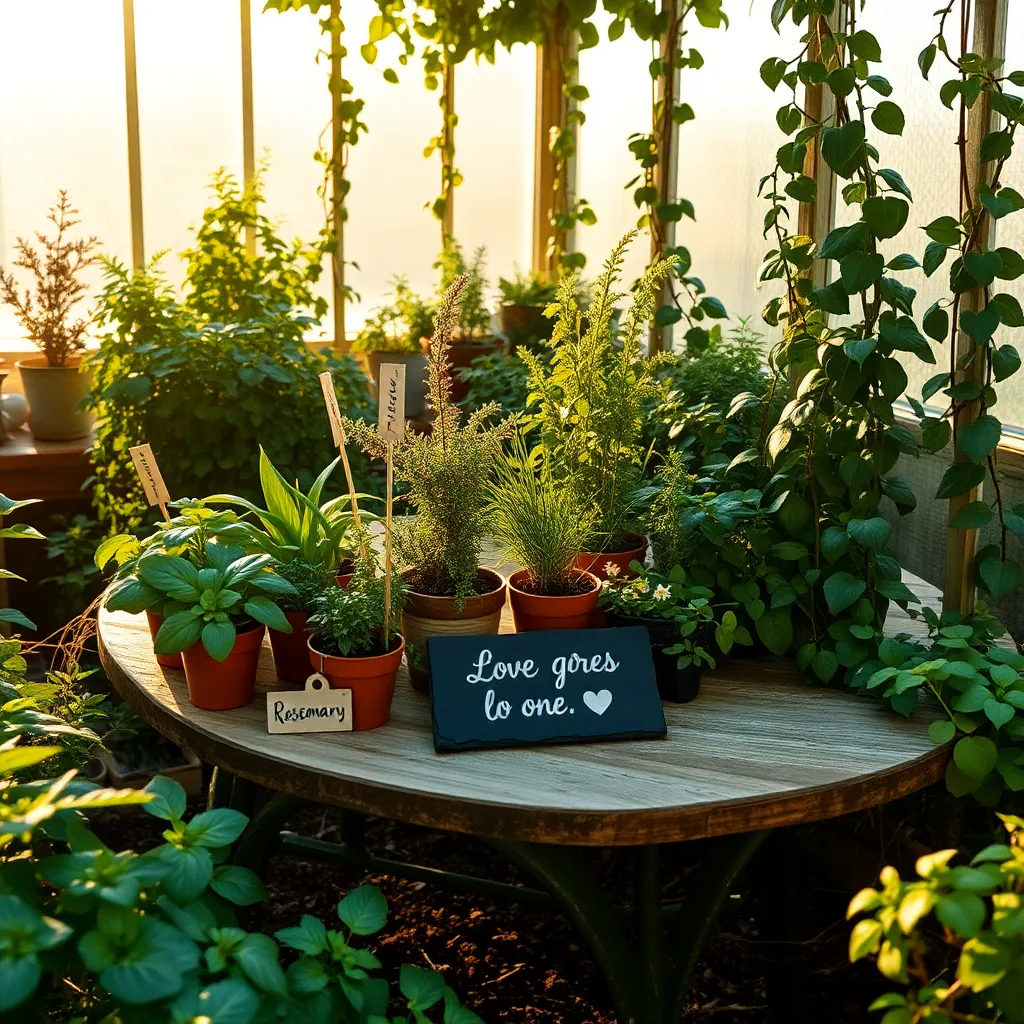
Personalizing your garden can be as delightful as crafting a cheesy love quote, adding your own unique touch to every corner. Consider planting a mix of colorful annuals and perennials to create an ever-changing tapestry that reflects your personal style.
For a beginner, starting with easy-to-grow plants like marigolds or zinnias can provide quick satisfaction and a splash of color. These plants thrive in well-drained soil and require watering once or twice a week, depending on rainfall.
Advanced gardeners might experiment with companion planting to personalize their spaces further. For instance, pairing tomatoes with basil not only optimizes space but can also enhance the flavor of both crops when harvested together.
To add a personal touch, consider incorporating garden art or DIY elements that tell your story. Upcycle old containers as planters or use painted stones as decorative markers, blending creativity with sustainability in your gardening endeavors.
Quotes for Different Moods
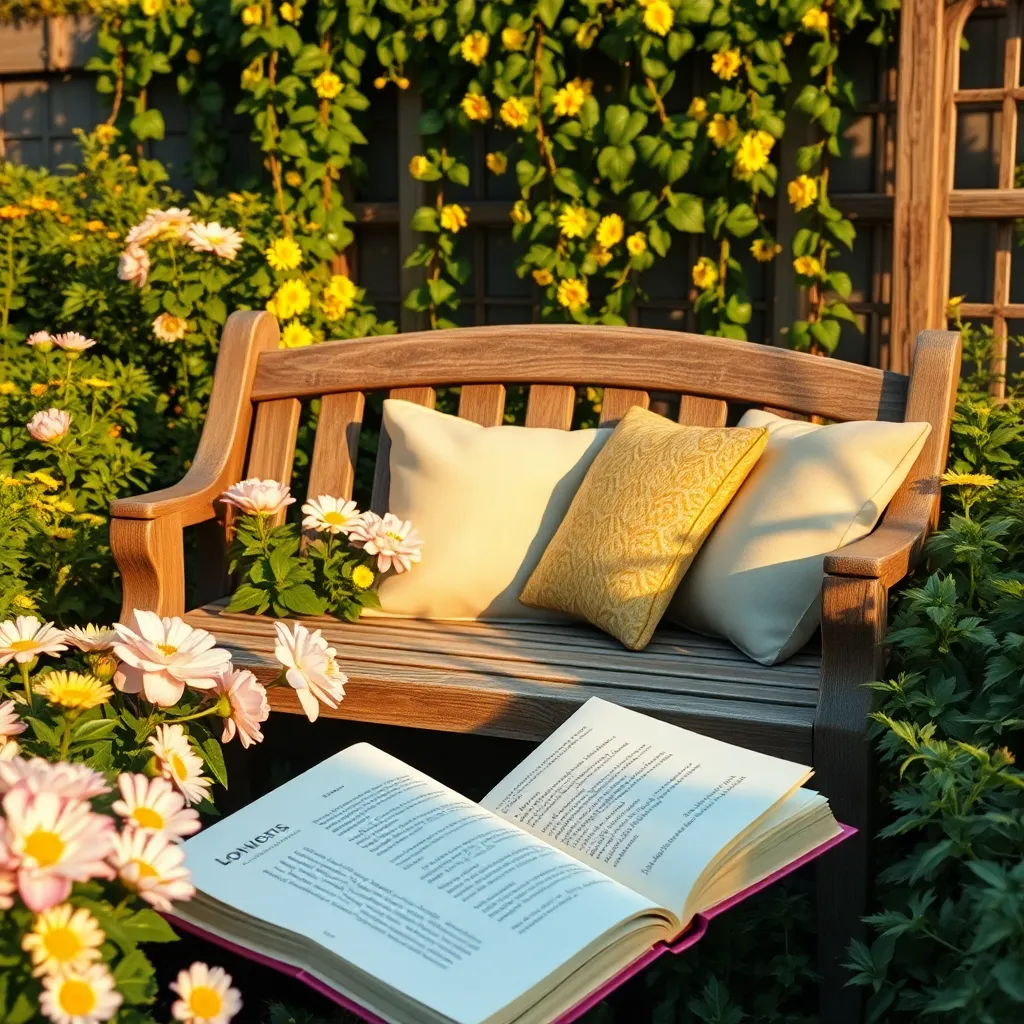
Gardening can be a delightful escape when you’re feeling blue, and a great way to start is by nurturing easy-to-grow plants like marigolds. These vibrant flowers thrive in full sun and require well-drained soil, making them perfect for brightening up any garden space.
On days when you’re feeling adventurous, experimenting with vertical gardening can be rewarding. Consider growing climbing plants like clematis, which require a sturdy trellis and benefit from a mix of peat and well-rotted compost to thrive.
If you’re feeling contemplative, cultivating a herb garden can be both therapeutic and practical. Start with basil and rosemary, which need regular watering but ensure the soil dries out slightly between sessions to prevent root rot.
For those seeking to spark creativity, try your hand at container gardening with succulents. They demand minimal care, thriving in sandy soil and requiring water only when the top inch of soil is dry, making them ideal for busy gardeners.
Quotes for Different Personalities
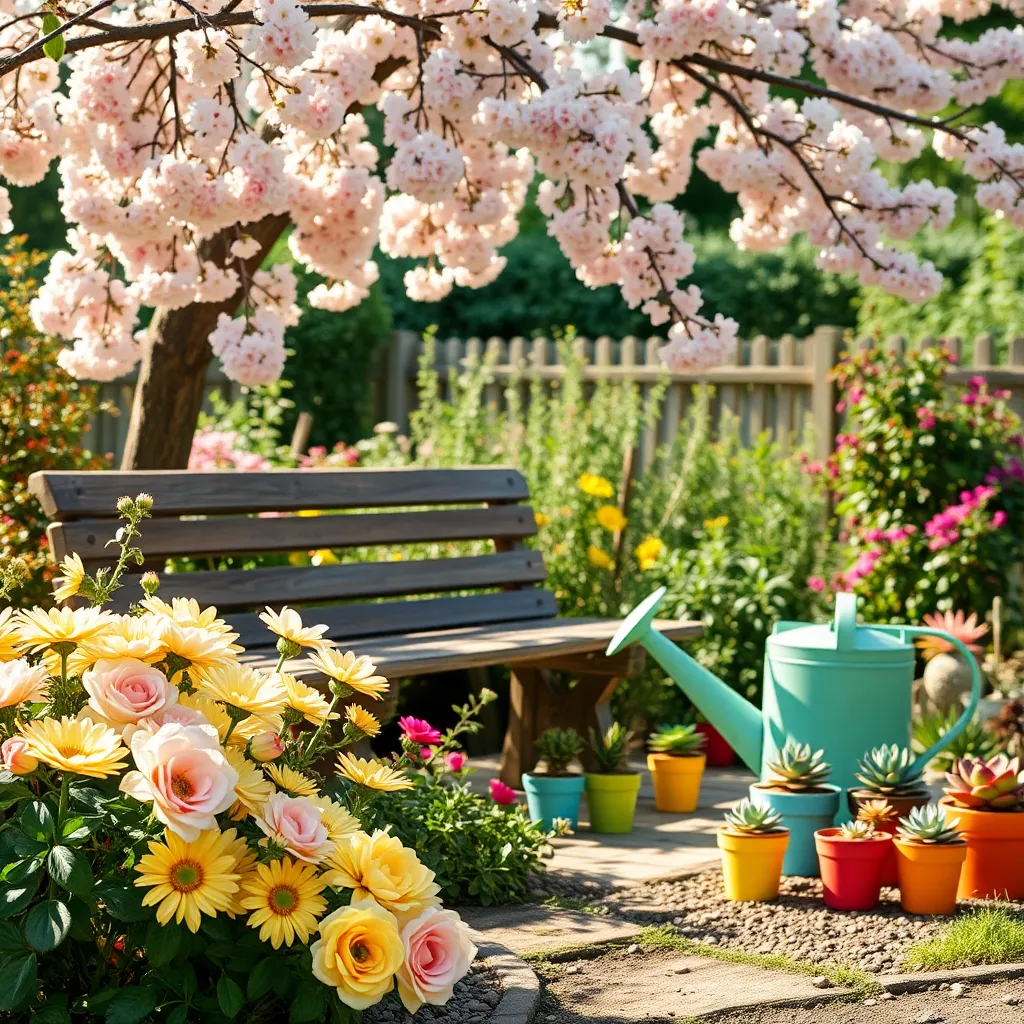
Gardeners with an adventurous spirit might enjoy experimenting with unusual plant varieties. Consider trying out some heirloom seeds or less common plants like purple carrots or rainbow chard, which can add both color and conversation to your garden.
If you have a meticulous personality, precision in gardening can be deeply satisfying. Focus on maintaining a perfectly pruned rose bush or establishing a geometric vegetable garden, ensuring each plant has the ideal spacing for optimal growth.
For those with a laid-back attitude, low-maintenance plants can be a perfect match. Succulents and native wildflowers typically require minimal watering and care, allowing you to enjoy your garden without much fuss.
Creative souls might find joy in designing a whimsical garden space that tells a story. Incorporate elements like winding paths or fairy gardens, and choose plants like morning glories or climbing roses that can be trained to create living art installations.
Adapting Quotes Over Time
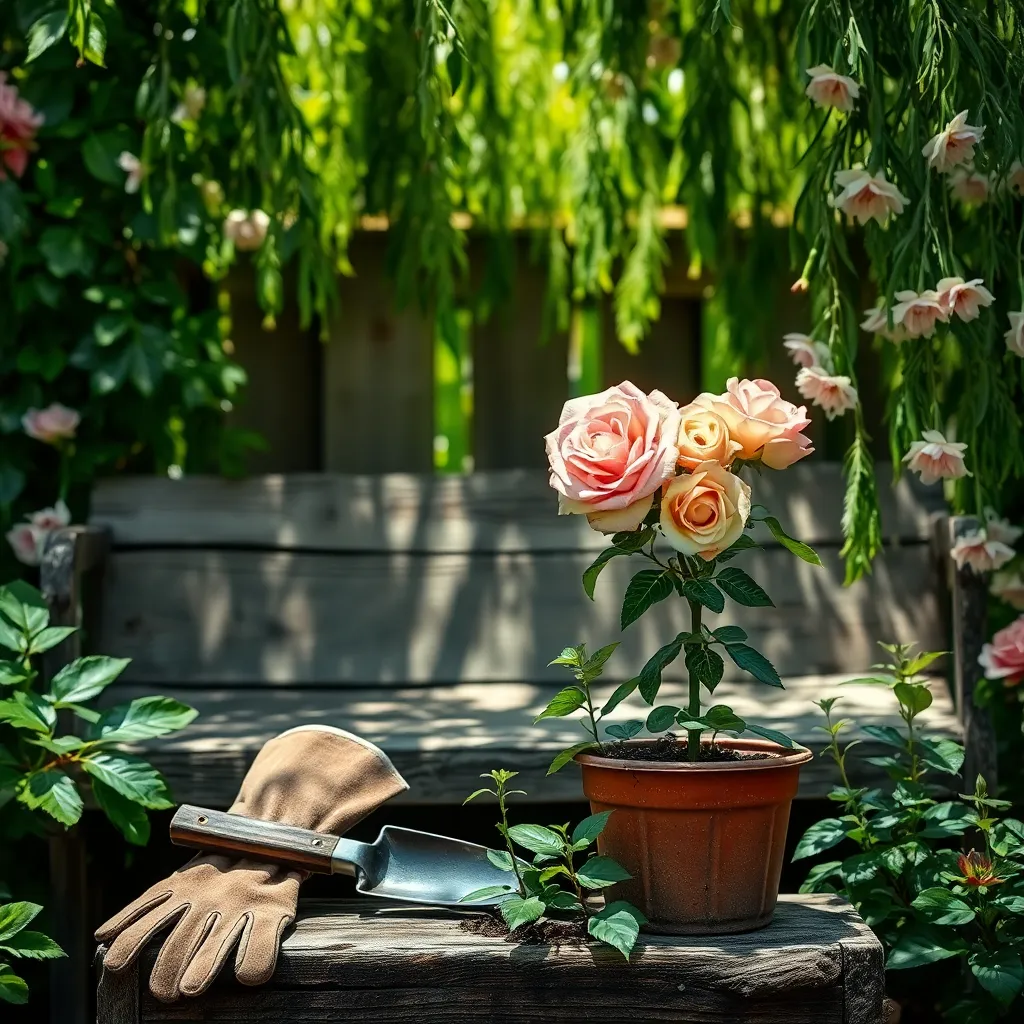
In gardening, adapting your techniques over time can lead to thriving plants and bountiful harvests. Whether you are nurturing a small herb garden or managing a lush vegetable patch, learning to adjust care practices is crucial.
One of the simplest ways to adapt your gardening methods is by observing your plants’ responses to different conditions. For example, if you notice yellowing leaves, it could be a sign of overwatering, prompting you to adjust your watering schedule to every other day instead of daily.
Consider the seasonal changes and their impact on your garden’s needs. During the hot summer months, increasing the frequency of watering and applying a layer of mulch can help retain moisture and protect roots from excessive heat.
Advanced gardeners can experiment with crop rotation to prevent soil depletion and reduce pest buildup. By rotating plant families—such as moving legumes to a spot where you previously grew tomatoes—you can naturally improve soil fertility and plant health.
Quotes for Holiday Celebrations
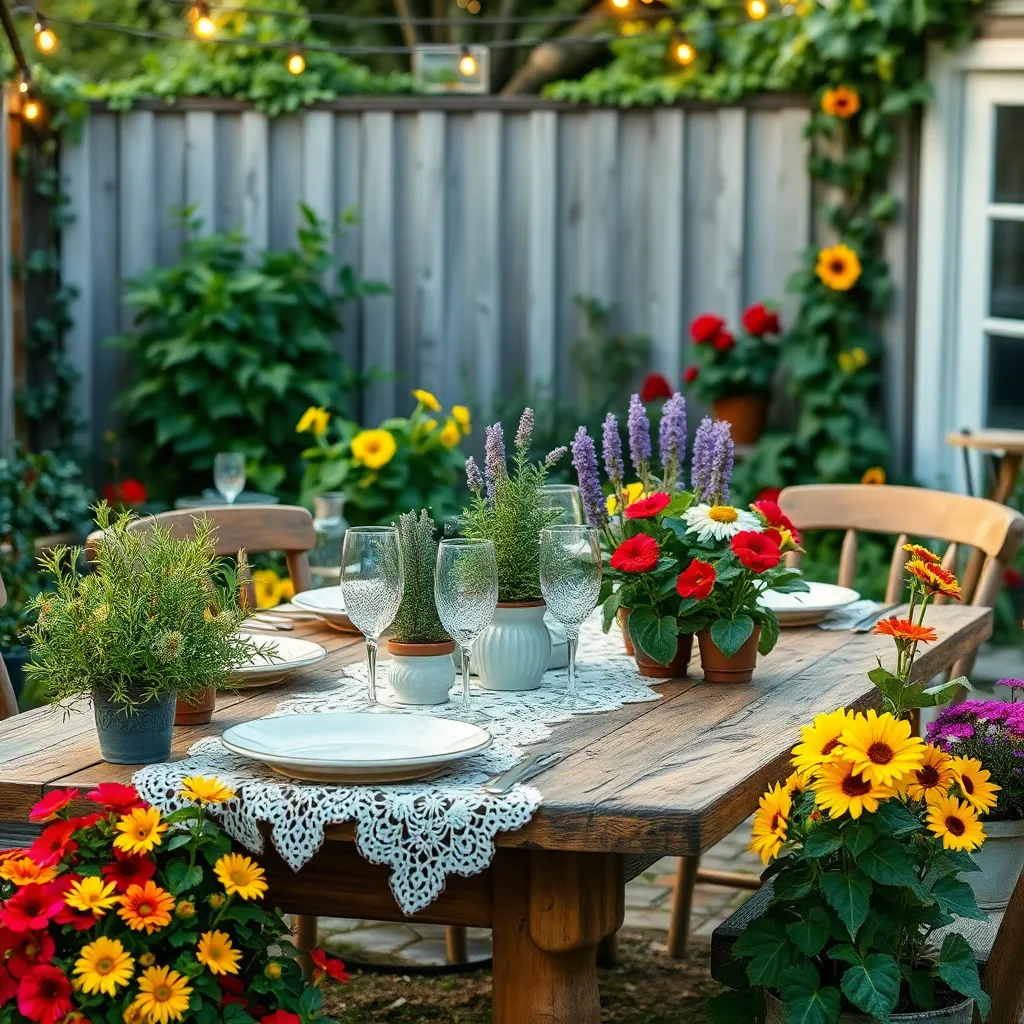
During the holiday season, incorporating festive plants into your home decor can create a warm and inviting atmosphere. Poinsettias are a popular choice for their vibrant red and green leaves, and they thrive best in bright, indirect sunlight with soil that is kept moderately moist.
For those looking to add a fragrant touch, consider growing amaryllis bulbs, which bloom beautifully during the winter months. To ensure successful blooming, plant the bulbs in well-draining potting mix and water sparingly until you see growth, then increase watering as the plant develops.
Maintaining a healthy plant environment is crucial, especially during the colder months when indoor heating can dry out the air. To combat this, use a humidifier or mist your plants regularly to keep humidity levels up, ensuring your holiday plants stay lush and vibrant.
Advanced gardeners might experiment with forcing bulbs like paperwhites, which can be a delightful project for the holiday season. Start by placing the bulbs in a shallow dish with pebbles and water, ensuring the base of the bulbs is just above the waterline, and watch as they grow into fragrant blooms.
Quotes for Birthdays and Anniversaries
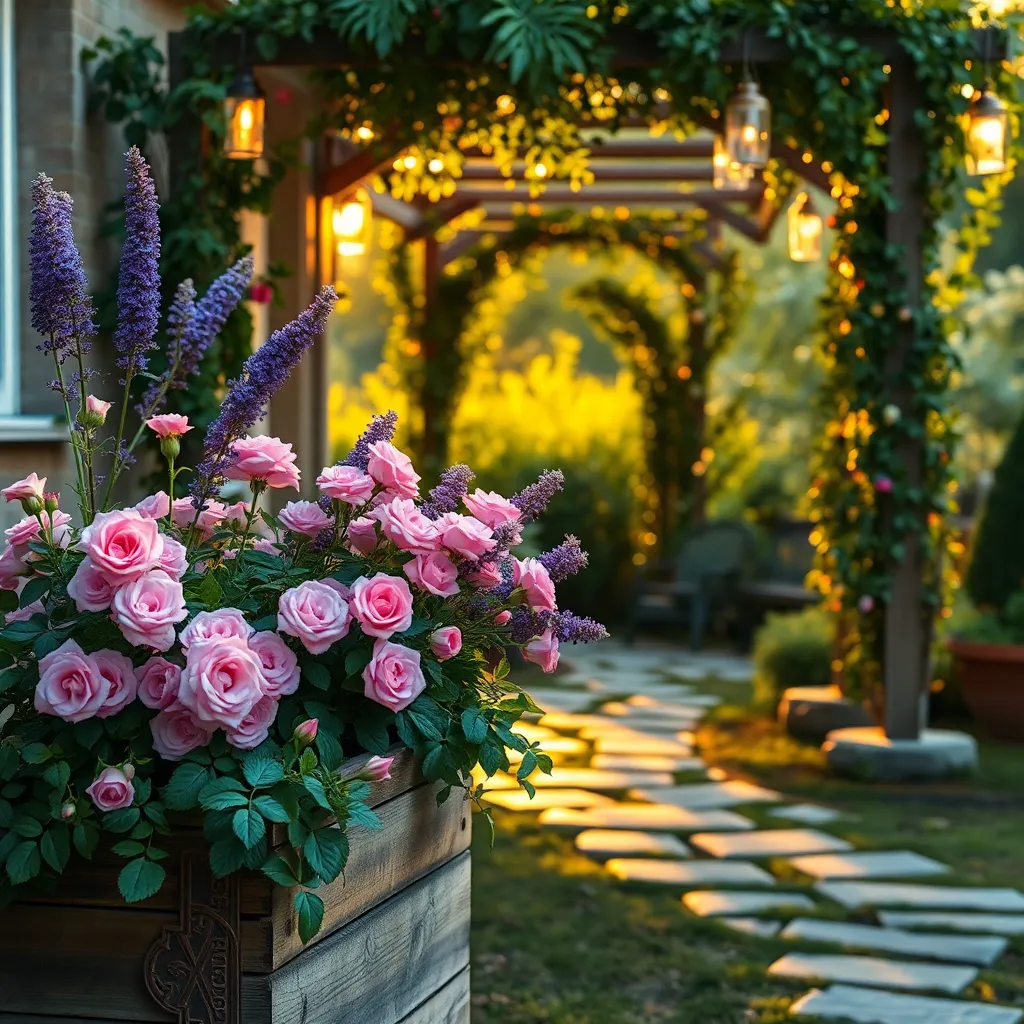
Birthdays and anniversaries are perfect occasions to celebrate with plants that symbolize growth and renewal. Consider gifting a potted rose plant, as roses are known for their beauty and resilience. To keep a rose thriving, ensure it gets at least six hours of sunlight daily and water it deeply but infrequently, allowing the soil to dry slightly between waterings. For those in cooler climates, consider a miniature rose variety that can be grown indoors on a sunny windowsill.
Orchids make exquisite gifts for anniversaries, symbolizing love, beauty, and strength. When caring for orchids, maintain a balance of bright, indirect light and high humidity to mimic their natural tropical habitat. Use a specialized orchid mix that promotes good drainage, and water once a week, ensuring the potting medium dries out slightly between waterings. Advanced gardeners can experiment with feeding orchids a diluted fertilizer every two weeks during the growing season for enhanced blooms.
If you’re looking for a low-maintenance plant, consider gifting a succulent arrangement. Succulents thrive in well-draining soil and require minimal watering, making them ideal for busy individuals. Place them in a bright location, such as a south-facing window, and water only when the soil is completely dry. For a creative twist, arrange different types of succulents in a shallow dish for a beautiful, living centerpiece.
Herb gardens can also be a thoughtful gift, offering both beauty and utility. Choose a selection of herbs like basil, mint, and rosemary, which are easy to care for and useful in the kitchen. Provide them with a sunny spot and water regularly, ensuring the soil never becomes waterlogged. For a personalized touch, label each herb with creative markers, making it both a practical and decorative addition to any home.
Quotes to End the Day
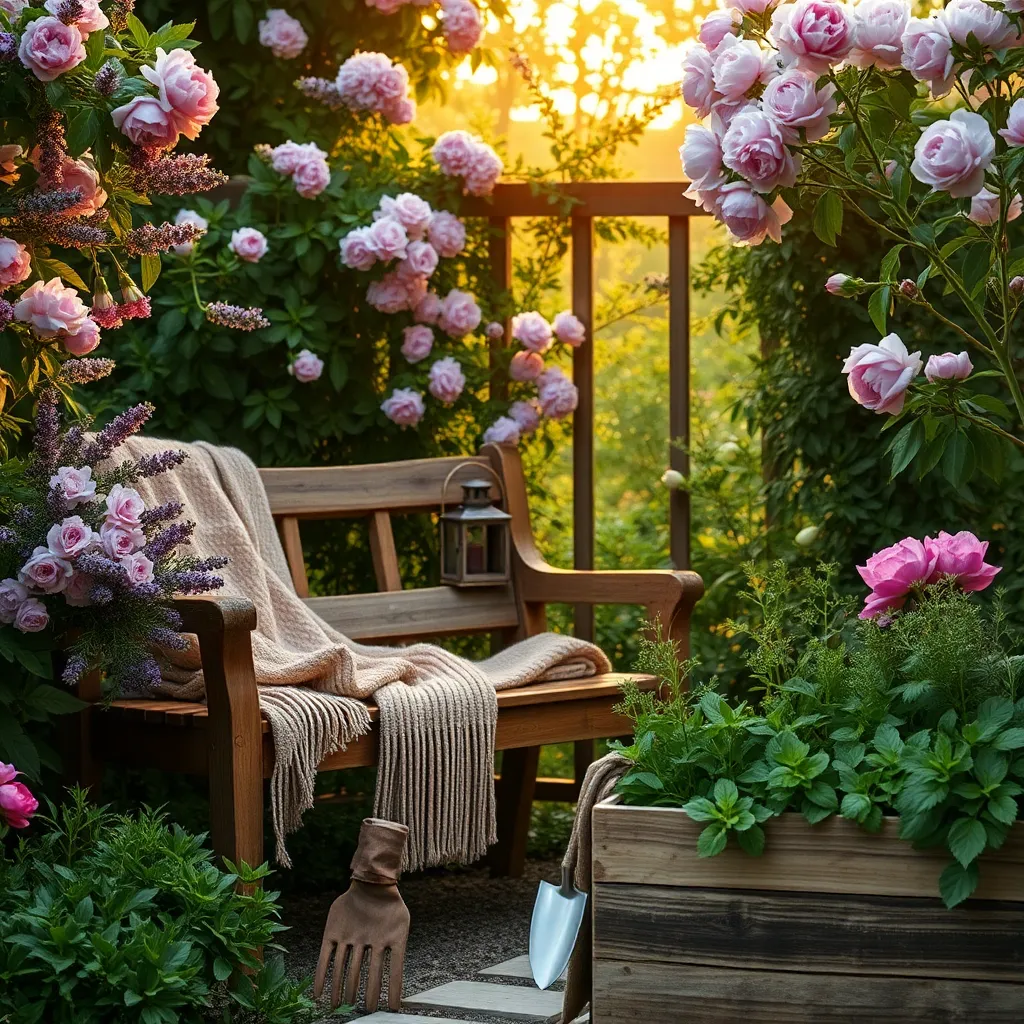
As the day winds down, take a moment to reflect on the garden’s progress and plan for tomorrow. It’s a great time to check that your plants are receiving the right amount of water, especially during warmer months. Overwatering can be just as harmful as underwatering; aim for moist but not soggy soil. Consider using a moisture meter for more precise watering, helping your plants thrive.
Evening is also an ideal time for pest control and inspection. As temperatures cool, many pests become less active, making it easier to spot and remove them. Hand-picking pests off plants is an effective and environmentally friendly method. For more persistent issues, try introducing beneficial insects like ladybugs or using organic pest control options.
End your day by ensuring your garden tools are clean and stored correctly. Proper maintenance of tools prolongs their lifespan and keeps your gardening efforts efficient. Wipe down tools to remove dirt and apply a light coating of oil to prevent rusting. Keeping tools sharp and organized will save time and effort in the days to come.
Lastly, take a few moments to plan for future garden improvements. Whether it’s jotting down ideas for new plant varieties or researching companion planting techniques, these small efforts can lead to a more productive garden. Consider rotating crops or adding mulch to enrich the soil and suppress weeds. A little planning each evening can yield great results over time, keeping your garden vibrant and healthy.
Quotes for Morning Greetings
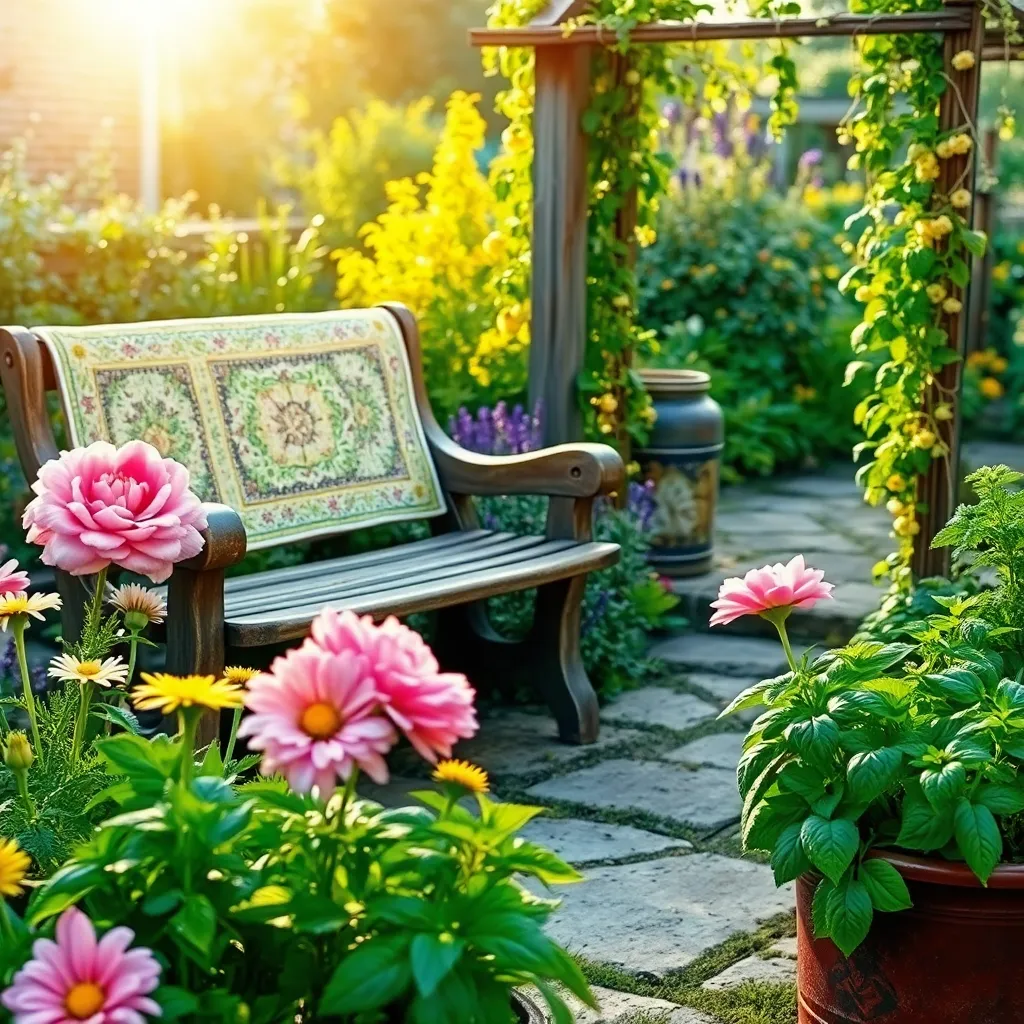
Starting your day with a stroll through your garden can be a refreshing experience. Morning greetings to your plants can include checking for any signs of pests or diseases, allowing you to address problems before they worsen.
In the early hours, dew can provide a gentle watering effect, but it’s essential to ensure your plants have adequate moisture throughout the day. Watering deeply in the morning helps reduce evaporation, keeping your plants hydrated during hot afternoons.
Observing your plants in the morning light can reveal their unique growth patterns and needs. Pay attention to the sunlight requirements of each plant, adjusting their positions if necessary to maximize exposure or provide shade.
For those with a vegetable garden, morning is the perfect time to harvest produce like lettuce and herbs, which tend to be crisper before the sun’s heat sets in. This is also an excellent opportunity to prune and deadhead flowers to encourage new growth and prolong blooming.
Quotes for Unexpected Surprises
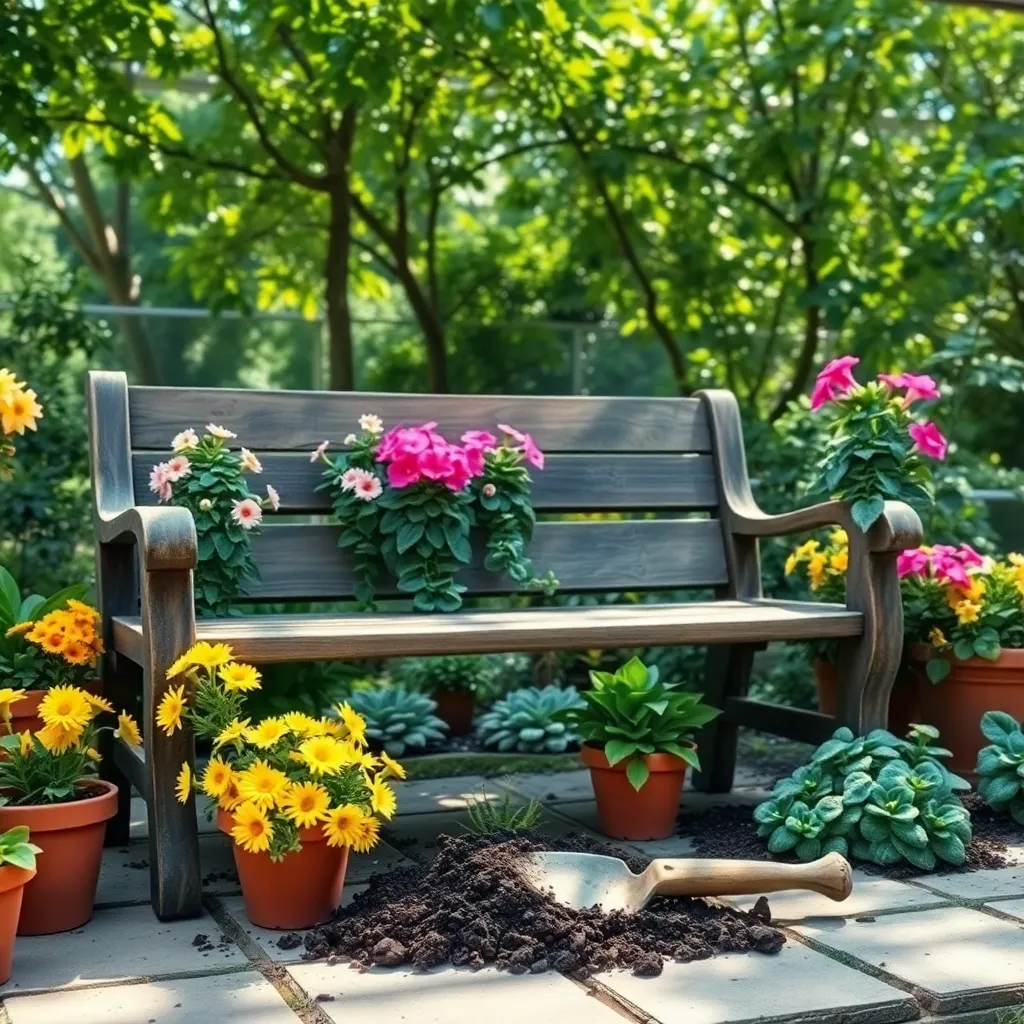
Gardening often surprises us with unexpected delights, much like a love story unfolding in the soil. When you plant a crop like radishes, they can pop up in as little as 3 to 4 weeks, offering a quick reward for your efforts.
For those who enjoy a bit of mystery, consider planting a variety of bulbs in the fall. Tulips and daffodils will provide a stunning surprise come spring with minimal effort, as they thrive in well-drained soil and require just a bit of watering during dry periods.
Sometimes, the most delightful surprises come from companion planting, where certain plants help each other grow better. For instance, growing basil near tomatoes can enhance the flavor of your tomatoes while also repelling pests, a simple technique that even beginners can implement.
Advanced gardeners can experiment with succession planting to enjoy continuous harvests throughout the growing season. By sowing seeds like lettuce or spinach every two weeks, you can ensure a steady supply of fresh greens, maximizing garden productivity.
Balancing Romance with Reality
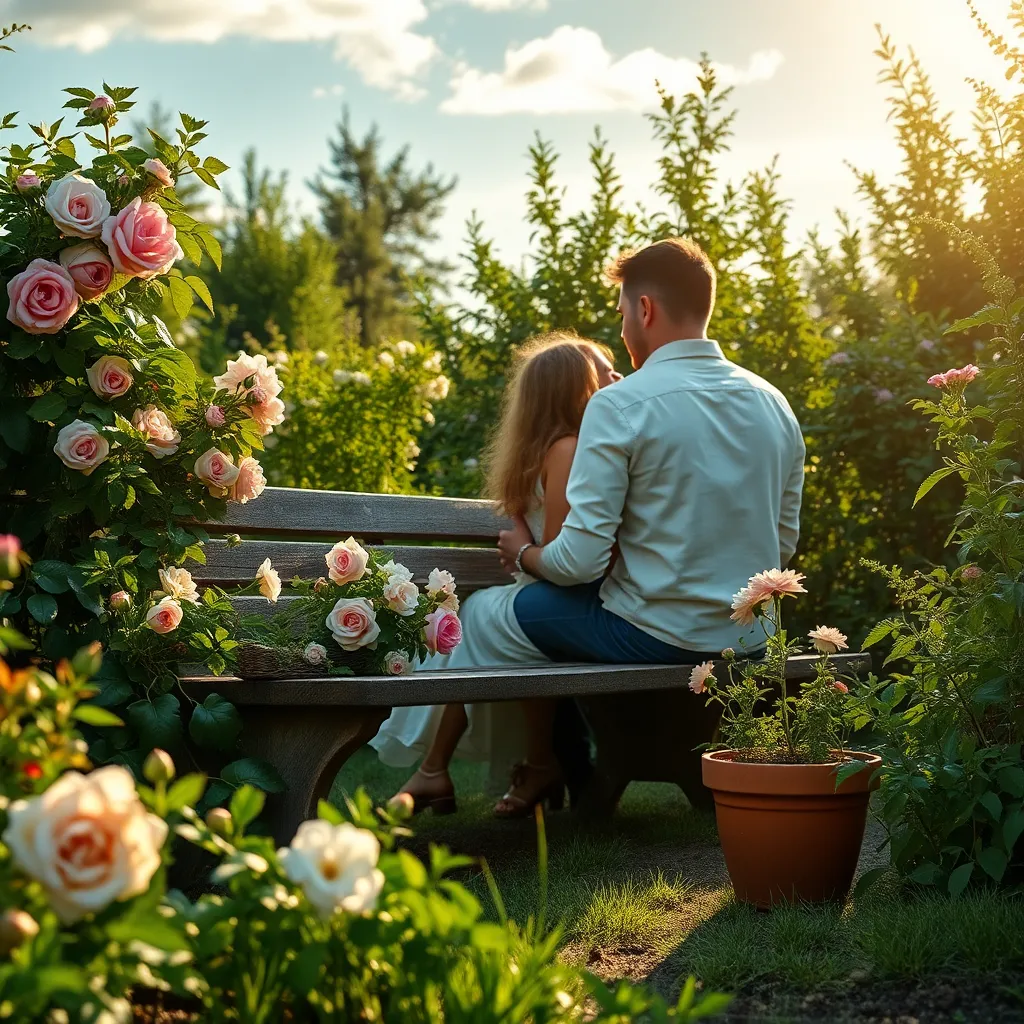
Gardening, much like love, requires a delicate balance between dreams and reality. To start, choose plants that match your region’s climate and soil type, ensuring they thrive with minimal intervention.
While it’s tempting to fill your garden with exotic plants, it’s wise to include a few hardy species that can withstand unpredictable weather. For beginner gardeners, consider starting with native plants, which are naturally adapted to your local environment and often require less maintenance.
Every gardener dreams of lush blooms, but understanding the specific needs of each plant is crucial. For instance, roses symbolize romance and can thrive with proper care; ensure they have well-draining soil and receive at least six hours of sunlight daily.
Advanced gardeners might experiment with companion planting, which can enhance growth and deter pests naturally. Planting marigolds near vegetables is a classic technique, as they help repel harmful insects while adding a pop of color to your plot.
Quotes for Long-Term Partnerships
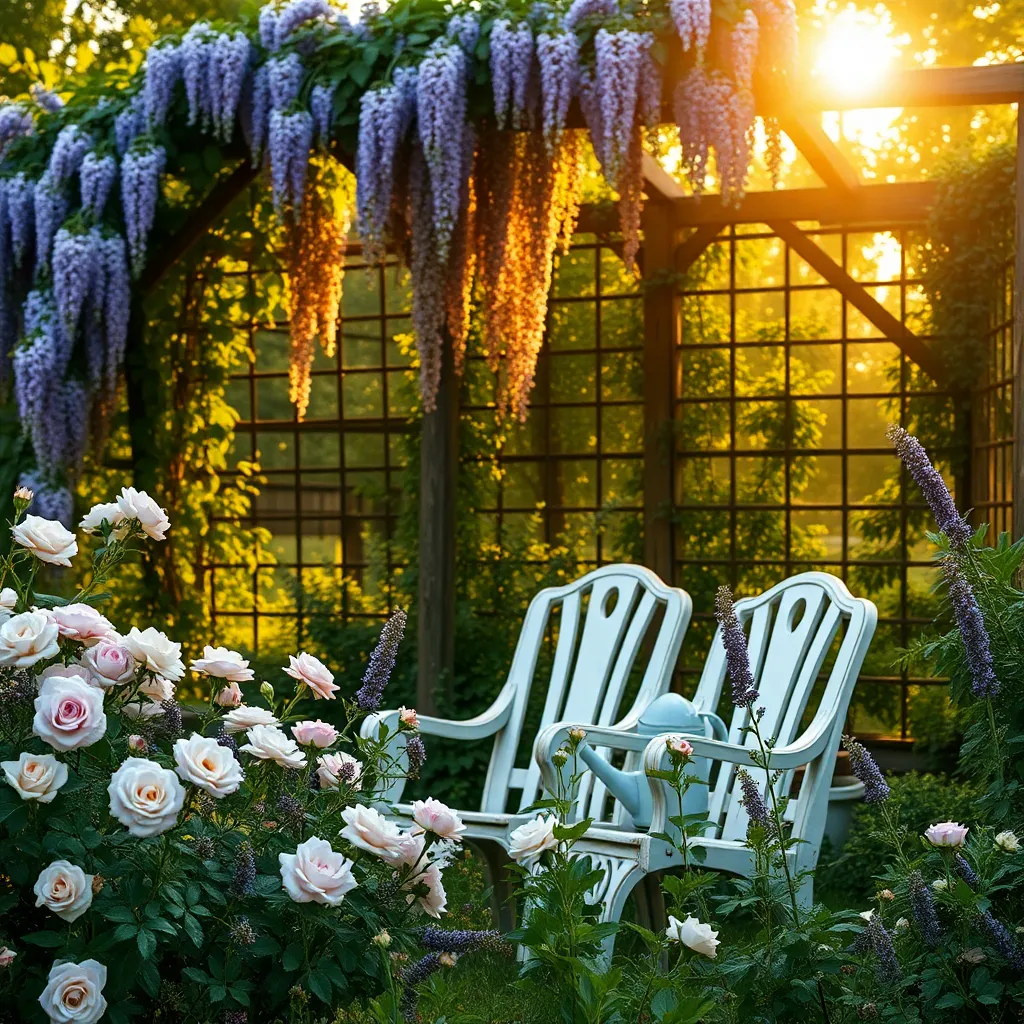
Forming a long-term partnership in the garden begins with understanding the needs of your plants. Choose perennials like lavender or daylilies that not only return each year but also require minimal maintenance, making them perfect for gardeners looking for sustainable beauty.
Creating a thriving environment involves more than just planting; it requires nurturing. Ensure your soil is well-draining and enriched with organic compost, as this will provide the necessary nutrients for robust plant health.
Watering techniques can make a significant difference in plant longevity. Utilize a soaker hose or drip irrigation system to deliver moisture directly to the roots, reducing water waste and encouraging deep root growth.
For those seeking advanced tips, consider companion planting to foster mutual growth. Pairing plants like tomatoes and basil not only enhances flavor profiles but also aids in pest deterrence, creating a harmonious garden ecosystem.
Quotes for Dating Adventures
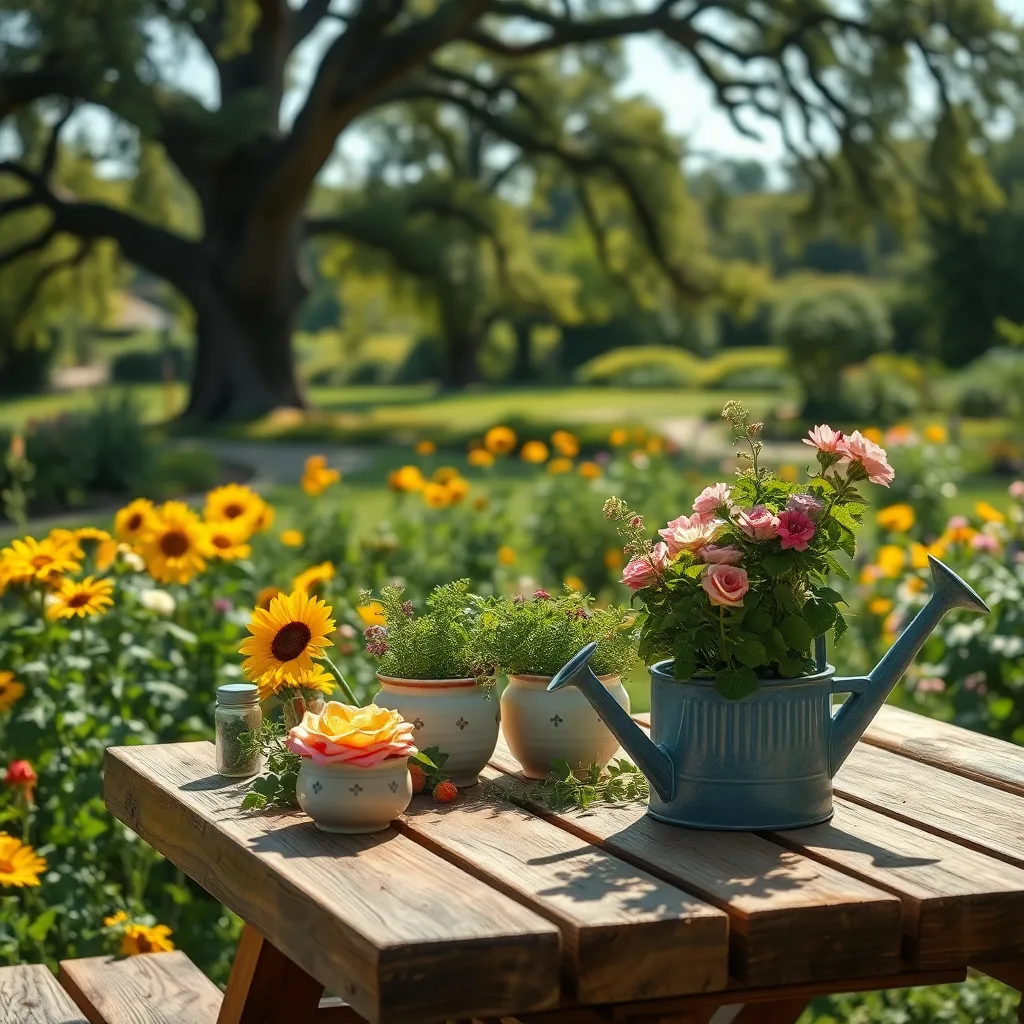
When embarking on the adventure of dating, think of planting a new garden as a similar journey. Just like learning about a new partner, understanding your garden’s needs requires patience and observation.
To start, focus on the basics: choose plants that are well-suited to your region’s climate and soil type. Consider starting with hardy perennials like lavender or coneflowers, which thrive in a variety of conditions and can be a great conversation starter.
As your dating adventure progresses, so should your garden. Experiment with companion planting, a technique where certain plants enhance each other’s growth when placed together, much like finding the right partner.
Watering is crucial; ensure your plants receive the right amount of moisture by checking the soil regularly. Most plants prefer deep, infrequent watering to encourage roots to grow deeper into the soil, much like how deeper connections are formed.
Advanced gardeners might try their hand at grafting, a technique that involves joining two plants to grow as one. This can be as fulfilling as nurturing a growing relationship, resulting in a stronger, more diverse garden.
Quotes for Quiet Evenings
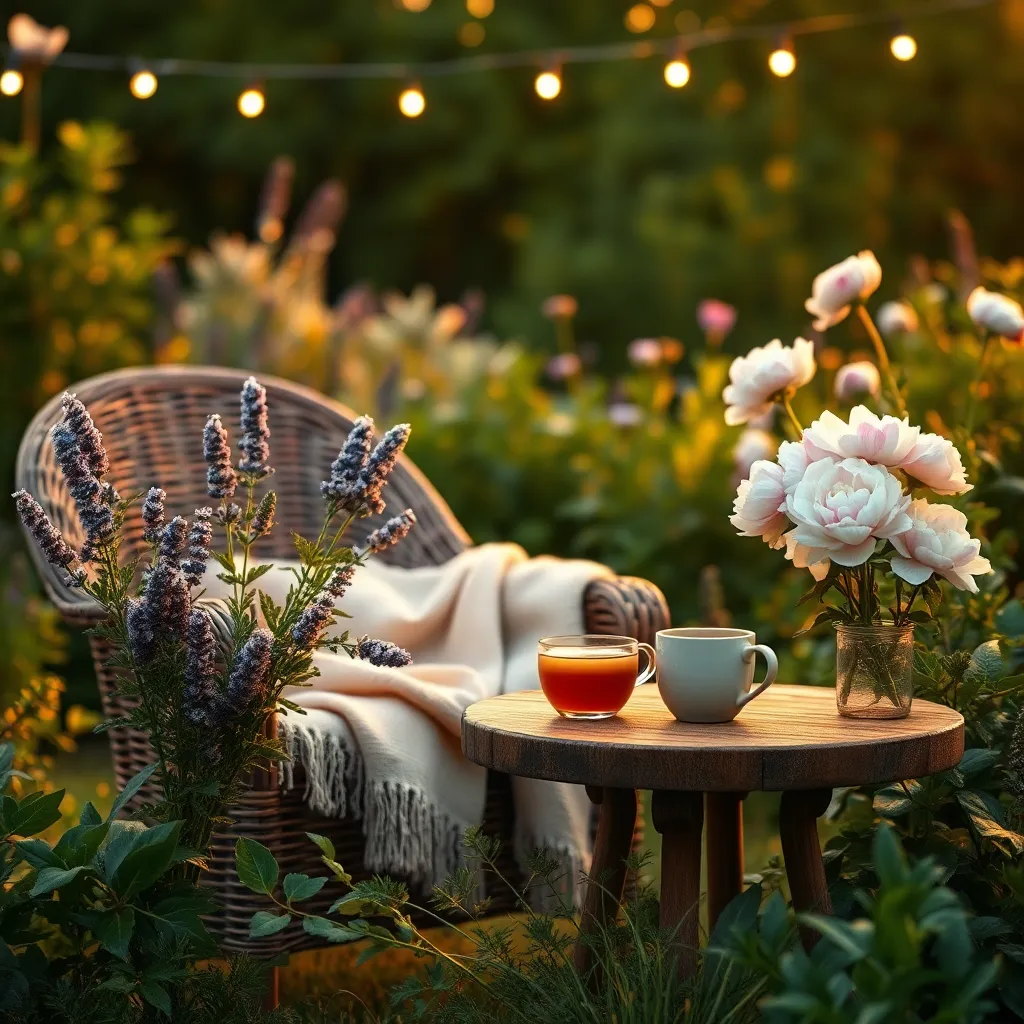
Creating a tranquil garden for quiet evenings involves understanding both plant selection and placement. Choose plants like lavender or night-blooming jasmine, which release calming scents that enhance relaxation while you unwind outdoors.
To foster a serene atmosphere, consider growing a combination of plants that thrive in evening light. Opt for white or light-colored blooms, such as moonflower or evening primrose, which reflect moonlight and add a soft glow to your garden.
Watering is crucial for maintaining a healthy evening garden, especially during warmer months. Ensure your plants are well-watered by irrigating them in the early morning or late afternoon to minimize evaporation and stress.
For an added touch of magic, integrate solar-powered garden lights among your plants. This will not only illuminate your garden paths but also create a cozy ambiance perfect for lingering conversations or solitary reflection.
Quotes for Family Life
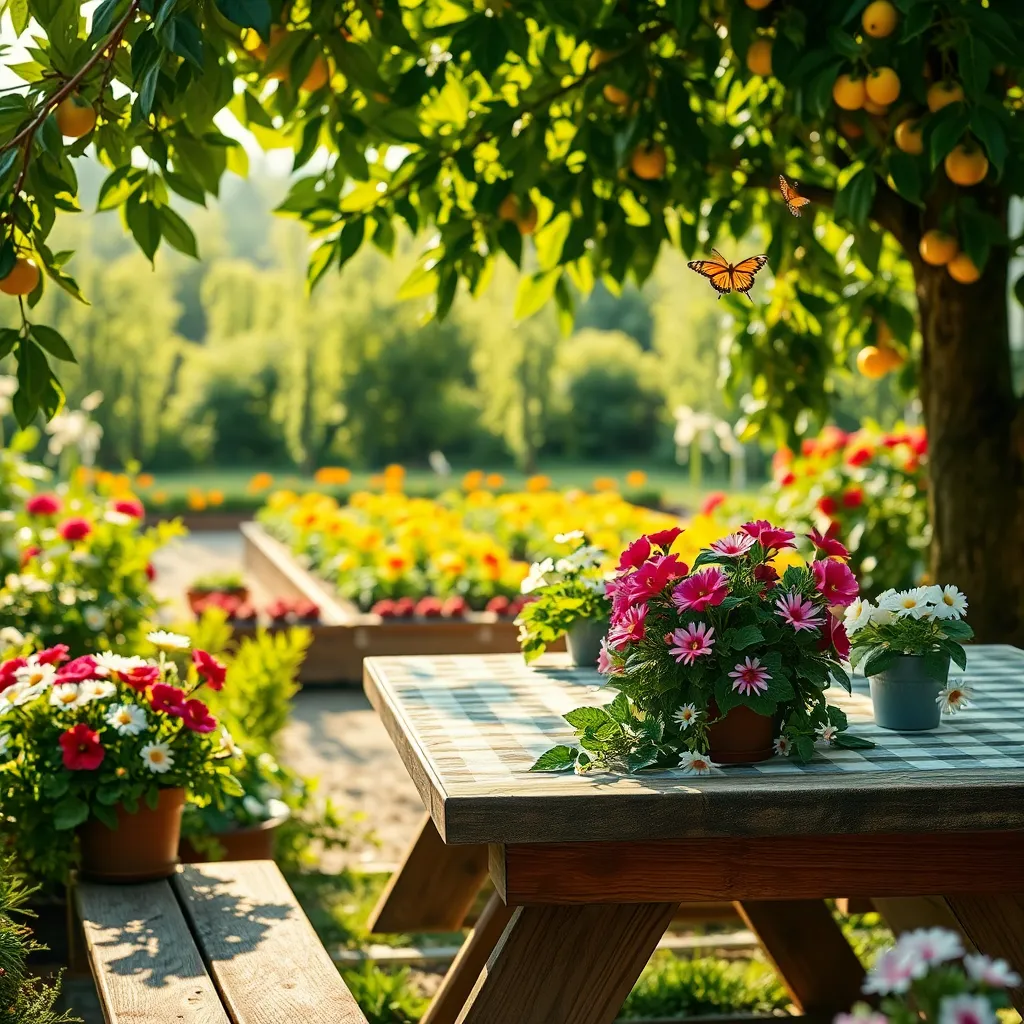
Gardening as a family activity can be incredibly rewarding, as it encourages both bonding and learning. Start with easy-to-grow plants like sunflowers or radishes, which provide quick results and keep children engaged.
When planning your family garden, consider the interests and skill levels of each family member. Assign age-appropriate tasks, such as watering for younger children and more complex chores like pruning for older ones.
Incorporating a variety of plants can make the gardening experience more educational and fun. Use this opportunity to teach children about different plants’ needs, such as the preference for moist soil by certain herbs, or the love of full sun by tomatoes.
Make the garden a place of discovery by introducing pollinator-friendly plants like lavender and zinnias. Encourage children to observe bees and butterflies visiting these plants, fostering a sense of wonder and respect for nature.
Quotes for Young Love
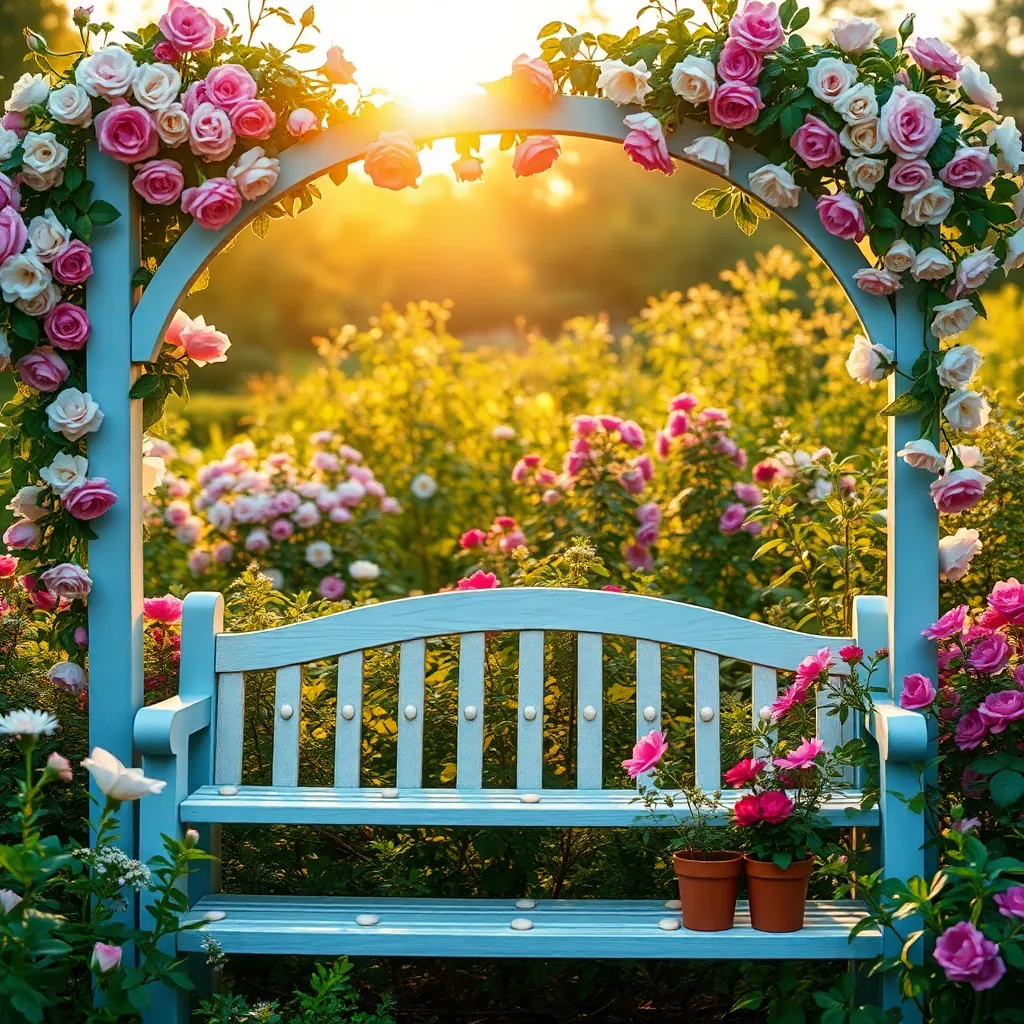
Young love is much like nurturing tender seedlings in your garden—both require patience and a gentle touch. For beginners, it’s crucial to start with easy-to-grow plants like marigolds or zinnias, as they are forgiving and thrive in various soil types.
Incorporating companion planting can be a delightful way to explore the synergy in nature, much like how young love blossoms with mutual understanding. Pairing basil with tomatoes not only saves space but also enhances flavor, providing practical benefits for your kitchen garden.
Watering is a fundamental aspect of plant care, akin to consistent communication in relationships. Most young plants do best with regular watering, usually about an inch per week, ensuring the soil remains moist but not waterlogged.
For those looking to advance their gardening skills, experimenting with propagation can be as exciting as exploring new stages in a relationship. Try propagating succulents by placing leaf cuttings on well-draining soil, providing a rewarding experience as you watch them take root and grow.
Quotes for Mature Love
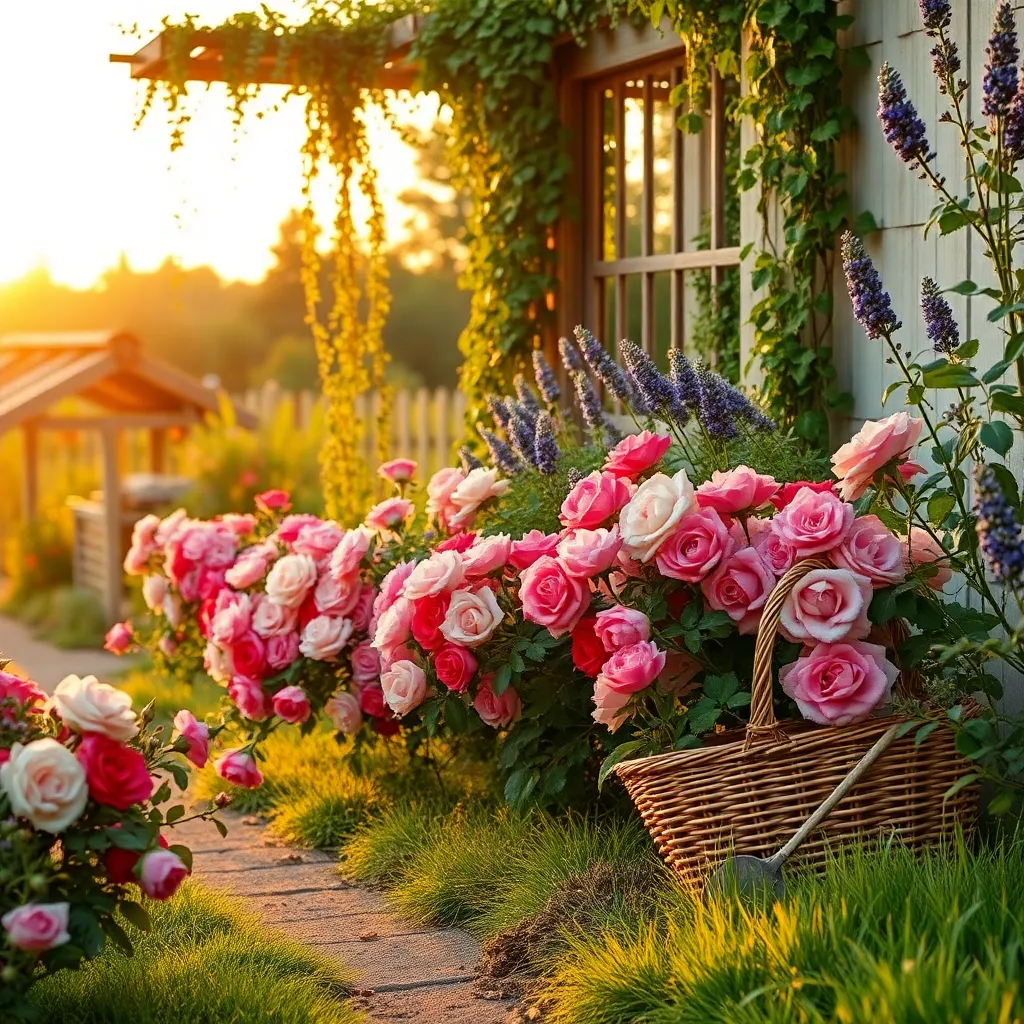
As plants mature, they require a different kind of nurturing, much like mature love. Understanding the specific needs of mature plants can help them thrive for years to come.
For mature plants, ensuring they have the right soil is crucial. Opt for a well-draining mix with a balance of nutrients, and consider adding organic matter like compost to enrich the soil.
Watering patterns need to be adjusted as plants age. Deep watering encourages roots to grow deeper, supporting the plant during dry spells and promoting resilience.
Pruning is essential to maintain the shape and health of mature plants. Regularly remove dead or diseased branches, and trim overgrowth to allow for better air circulation and sunlight exposure.
Quotes for Cross-Cultural Relationships
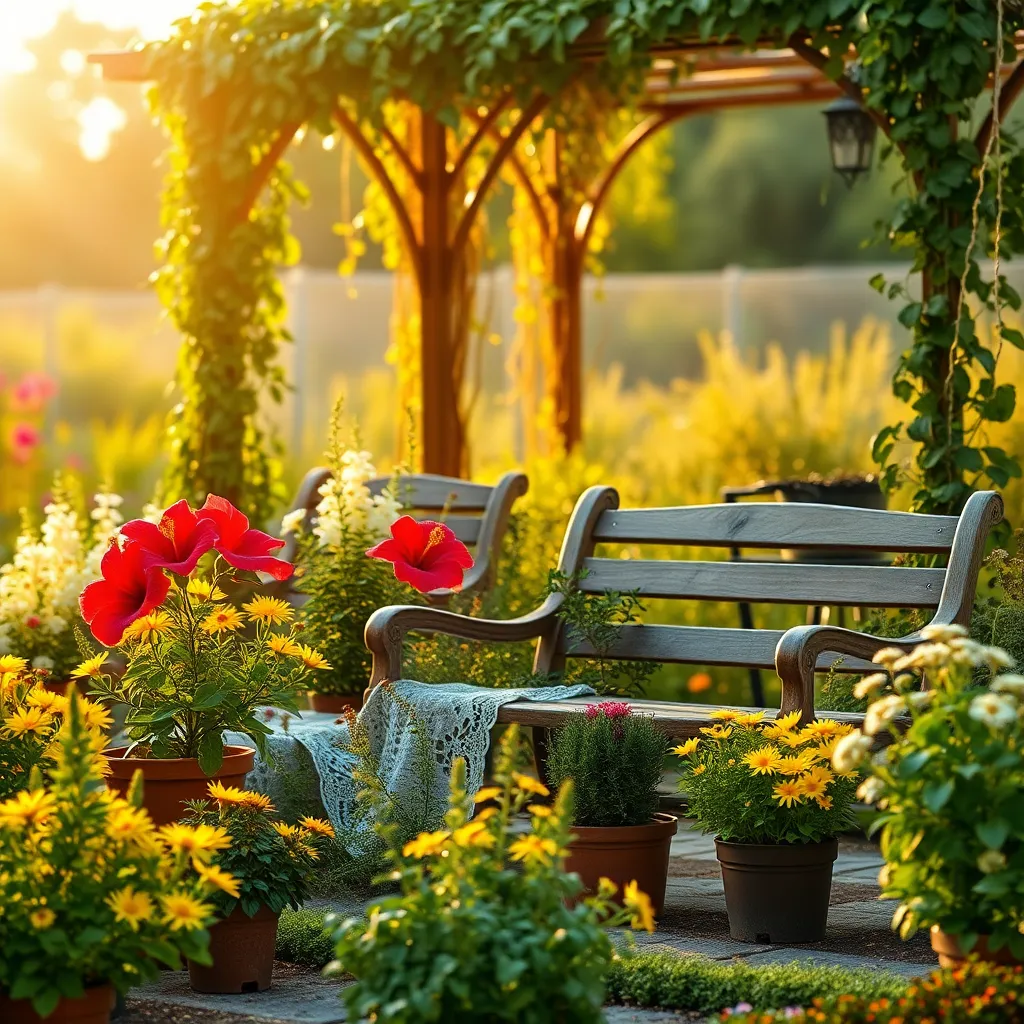
In cross-cultural gardening, one key to success is understanding the unique needs of each plant species, much like respecting the diversity in relationships. Research the native environment of each plant to mimic its preferred growing conditions, ensuring it thrives alongside others in your garden.
When combining plants from different climates, it’s crucial to find common ground, similar to finding shared interests in cross-cultural relationships. Consider using raised beds with well-draining soil to accommodate plants with varying moisture needs, ensuring a harmonious coexistence.
For a thriving garden that mirrors the beauty of cross-cultural connections, regular communication is essential. Observe your plants daily for signs of stress, adjusting watering schedules or light exposure as needed, just like nurturing a relationship through attentive care.
Advanced gardeners can experiment with companion planting techniques, which celebrate the strengths of different plants working in harmony. Combine nitrogen-fixing plants with those that benefit from enriched soil, promoting mutual growth and resilience, much like a supportive partnership.
Quotes for Overcoming Challenges
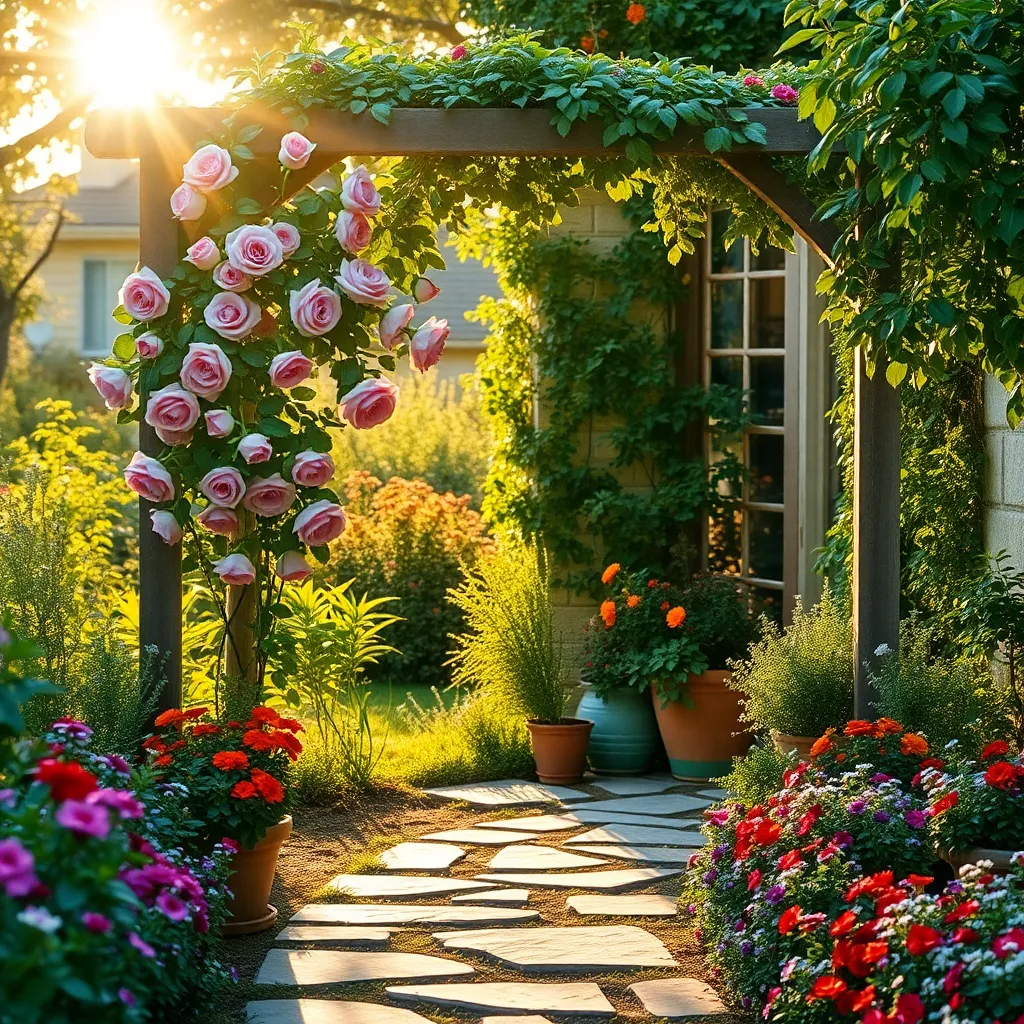
Overcoming challenges in gardening often starts with understanding your soil. Conduct a simple soil test to identify its pH level and nutrient content, as this will guide you in selecting the right amendments to achieve a thriving garden.
When dealing with pests, an integrated pest management approach can be highly effective. By introducing natural predators like ladybugs or using neem oil, you can manage pest populations without harming beneficial insects.
Watering can be a significant challenge, especially in varying climates. It’s crucial to water deeply but infrequently, allowing the soil to dry out between sessions to encourage deep root growth and prevent root rot.
For those facing issues with plant diseases, maintaining plant hygiene is essential. Regularly removing dead leaves and ensuring proper spacing between plants can help improve air circulation, thereby reducing the risk of fungal infections.
Quotes for Shared Dreams
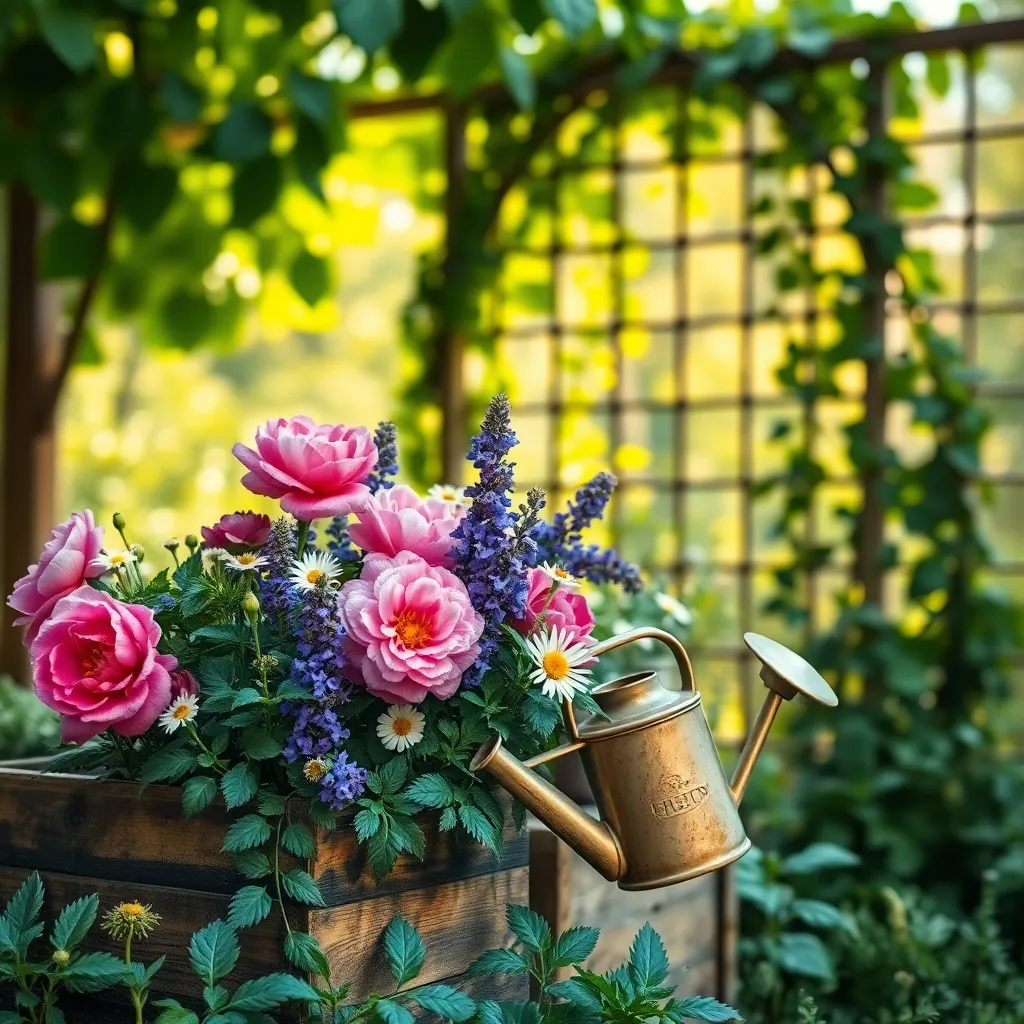
In the journey of gardening, shared dreams often blossom beautifully when you work together towards a common goal. Whether you’re planning a vibrant flower bed or a productive vegetable patch, collaboration can make the process more enjoyable and successful. Start by discussing your gardening vision with your partner, focusing on plants you both love and wish to nurture. This shared planning not only ensures that both your tastes are considered but also lays the foundation for a thriving garden.
Once you’ve established your shared dream, it’s time to get your hands dirty! Choose a site with appropriate sunlight and soil conditions suitable for your chosen plants, ensuring they’ll thrive in their new home. For beginners, consider planting easy-to-grow options like marigolds or radishes, which offer quick rewards and boost confidence. More advanced gardeners might experiment with companion planting, using marigolds to ward off pests naturally while enhancing the growth of vegetables like tomatoes.
Watering is a crucial aspect of plant care, and doing it together can be a rewarding ritual. Establish a watering schedule based on the specific needs of your plants, taking into account factors like climate and soil type. For instance, succulents require well-draining soil and infrequent watering, while leafy greens prefer consistently moist soil. Use a rain gauge to monitor rainfall and adjust your watering practices accordingly, ensuring your garden receives just the right amount of moisture.
Finally, don’t overlook the importance of soil health in nurturing your shared garden. Incorporate organic matter, like compost or well-rotted manure, to enrich the soil and promote robust plant growth. Regularly check for signs of nutrient deficiencies, such as yellowing leaves, and address them with appropriate fertilizers. By fostering a nutrient-rich environment, you and your partner can ensure that your shared dream garden continues to flourish, bringing joy and a sense of accomplishment for years to come.
Quotes for Building Trust
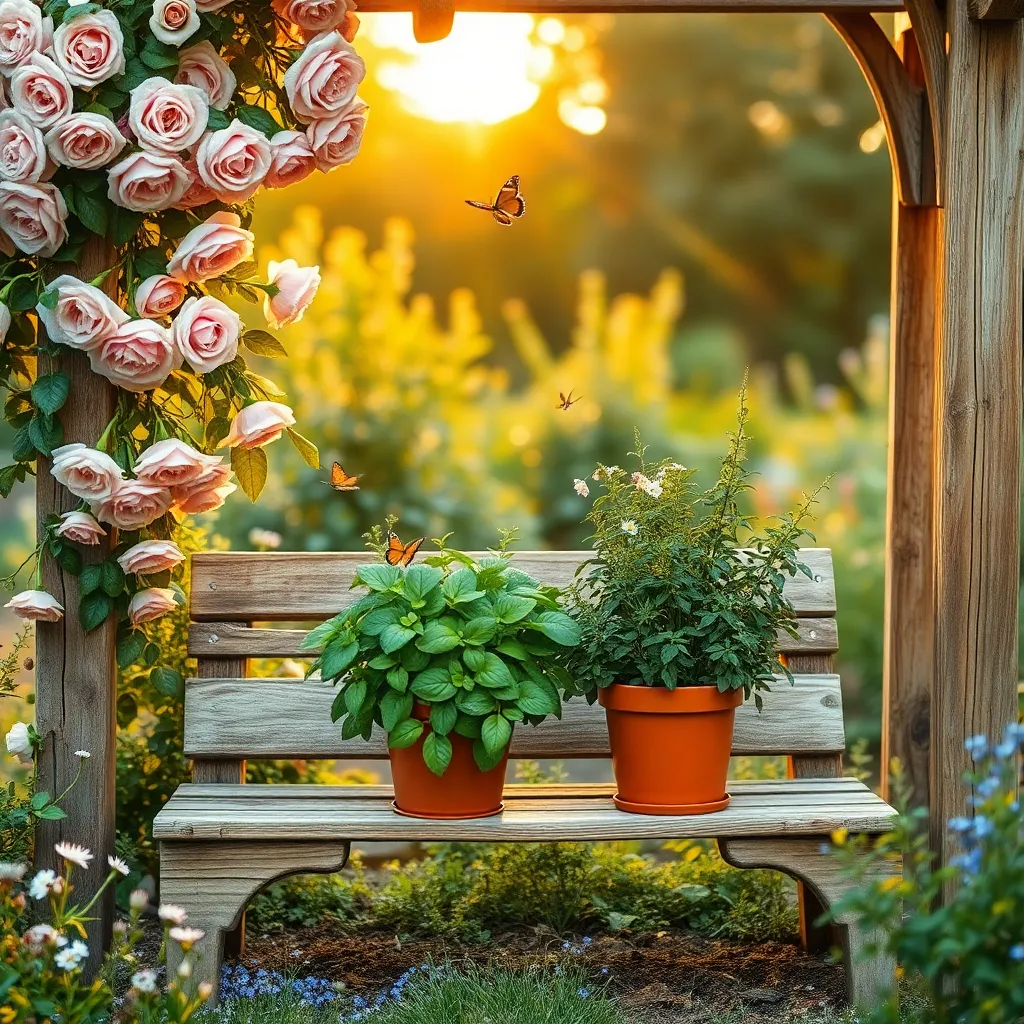
Trust in gardening is akin to nurturing a relationship with your plants. Start by understanding the specific needs of each species, as this knowledge is the foundation of a thriving garden. For beginners, it’s crucial to research the particular requirements of your chosen plants, such as their preferred soil type or sunlight exposure. For example, succulents generally enjoy well-draining soil and at least six hours of sunlight daily.
Consistency in care builds trust between you and your garden. Regular watering and monitoring of soil moisture levels ensure that plants receive the hydration they need without the risk of overwatering. An effective way to check if your plants need water is to stick your finger about an inch into the soil; if it feels dry, it’s time to water. Advanced gardeners might use moisture meters to keep their watering schedule precise and efficient.
Invest time in understanding the growth patterns and seasonal cycles of your plants. Many plants have specific times of year when they require pruning or fertilizing to ensure optimal growth. For instance, roses benefit from pruning in late winter to early spring, which encourages blooming and maintains plant health. Similarly, using organic fertilizers during the growing season can provide your plants with the nutrients they need to flourish.
Building trust in your garden also involves protecting your plants from pests and diseases. Regularly inspect leaves and stems for signs of trouble, such as discolored leaves or unusual spots. Employ natural pest control methods, like introducing beneficial insects such as ladybugs, which can help manage aphid populations without harming your plants. For more stubborn issues, organic neem oil can be a gentle yet effective solution to keep your plants healthy and thriving.
Quotes for Expressing Gratitude
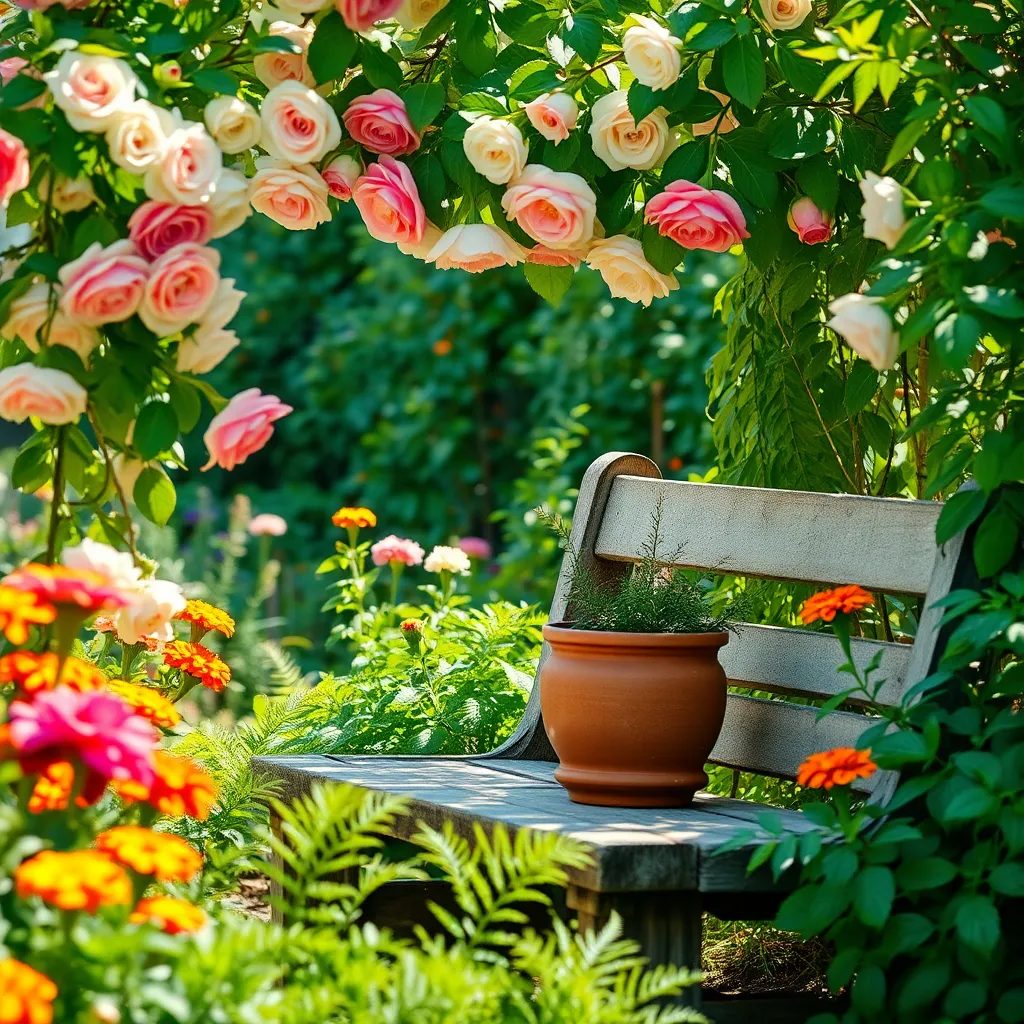
Expressing gratitude through gardening can be a rewarding experience. Consider planting a bed of sunflowers, which symbolize adoration and loyalty, to create a vibrant display of appreciation.
To successfully grow sunflowers, select a sunny spot in your garden with well-draining soil. Ensure you plant seeds after the last frost, spacing them 6 inches apart for optimal growth.
For a more advanced touch, try interplanting companion plants like marigolds, which can help deter pests naturally. This technique not only enhances your garden’s health but also showcases your gratitude for nature’s interconnectedness.
Water sunflowers deeply but infrequently, allowing the top inch of soil to dry between waterings. This encourages the roots to grow deeper, resulting in stronger and more resilient plants.
Quotes for Unconditional Love
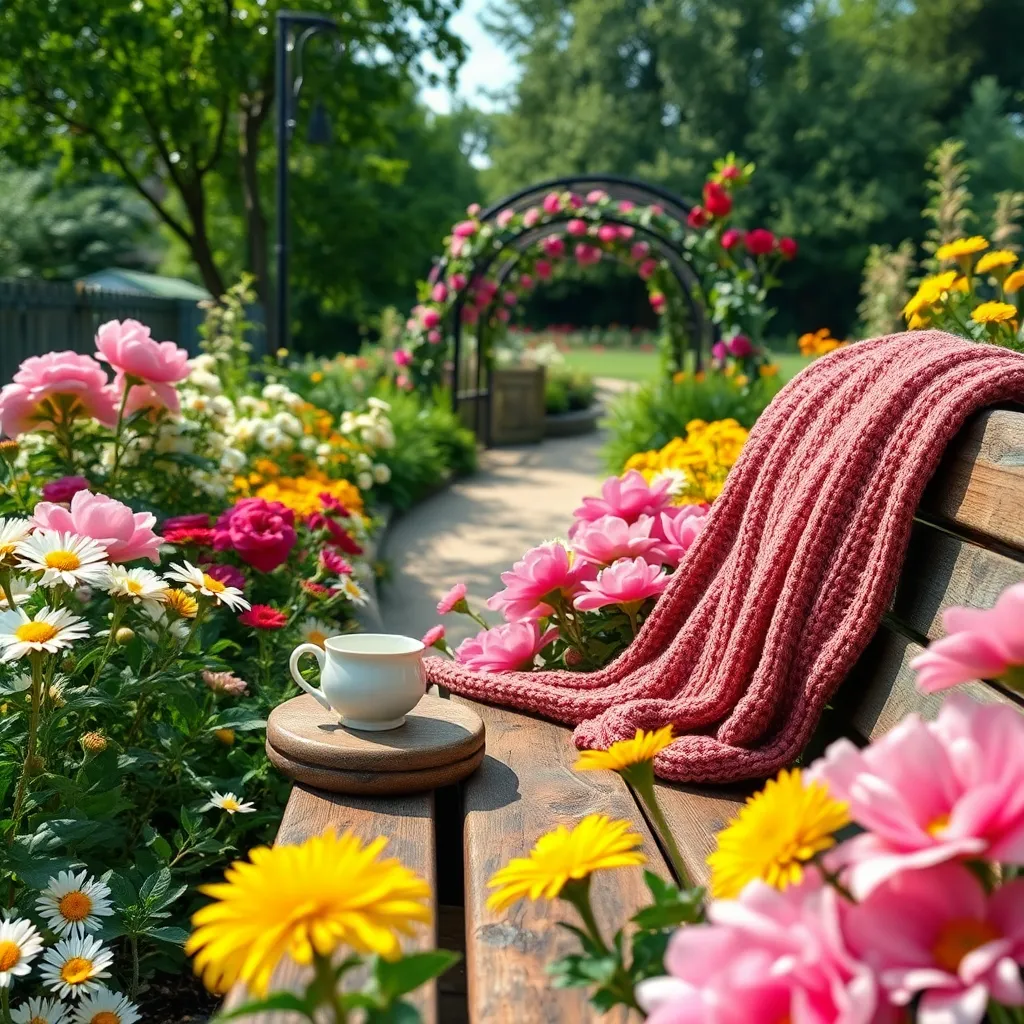
Unconditional love in gardening can be best expressed through the care and nurturing of perennial plants. These plants, like roses and lavender, reward your dedication by returning year after year with vibrant blooms and lush foliage.
Perennials thrive when given a good start with the right soil, which should be well-draining and rich in organic matter. To enhance soil quality, consider adding compost or well-rotted manure, which will provide the necessary nutrients for healthy growth.
Watering is crucial, especially during the establishment phase of perennials. Ensure that the soil remains consistently moist but not waterlogged, and reduce watering frequency as the plant matures and develops a robust root system.
For experienced gardeners looking to deepen their relationship with their perennials, consider experimenting with companion planting. Pairing perennials like yarrow with roses can naturally deter pests and improve plant health, creating a harmonious garden ecosystem.
Quotes for Playful Teasing
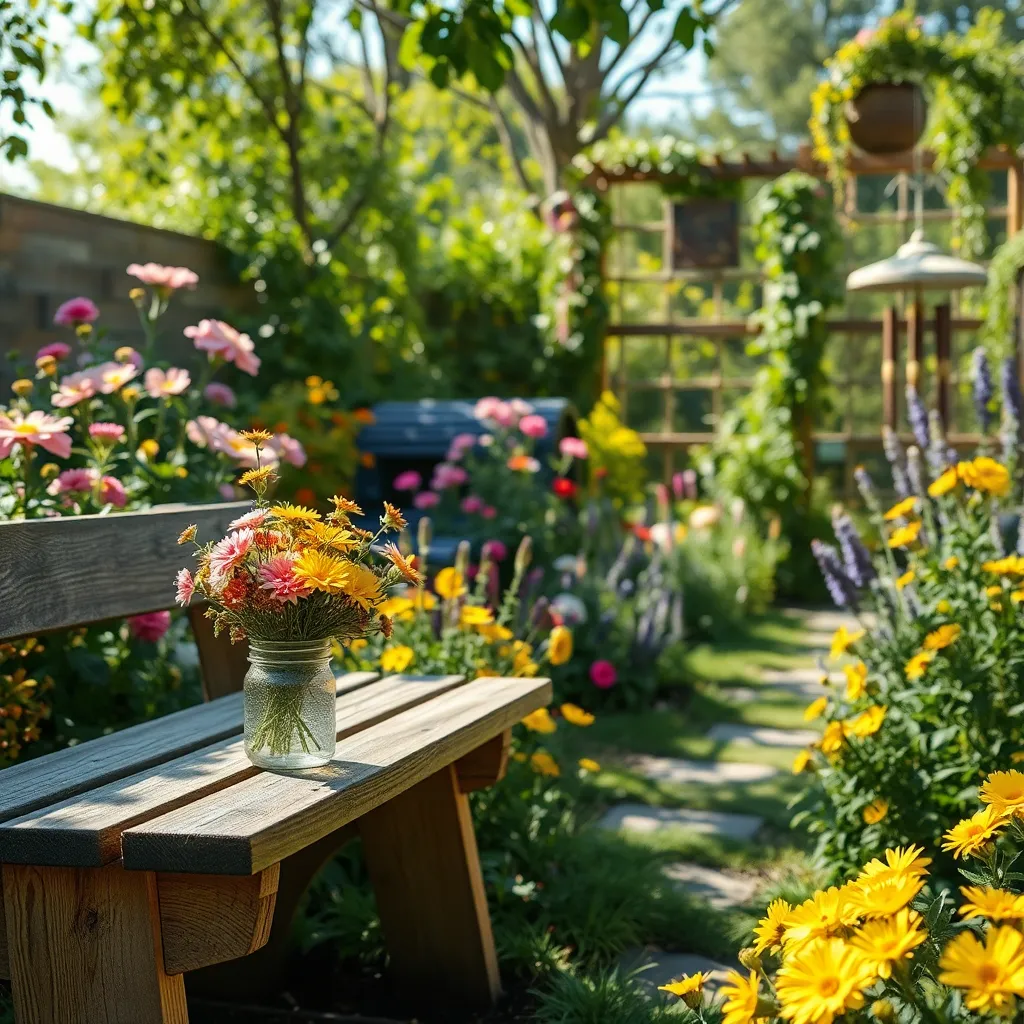
If you’re looking to playfully tease your garden into producing the best results, start by ensuring your soil is in top condition. Loamy soil is ideal for most plants, providing a balanced mix of silt, sand, and clay for optimal drainage and nutrient retention.
Consider adding organic matter like compost to enrich your soil, which can improve both its structure and fertility. This simple addition can make a noticeable difference, encouraging your plants to grow stronger and healthier.
Watering is another area where a little playful teasing can go a long way. Rather than sticking to a strict schedule, observe your plants closely and water them when the top inch of soil feels dry to the touch.
For a more advanced approach, consider using a moisture meter to ensure precise watering, helping to prevent both over-watering and under-watering. This tool can be especially useful for beginners, offering a straightforward way to monitor soil moisture levels.
Another tip is to provide your plants with the right amount of light, catering to their specific needs. For instance, sun-loving plants such as tomatoes will thrive in a spot that receives at least 6-8 hours of direct sunlight each day.
Conversely, shade-loving plants like ferns will appreciate a location that offers indirect light, shielding them from harsh midday sun. By understanding and adjusting to these preferences, you can help your plants flourish and perhaps even coax a few extra blooms from them!
Quotes for Thoughtful Reflections
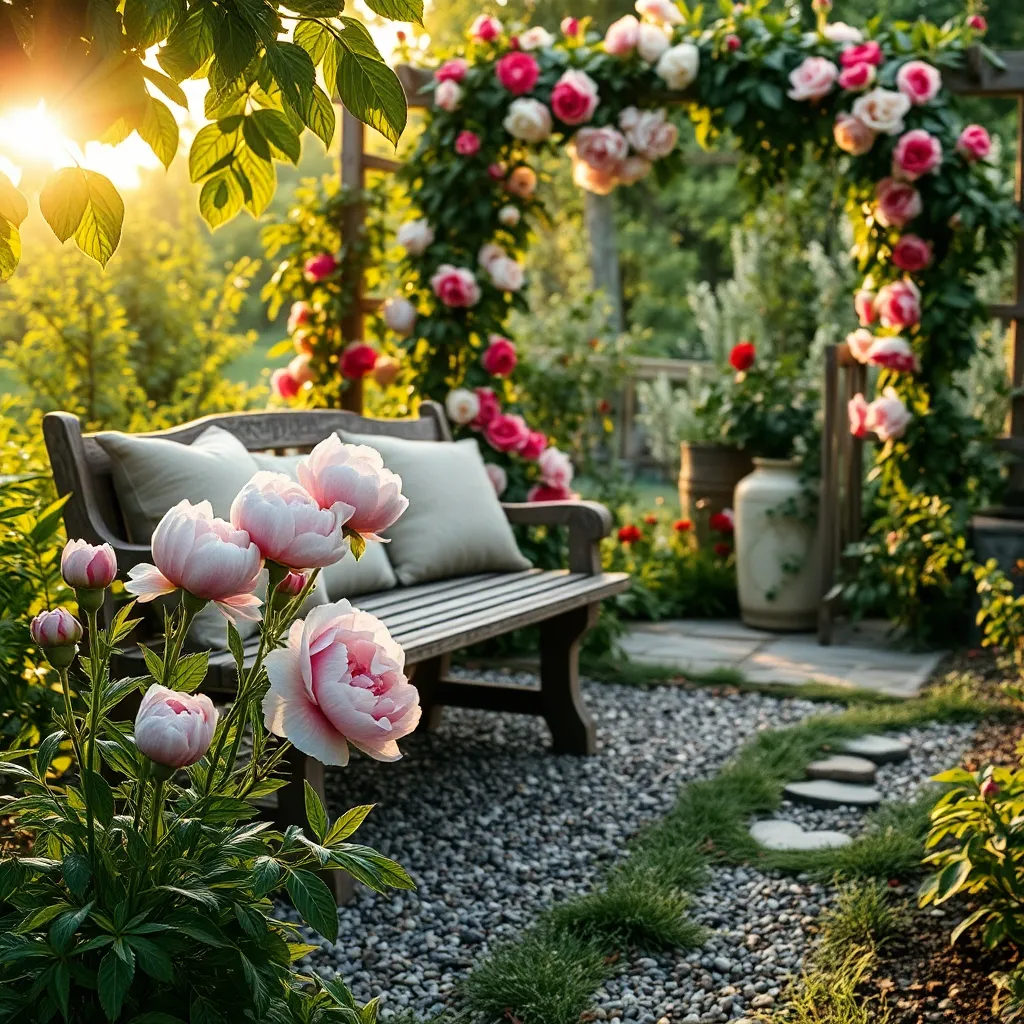
Gardening offers a perfect opportunity for thoughtful reflections and connection with nature. One of the simplest ways to start is by observing how plants like *lavender* thrive when given the right conditions—full sun, well-drained soil, and regular pruning to encourage bushy growth.
Consider the importance of soil health as a foundation for your garden’s success. A well-balanced soil rich in organic matter, such as compost, can significantly enhance plant growth and resilience against pests and diseases.
For those seeking a deeper connection with their garden, try incorporating a journaling practice to document plant growth and seasonal changes. This not only helps track progress but also allows for mindful reflection on the beauty and lessons of each gardening season.
Advanced gardeners might explore the technique of companion planting, which can optimize growth and deter pests naturally. For instance, planting tomatoes alongside basil not only enhances flavor but also repels harmful insects, creating a more harmonious garden ecosystem.
Quotes for Eternal Love
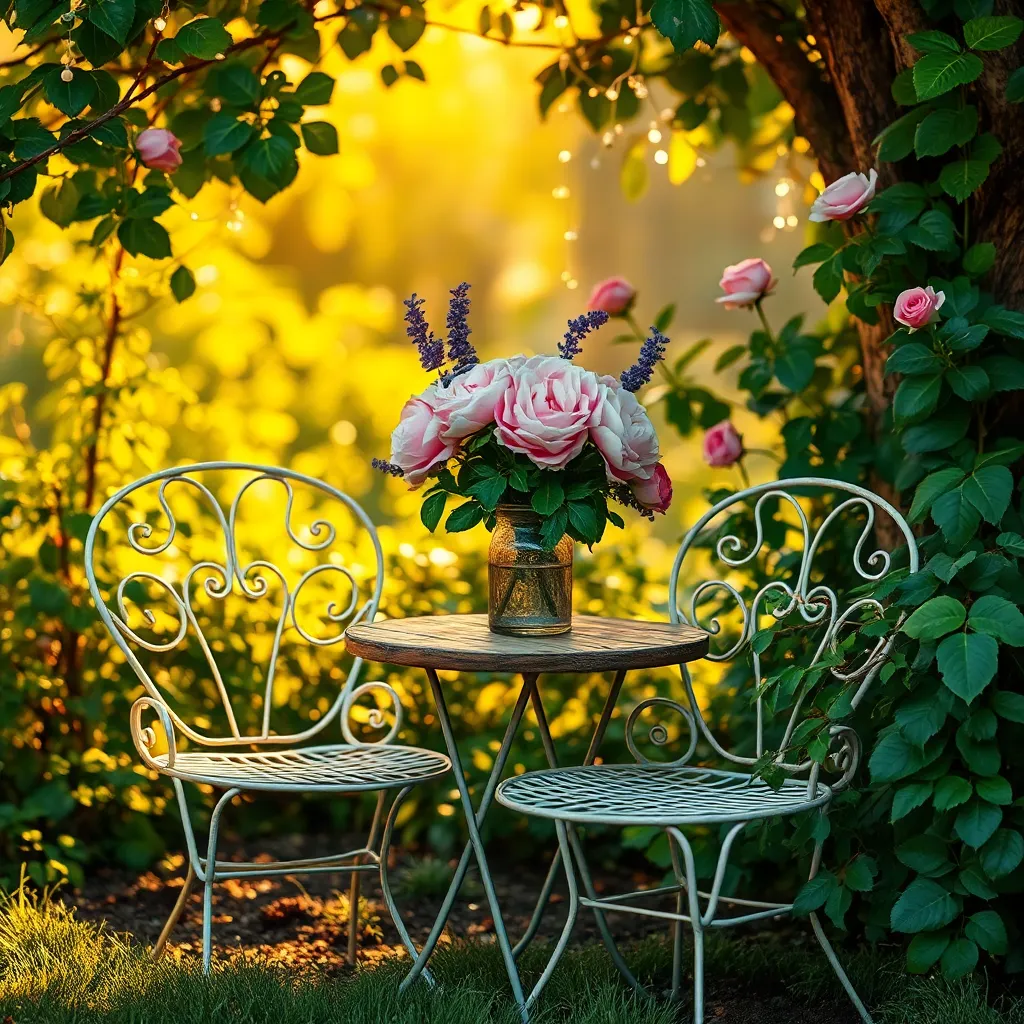
In the world of gardening, cultivating plants that symbolize eternal love can add a romantic touch to any space. Consider growing roses, known for their timeless beauty and symbolism of enduring affection. To ensure your roses thrive, plant them in well-draining soil with a pH of 6.0 to 6.8, and provide at least six hours of sunlight daily. For beginners, start with hardy varieties like Knock Out roses, which require less maintenance yet produce abundant blossoms.
For those looking to express eternal love through unique plants, the bleeding heart (Dicentra spectabilis) offers a stunning choice. This plant’s heart-shaped flowers are perfect for shady areas, providing a lush display from spring to early summer. To keep your bleeding hearts healthy, plant them in moist, well-drained soil and ensure they receive partial to full shade. An advanced tip is to mulch around the base to retain moisture and suppress weeds.
Another plant associated with everlasting love is the lavender, known for its soothing fragrance and long-lasting blooms. Lavender thrives in sunny locations with well-drained, sandy soil, making it an excellent choice for rock gardens or borders. Water lavender deeply but infrequently, allowing the soil to dry out between waterings to prevent root rot. For more experienced gardeners, consider propagating lavender through cuttings to expand your fragrant collection.
To create a garden that speaks of eternal love, mix perennial favorites with seasonal blooms to maintain year-round interest. Hellebores, also known as the Christmas rose, bloom in late winter to early spring, offering a hint of color during colder months. Plant hellebores in rich, well-draining soil, and provide them with partial shade to mimic their natural woodland habitat. For a truly enchanting display, plant them alongside snowdrops or crocuses, creating a tapestry of early-blooming flowers that herald the coming of spring.
Conclusion: Growing Success with These Plants
As we journeyed through the whimsical world of cheesy love quotes, we uncovered 90 delightful gems that encapsulate the heart of relationships. From the timeless wisdom of vulnerability and trust to the simple joys of shared laughter and inside jokes, each quote serves as a gentle reminder of the small yet significant moments that bind us together. These quotes celebrate the beauty of love’s quirks, the strength in understanding, and the magic of everyday romance.
Now, take a moment to share one of these quotes with someone special. Whether it’s a partner, a friend, or a family member, let these words spark a conversation or a smile. This simple act can deepen your connection and brighten your day.
To ensure these insights remain at your fingertips, bookmark this article as your go-to source for inspiration. This small step can remind you of love’s enduring charm whenever you need it.
As you continue on your relationship journey, may these quotes empower you to nurture bonds with intentionality and joy. Remember, each moment shared is a step towards lasting happiness and fulfillment. Save this treasure trove of quotes and watch your relationships flourish.

